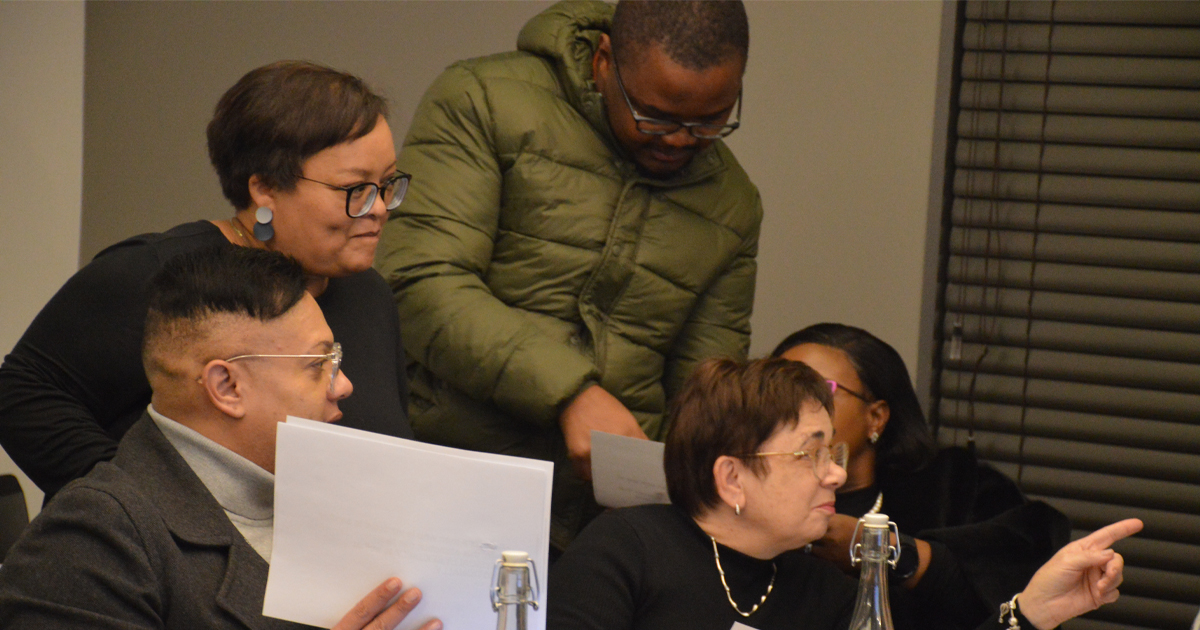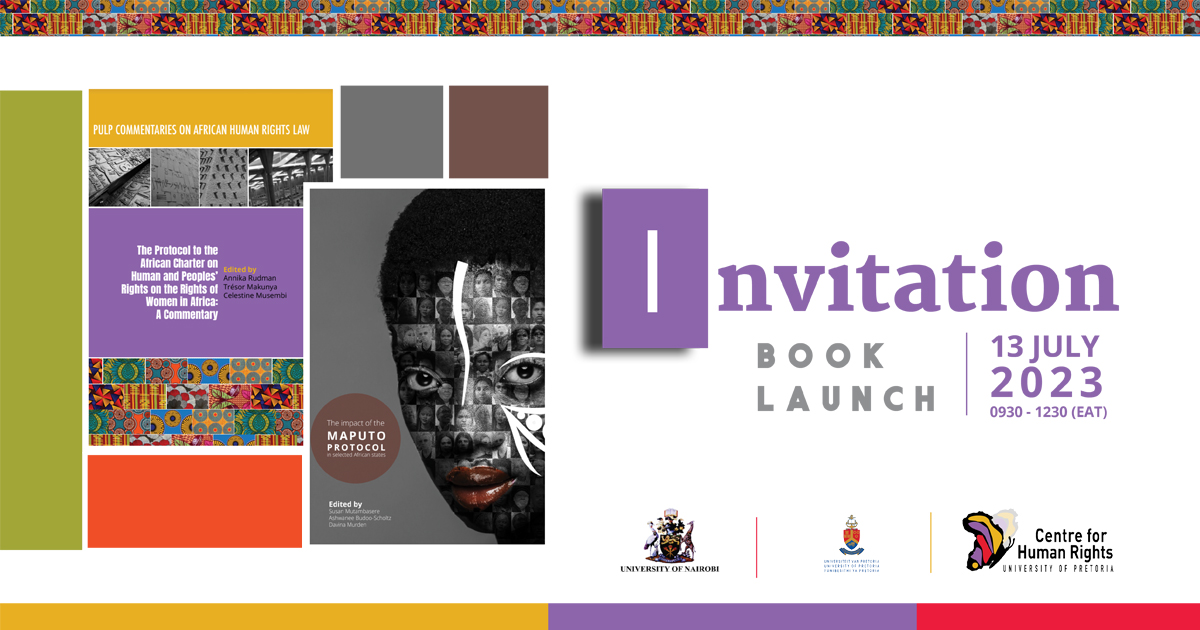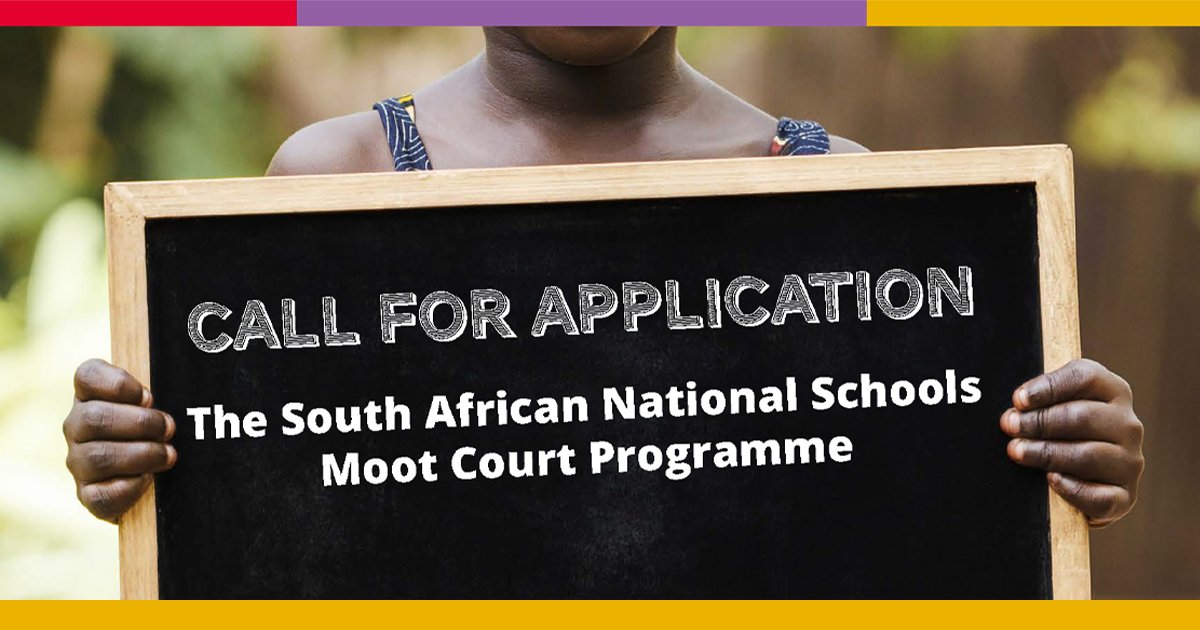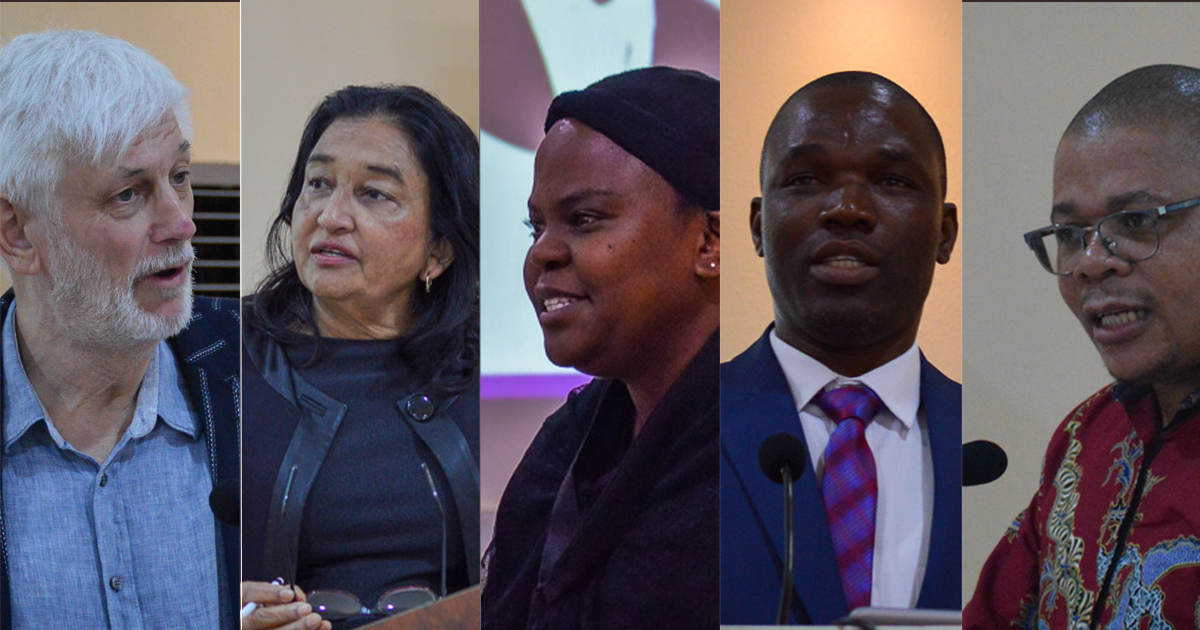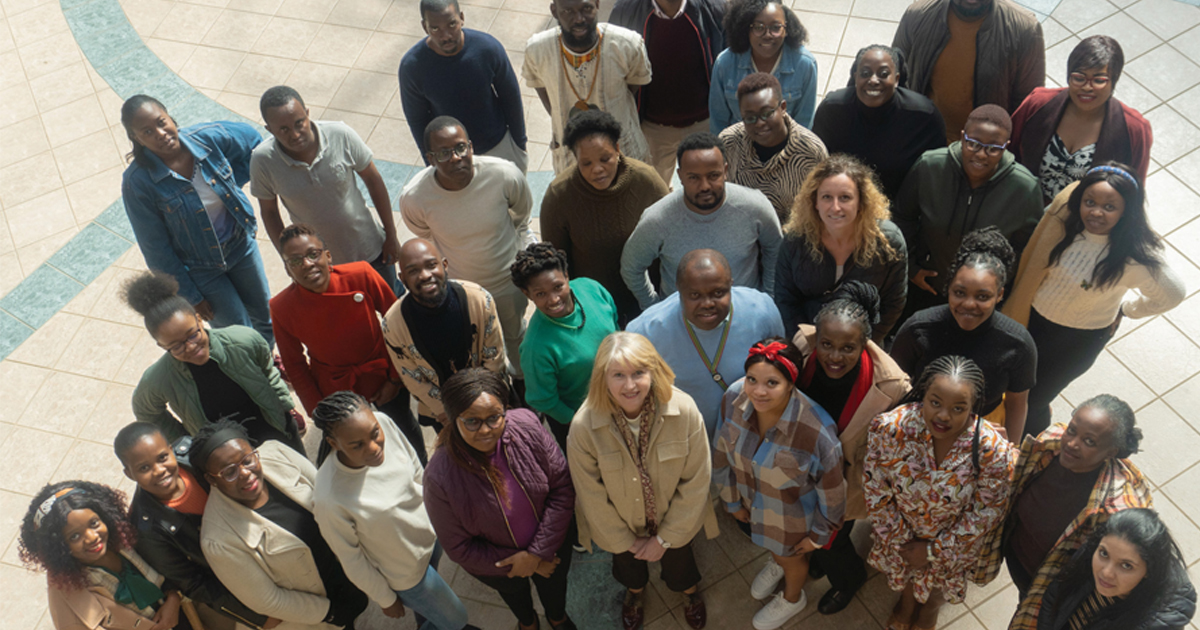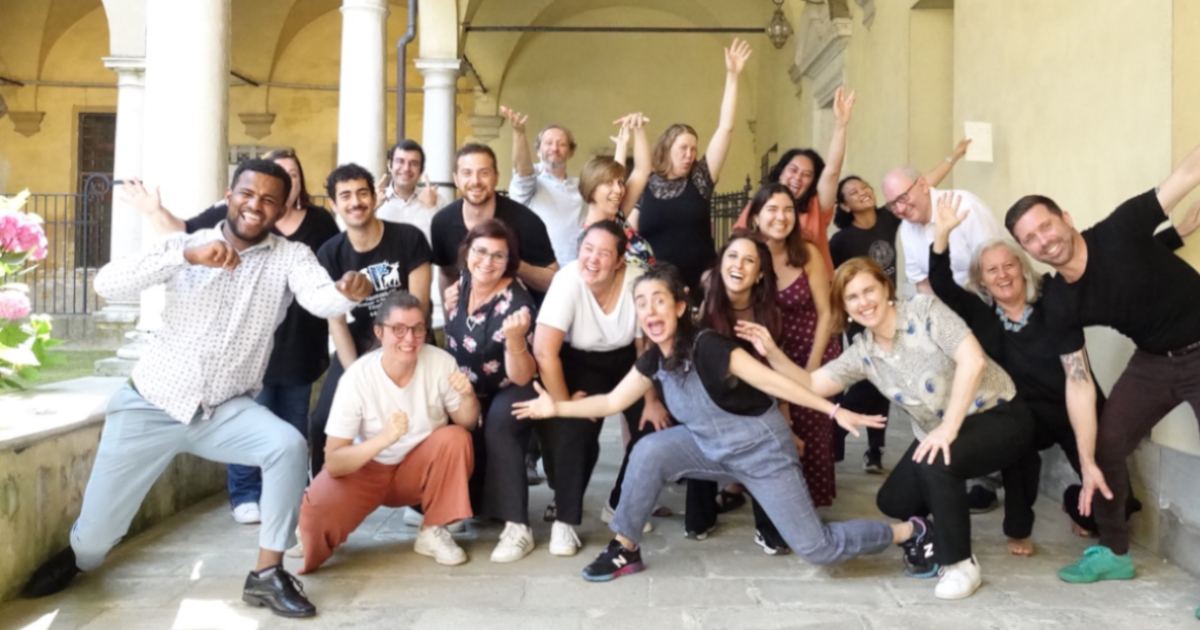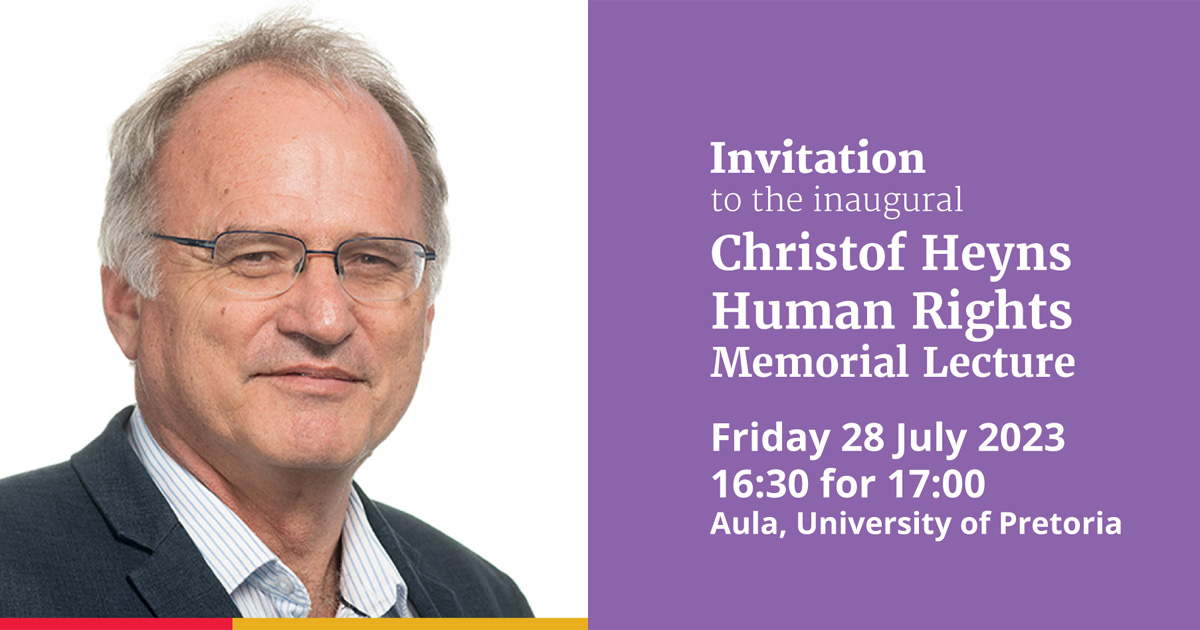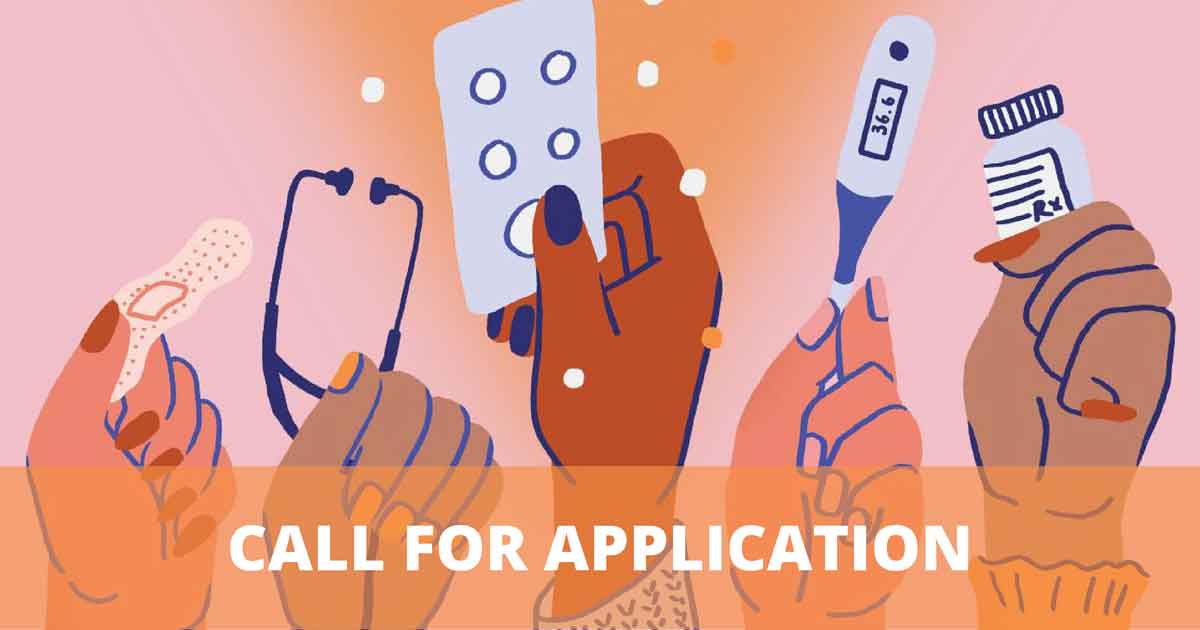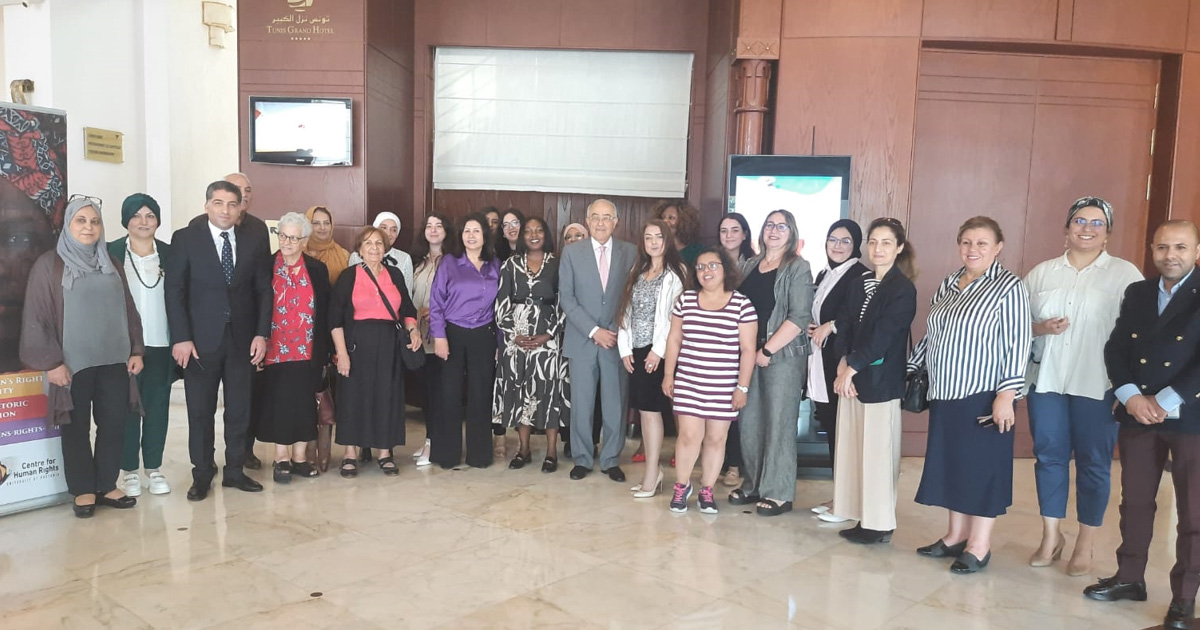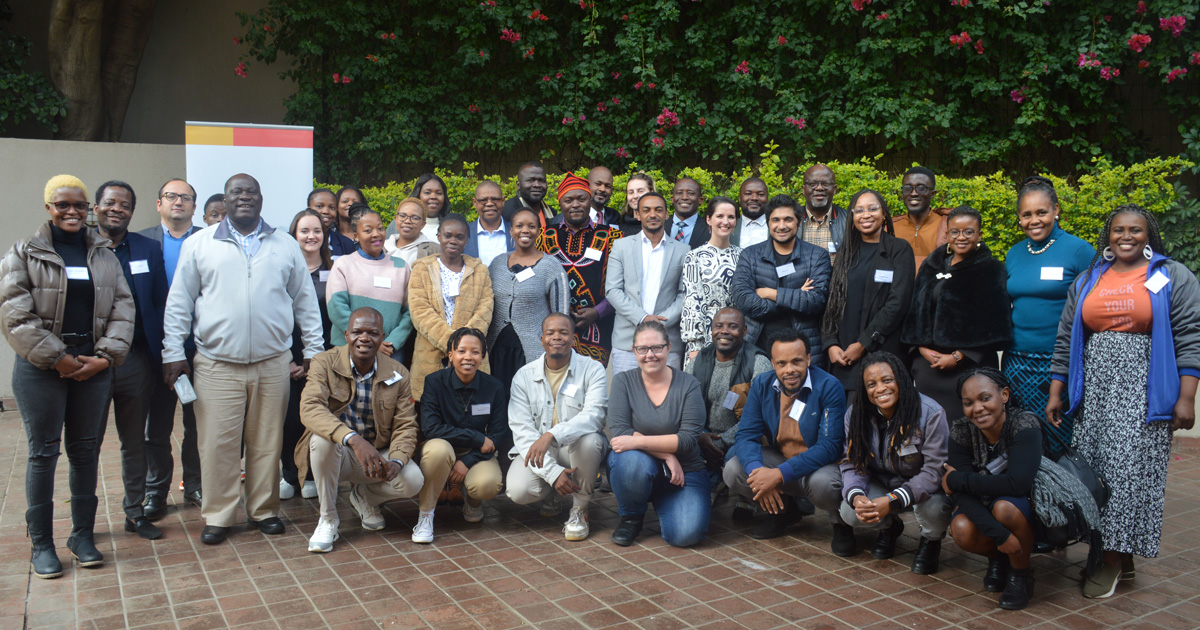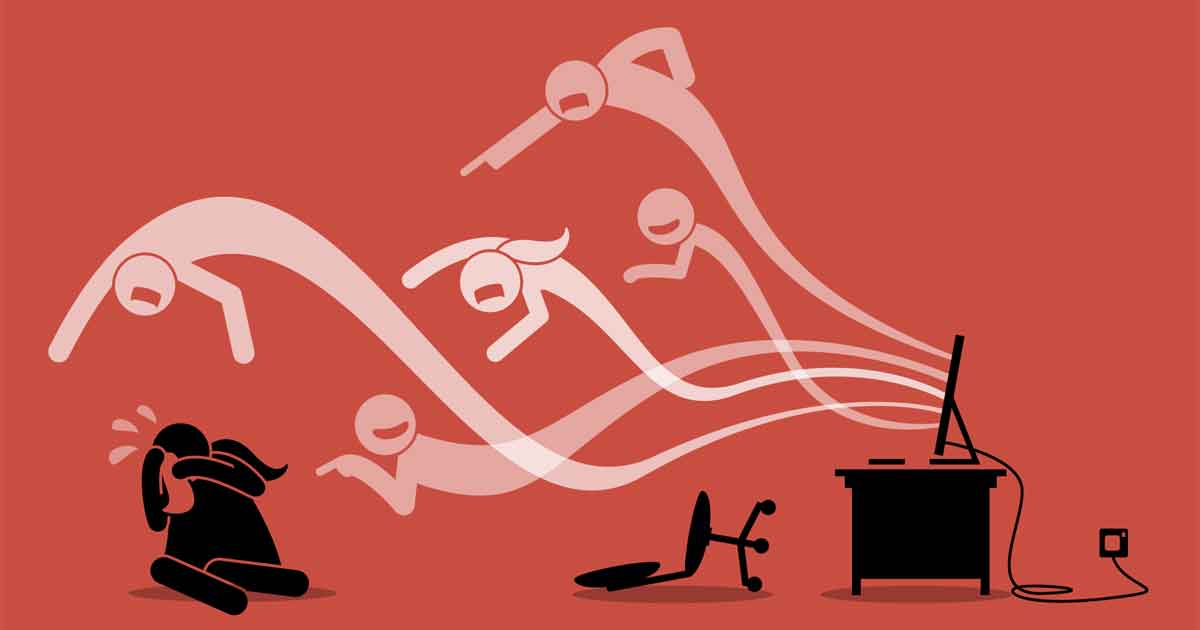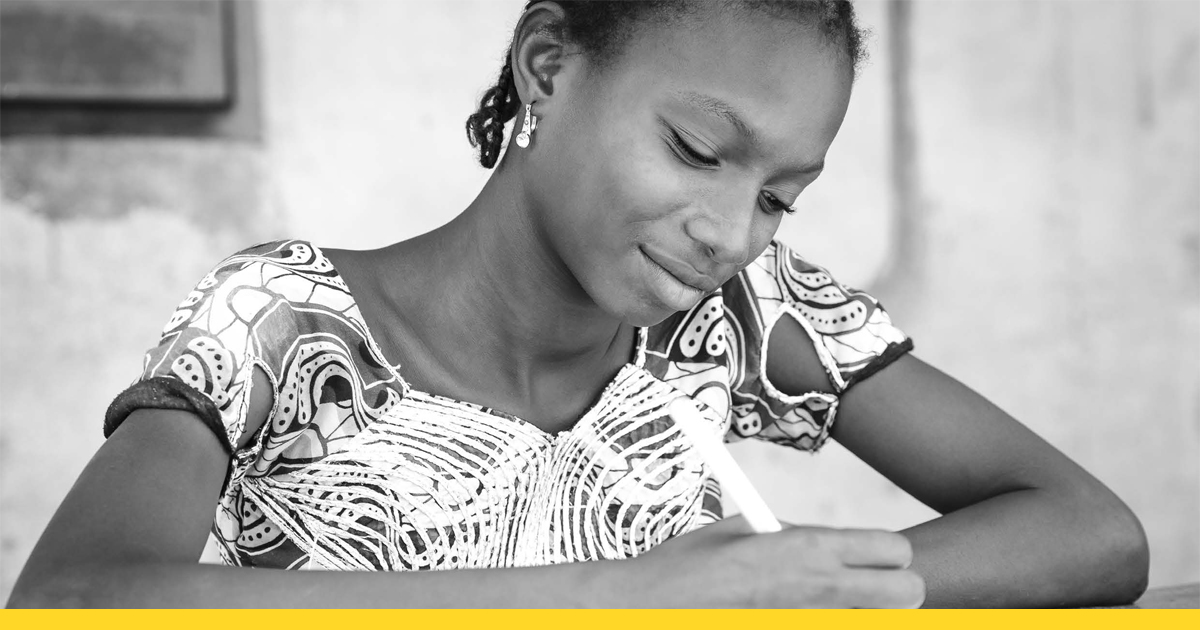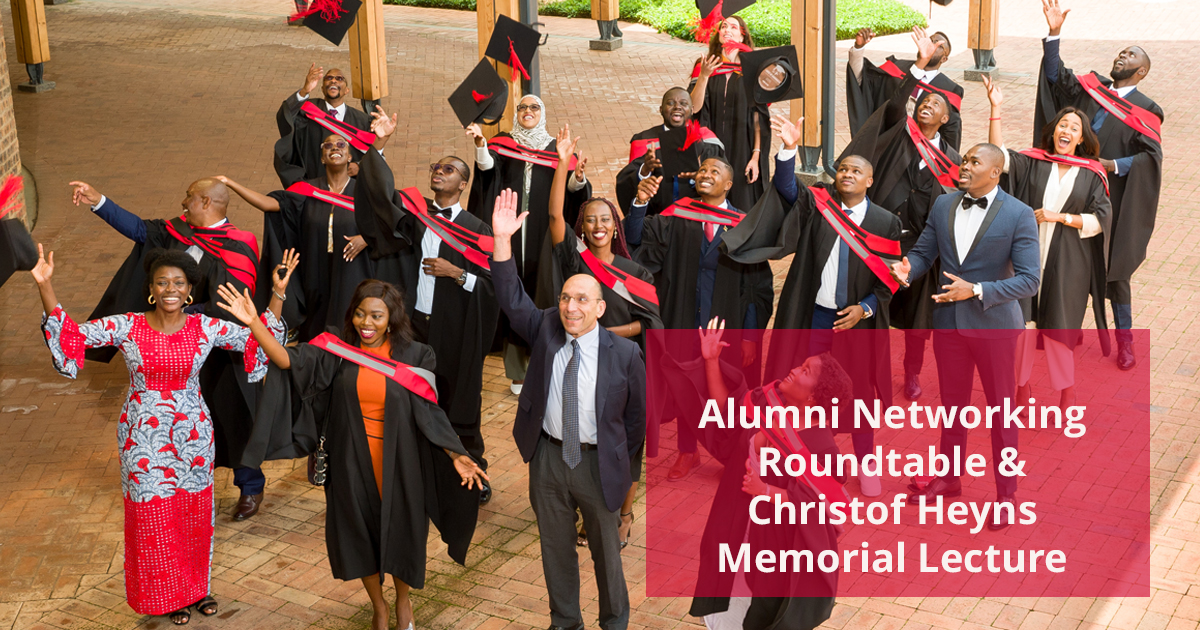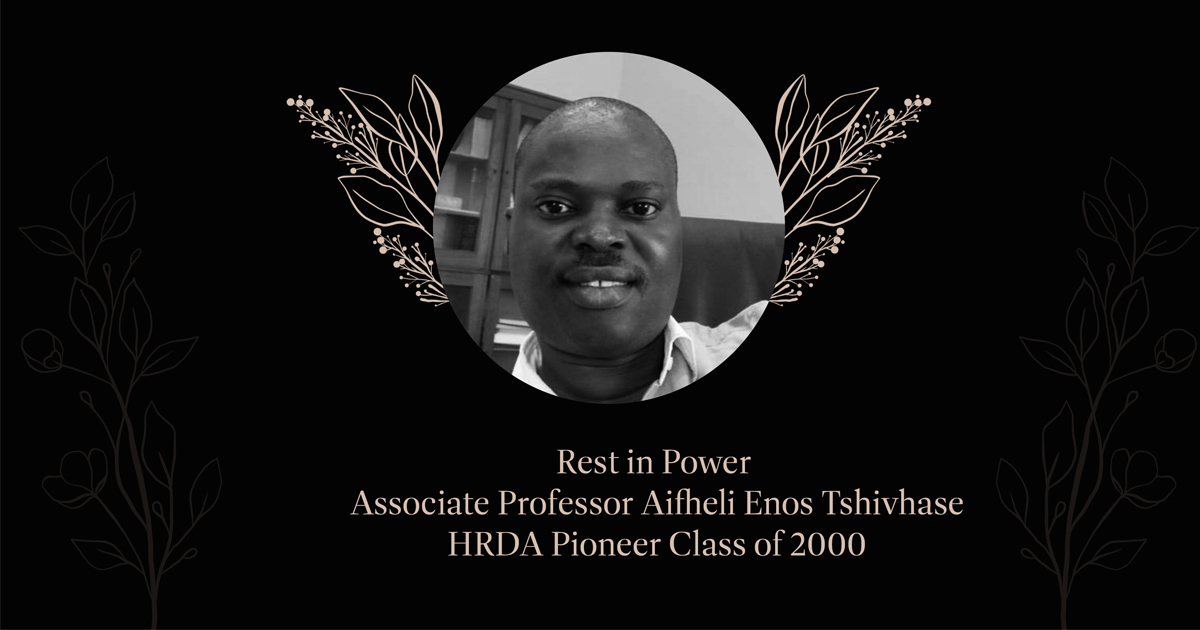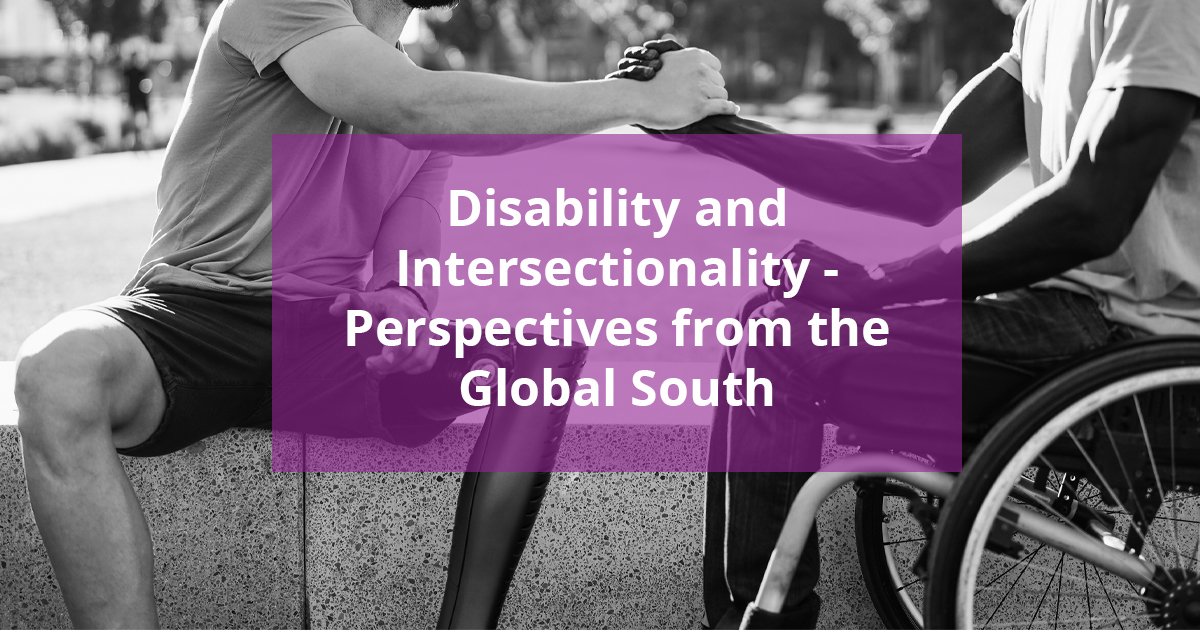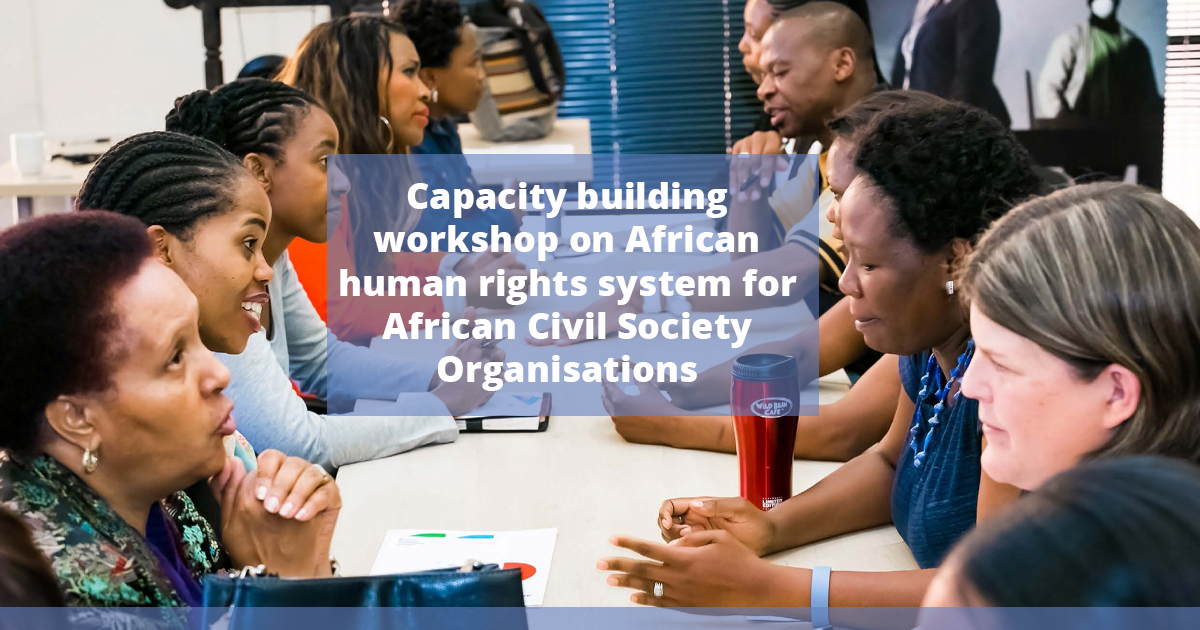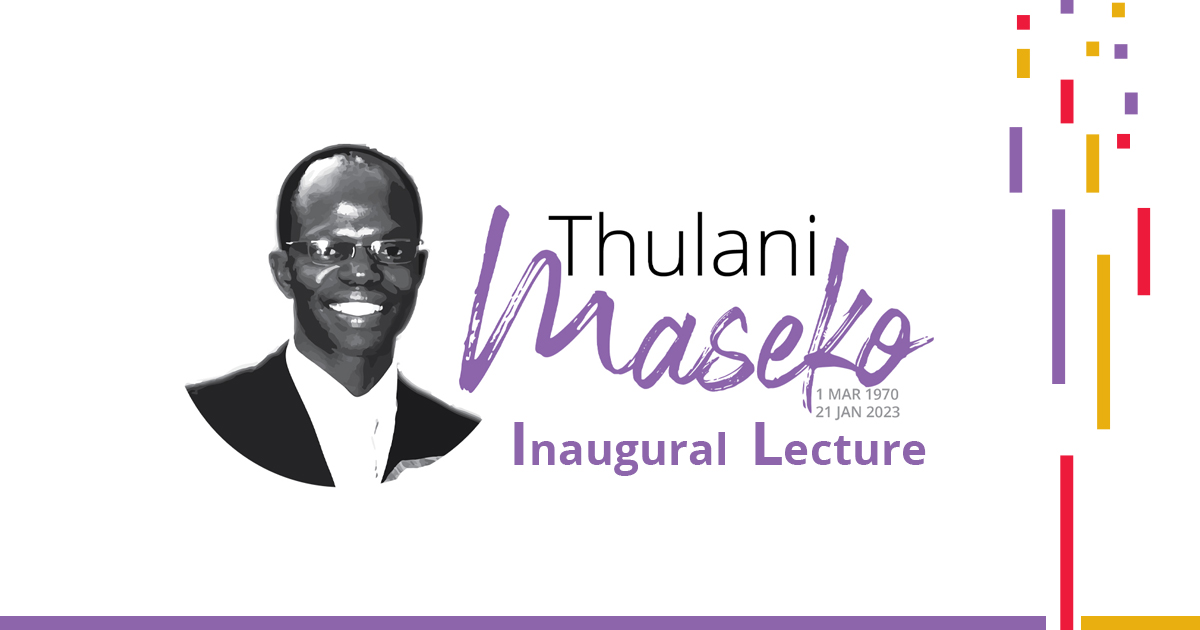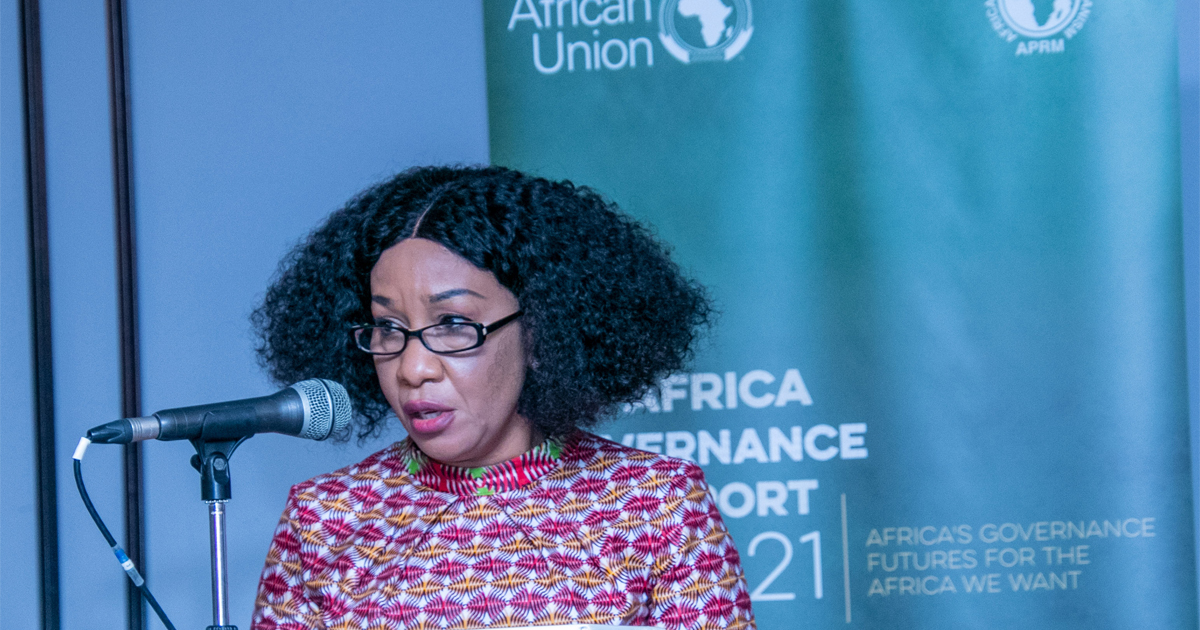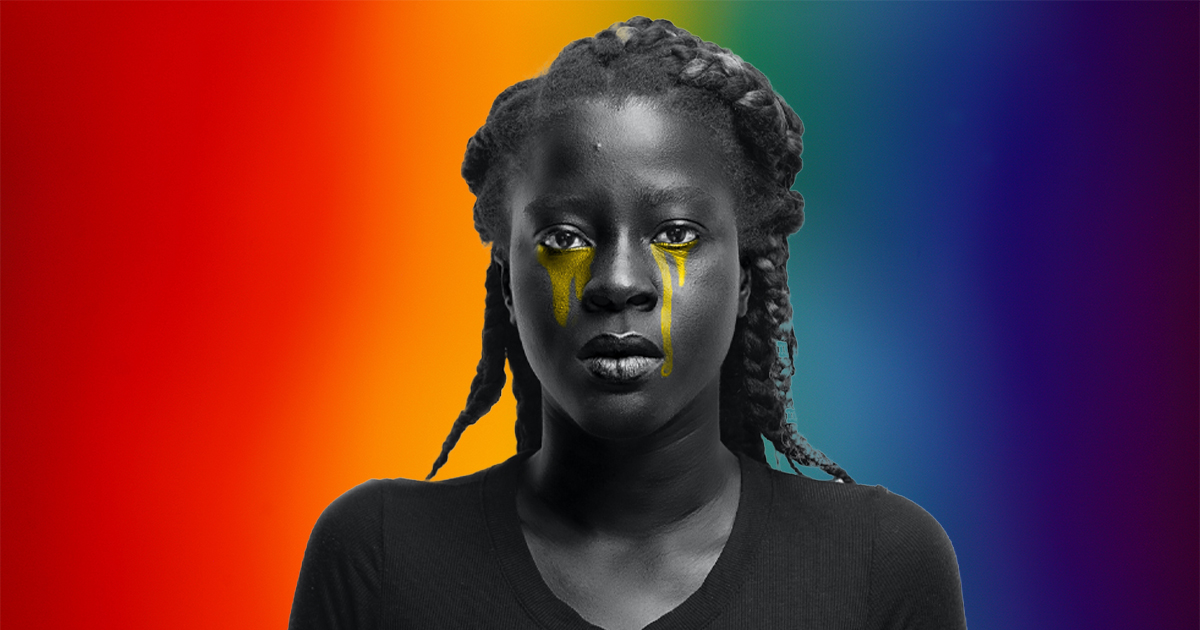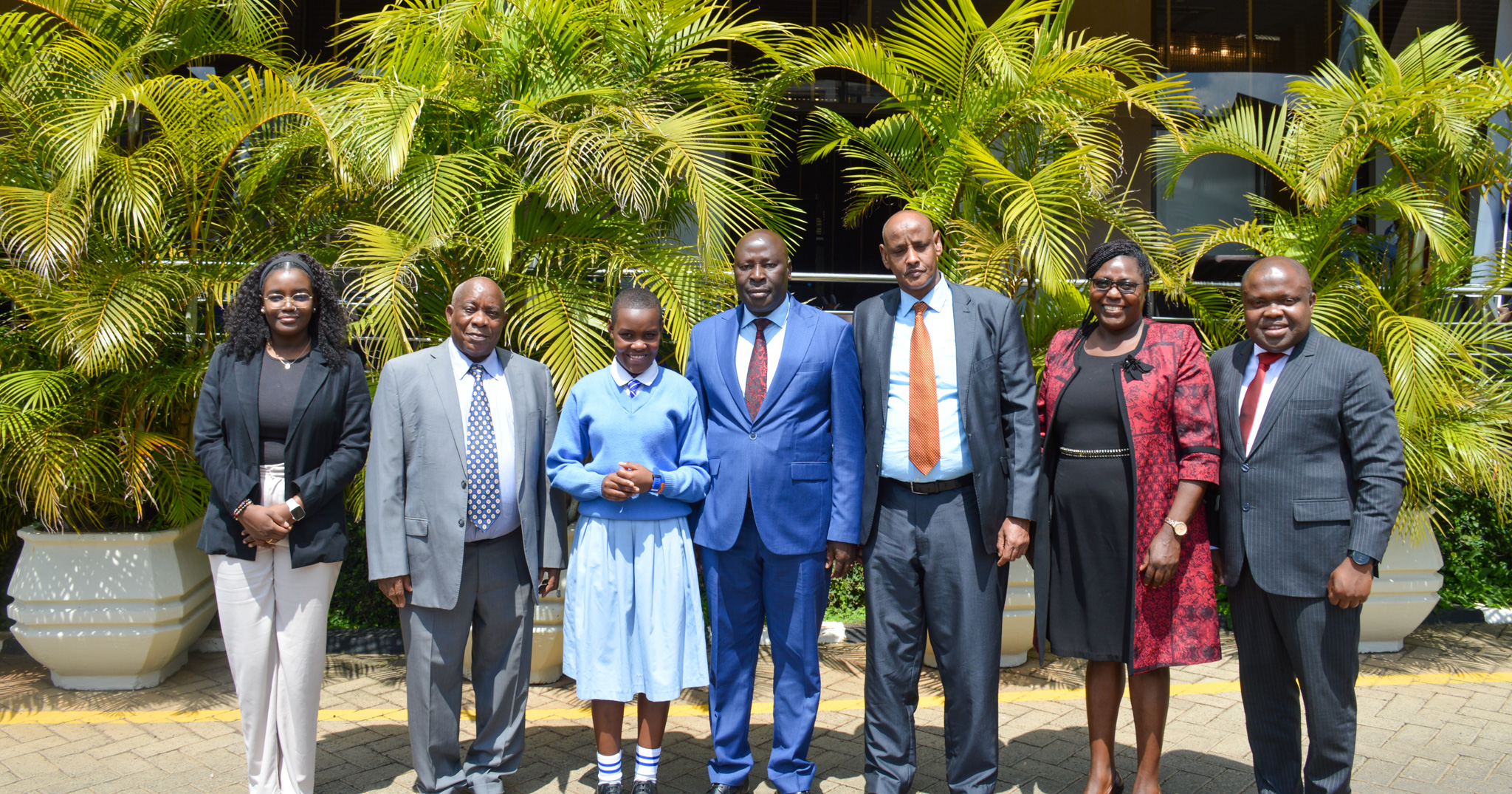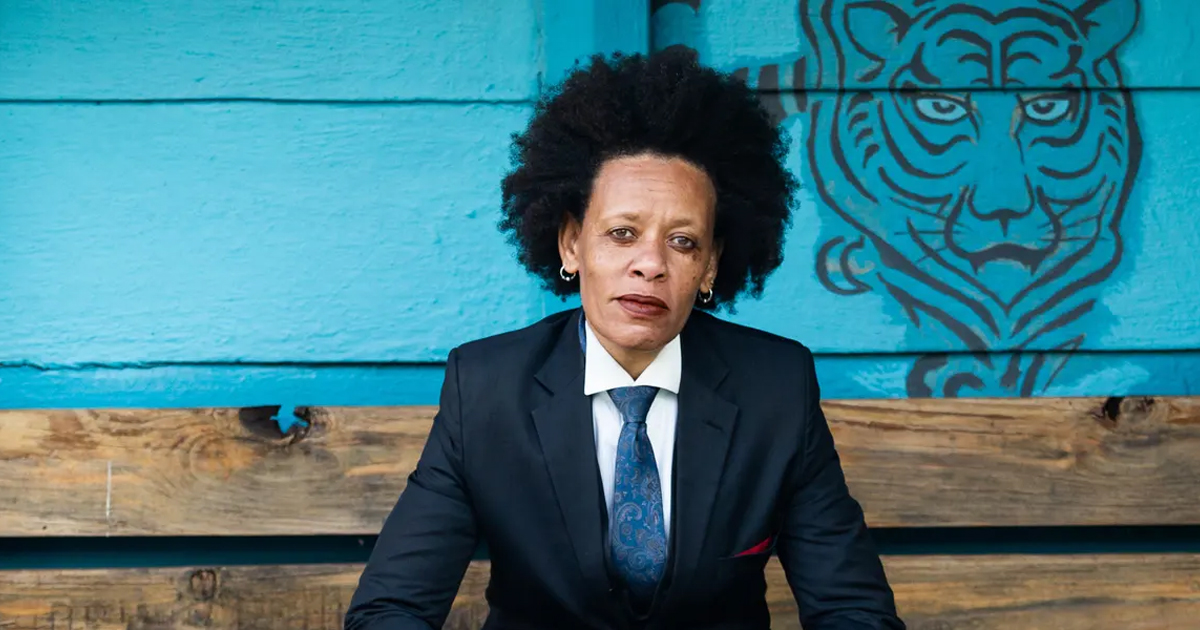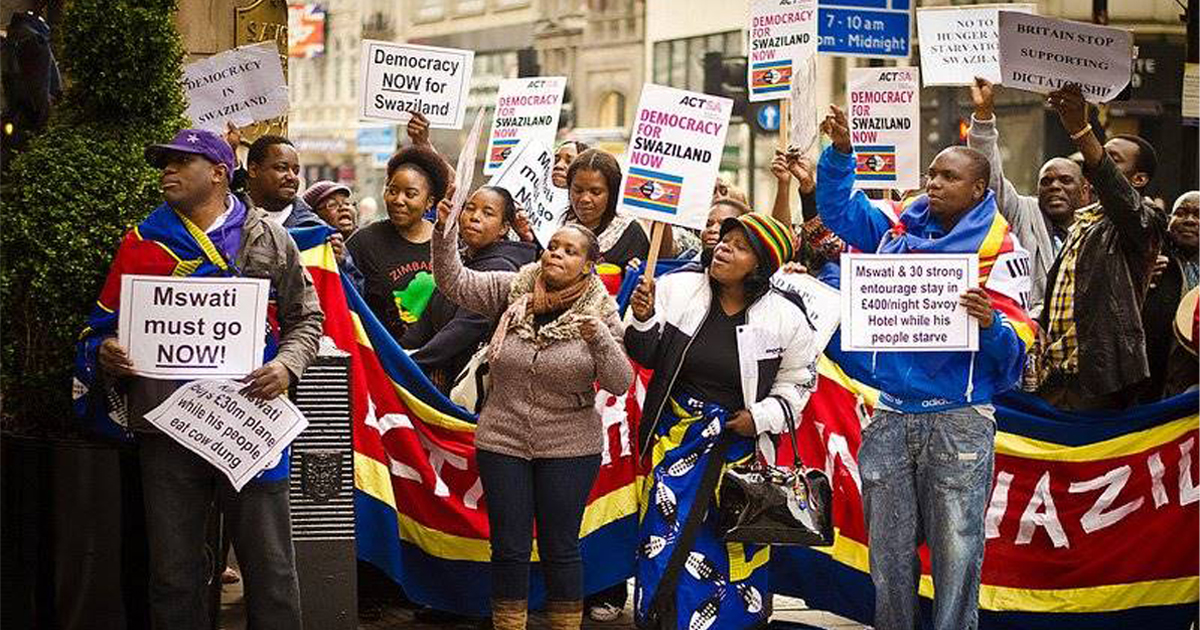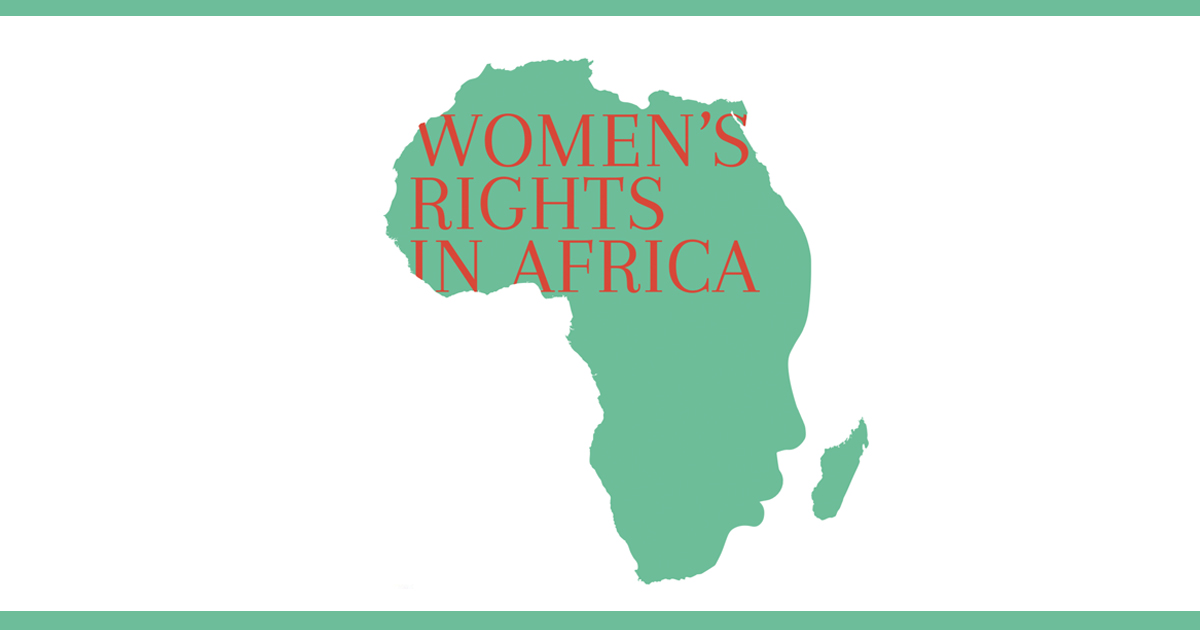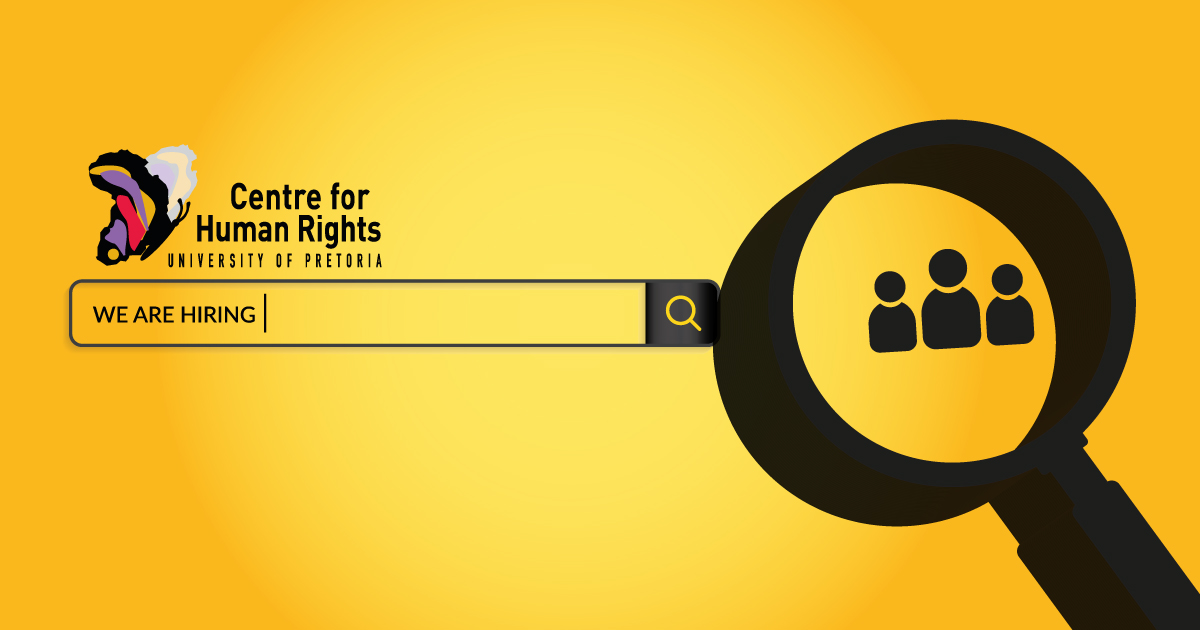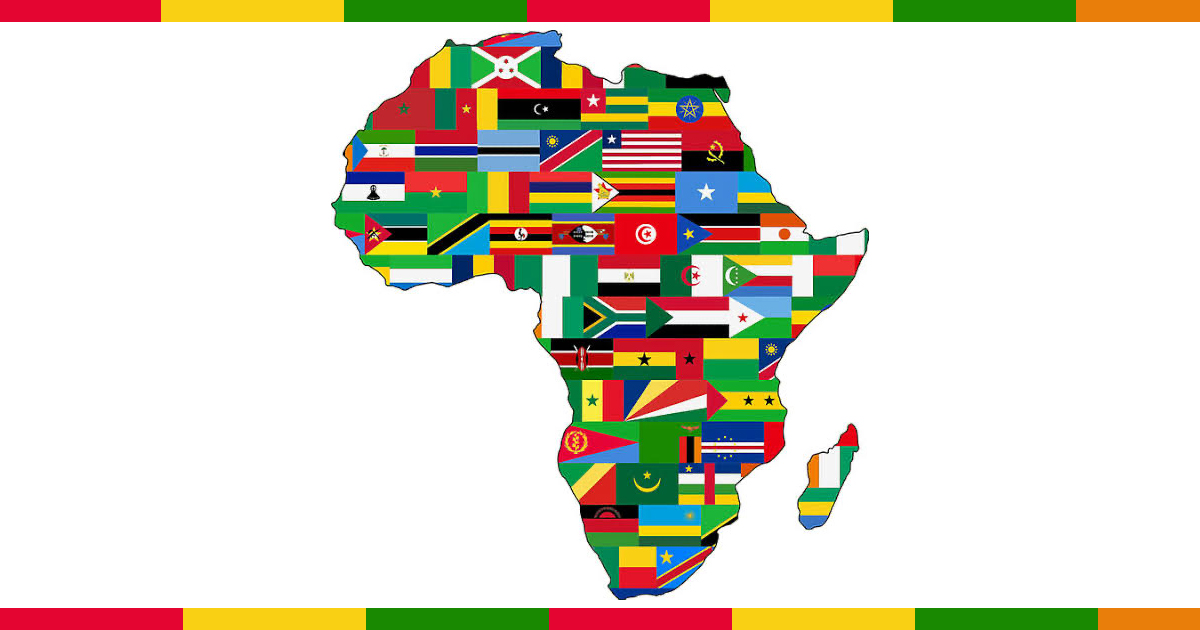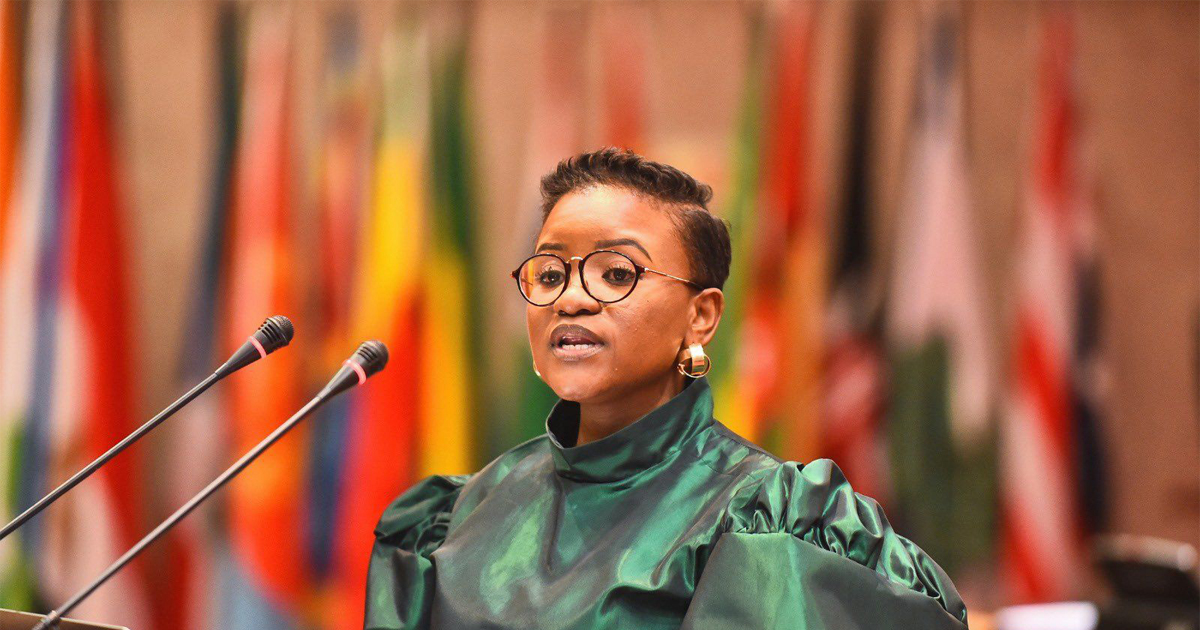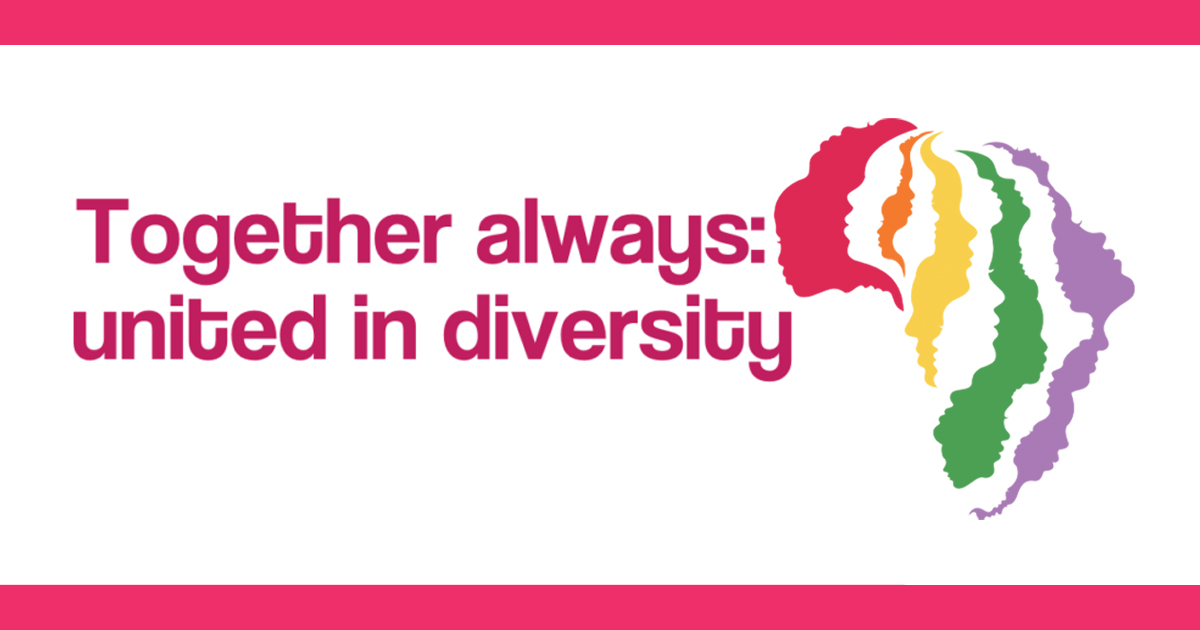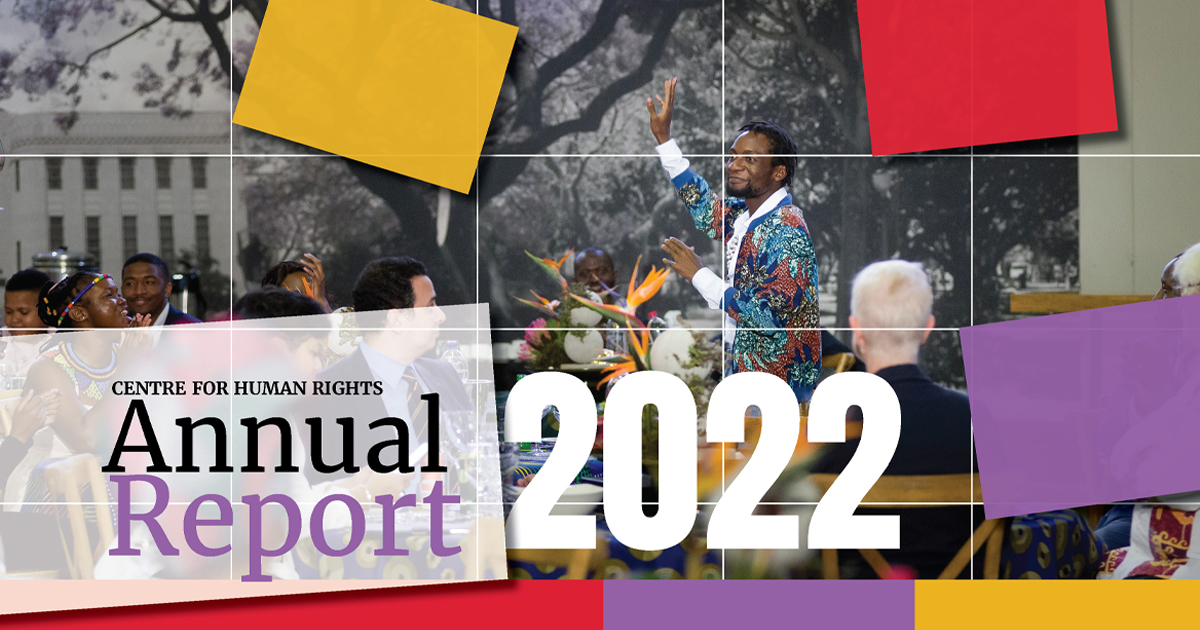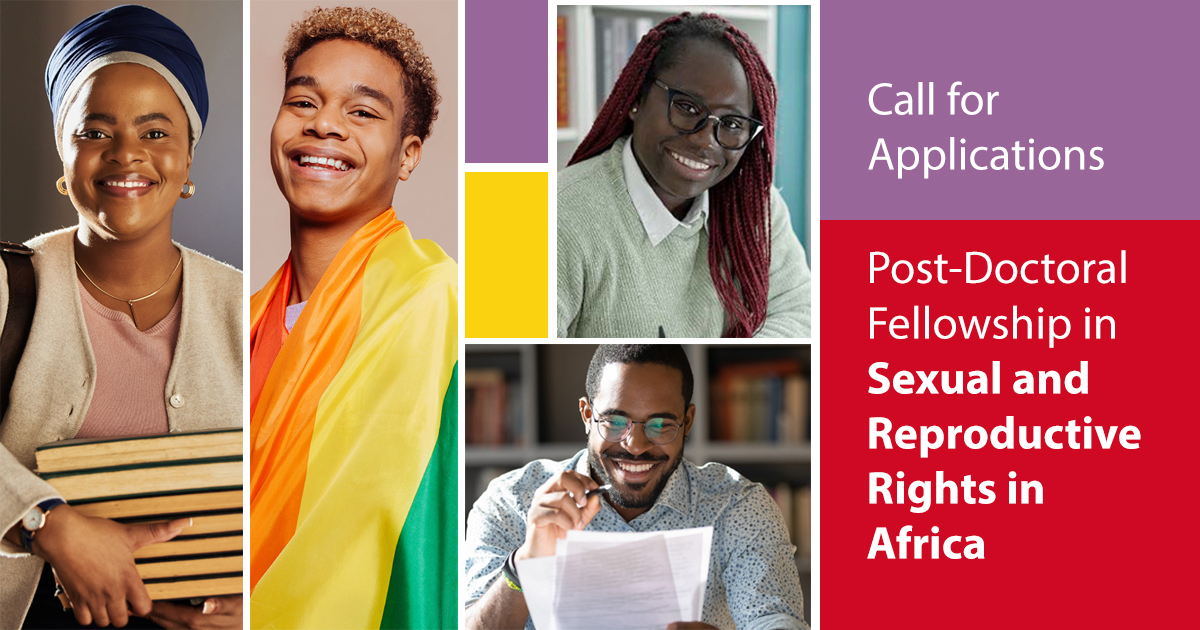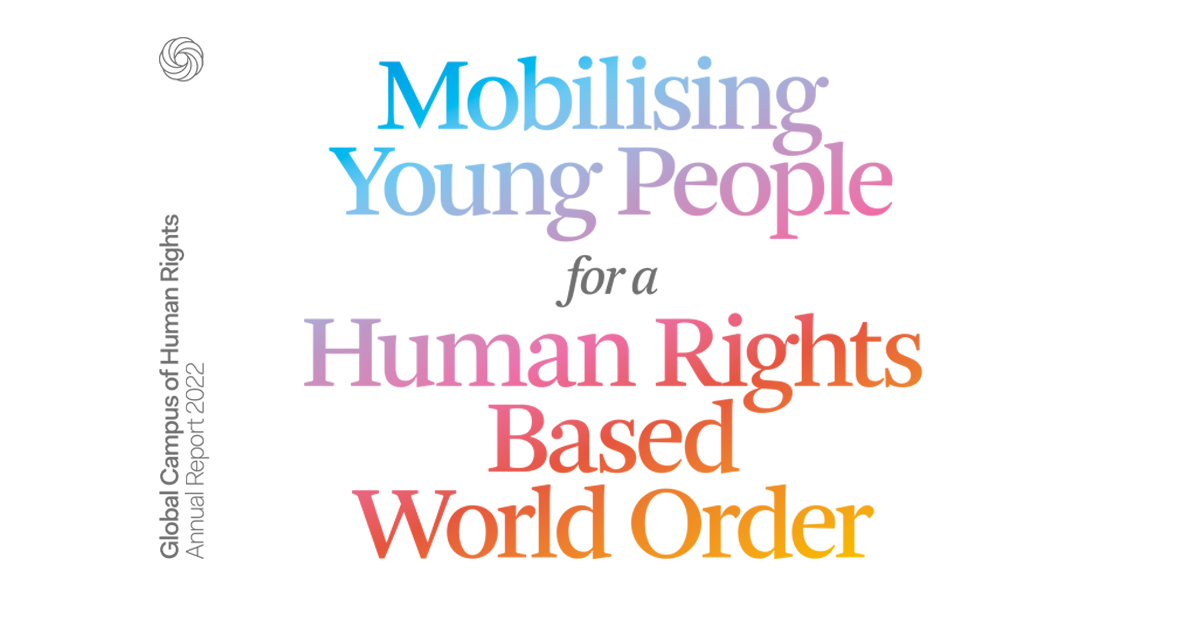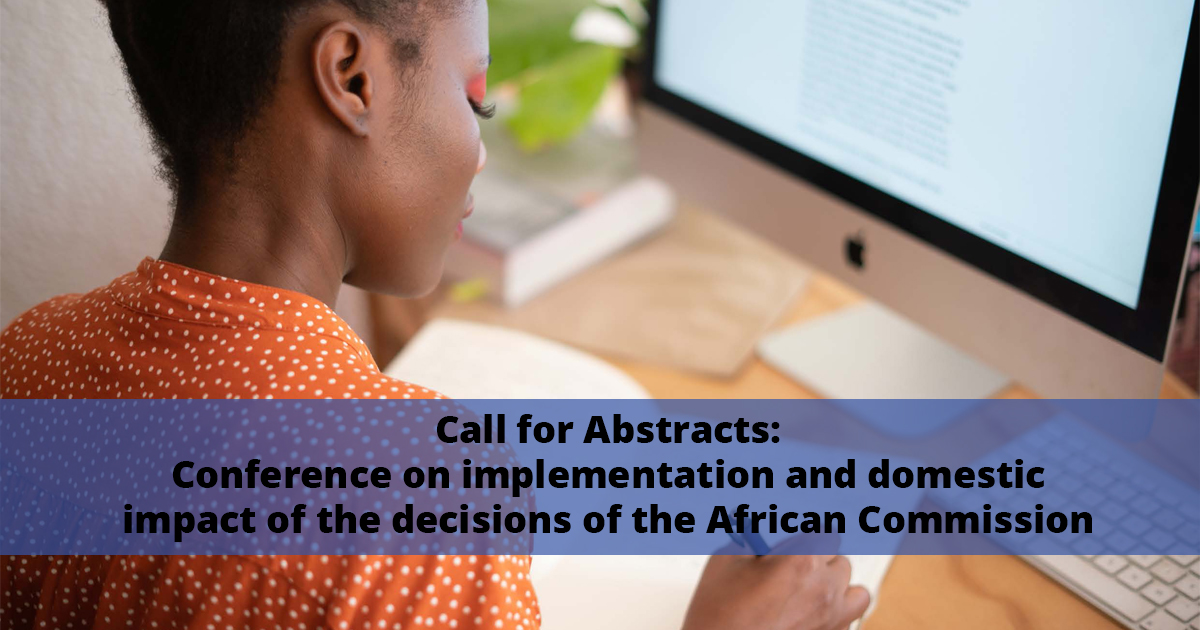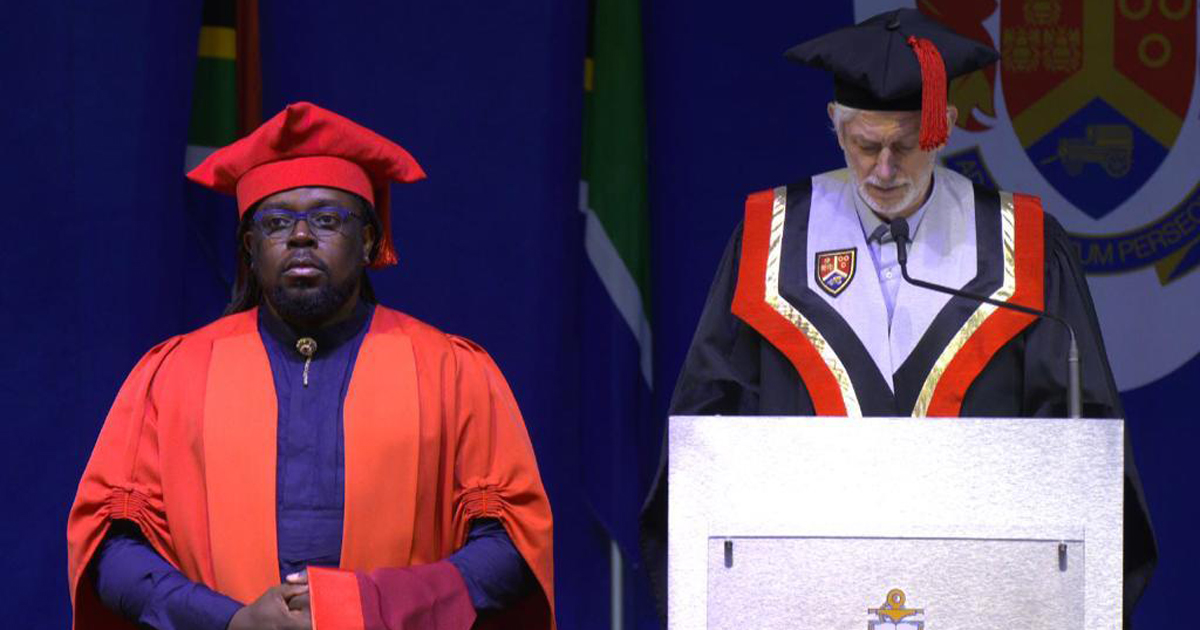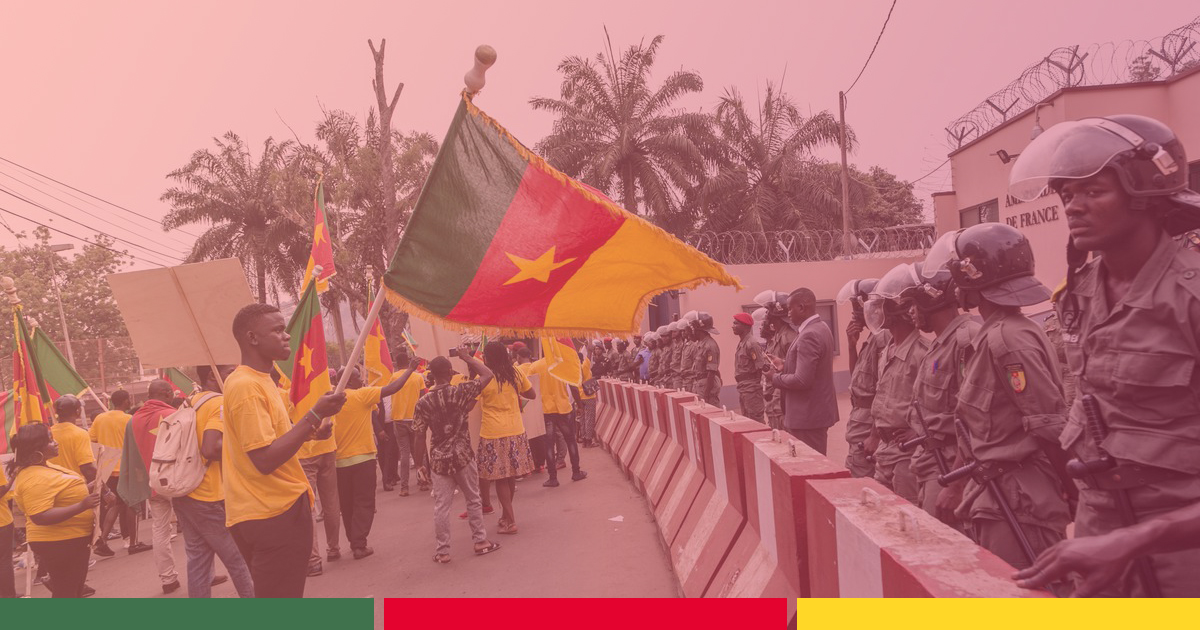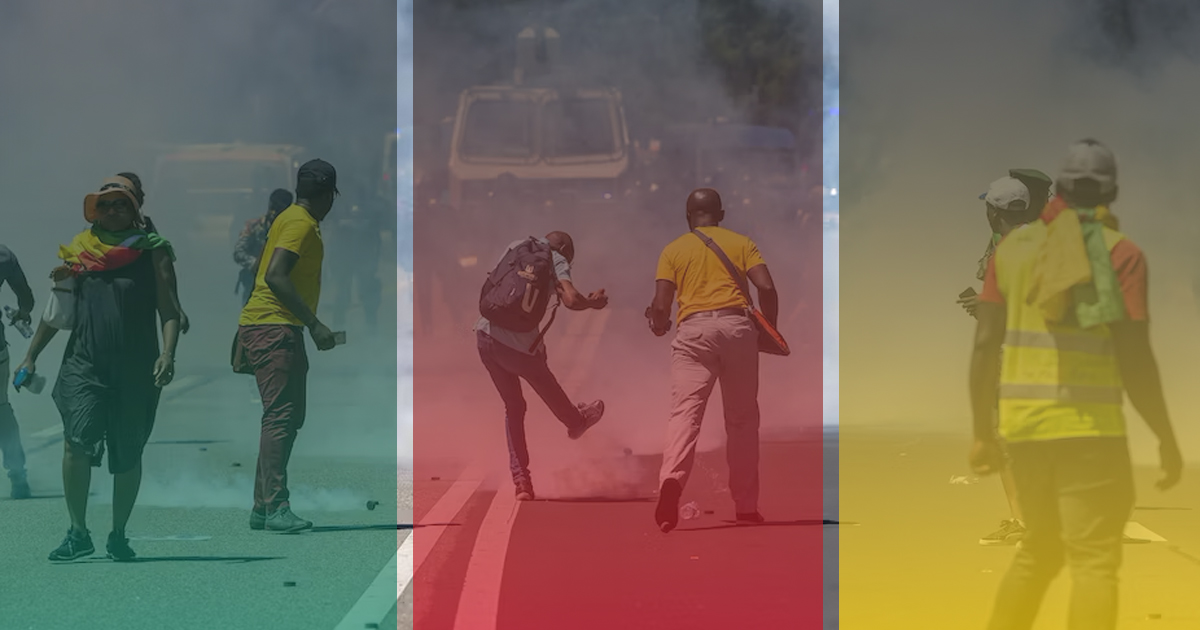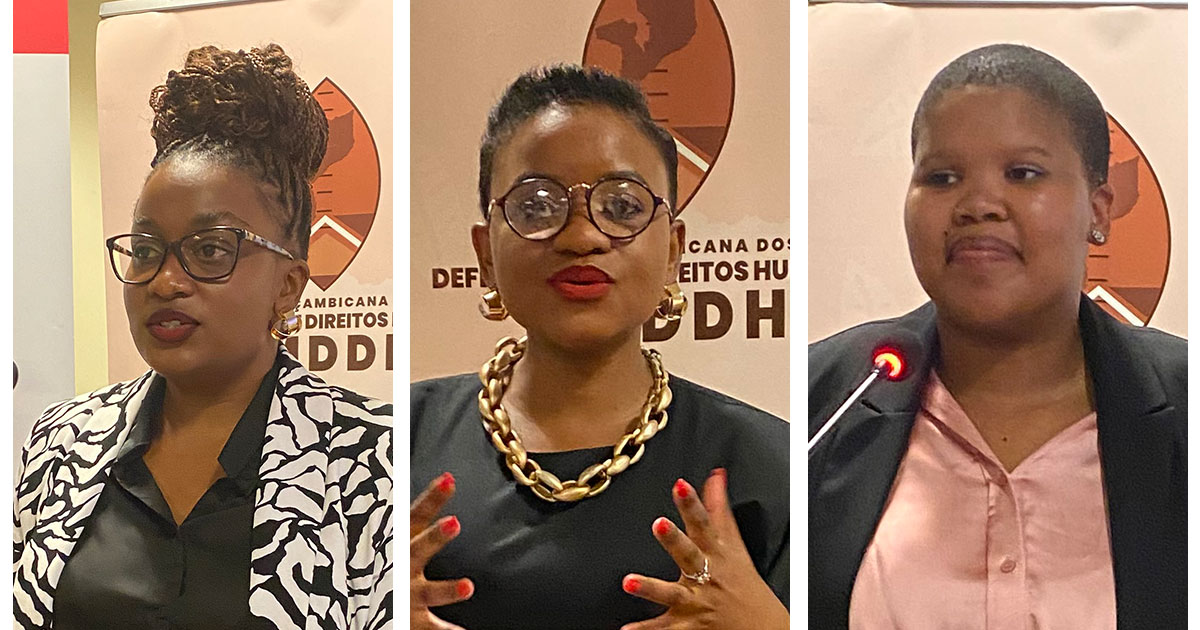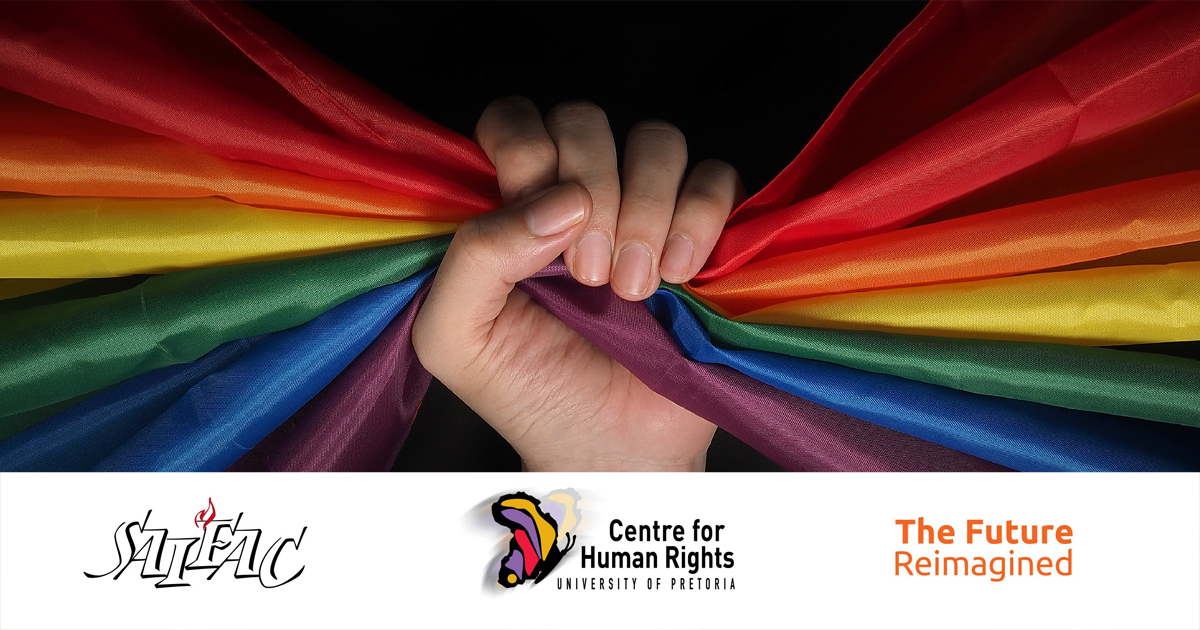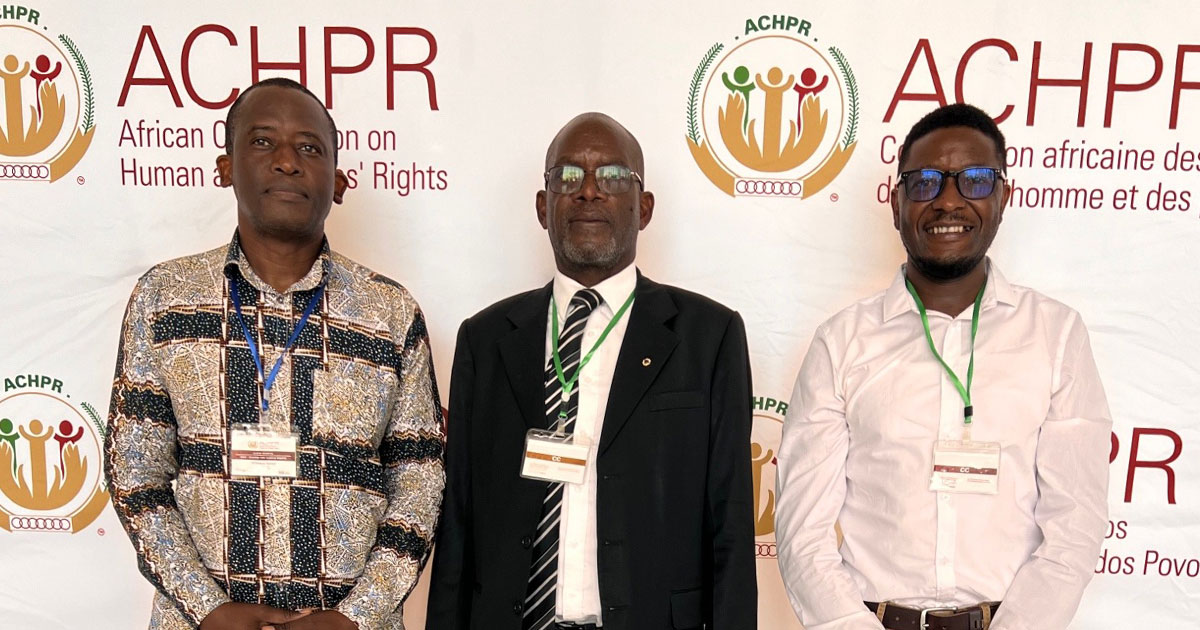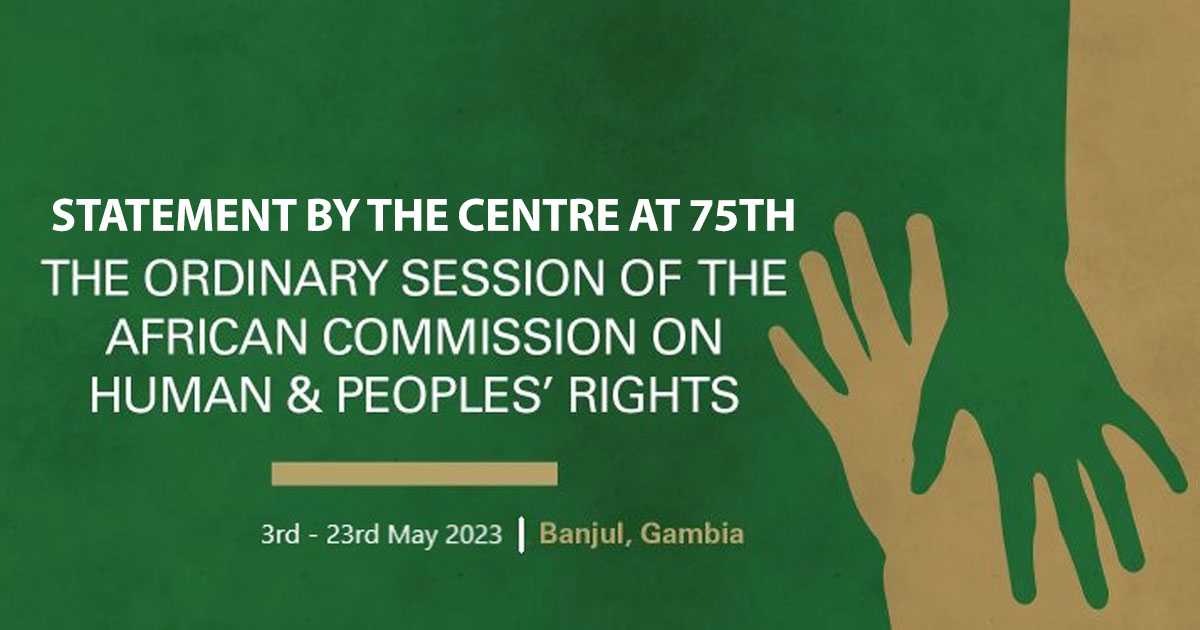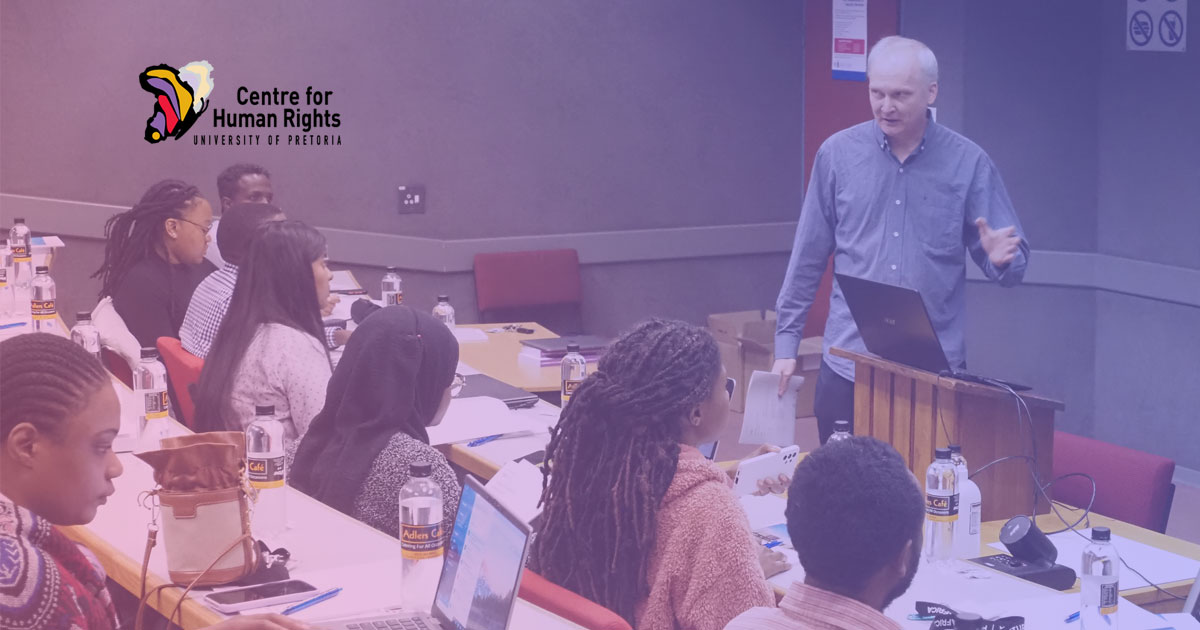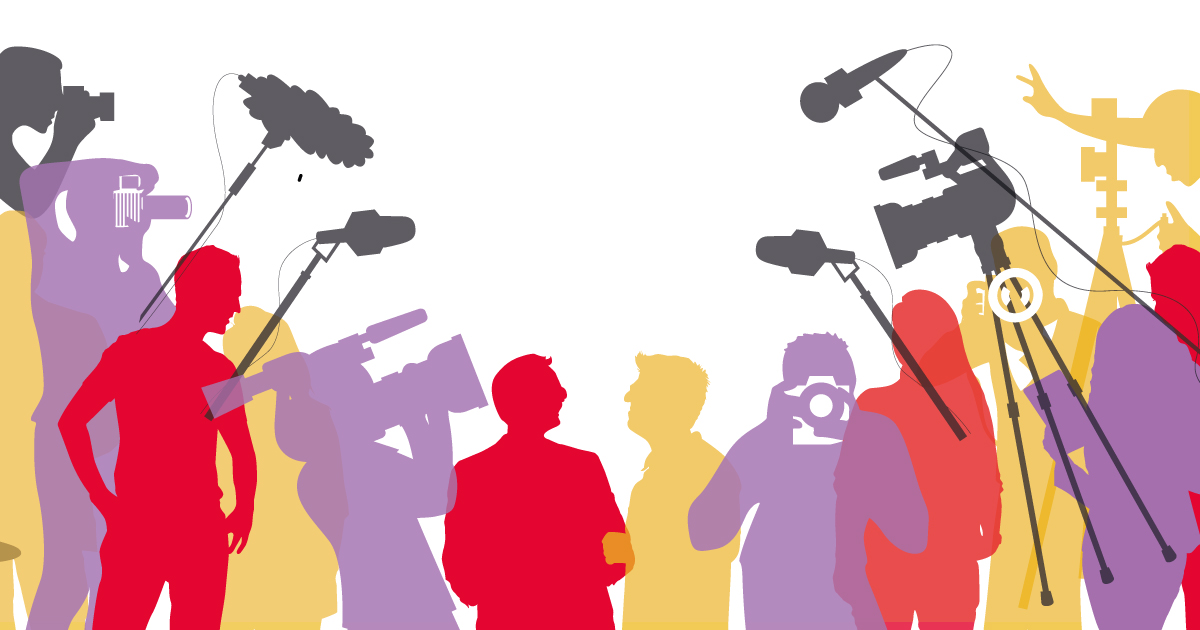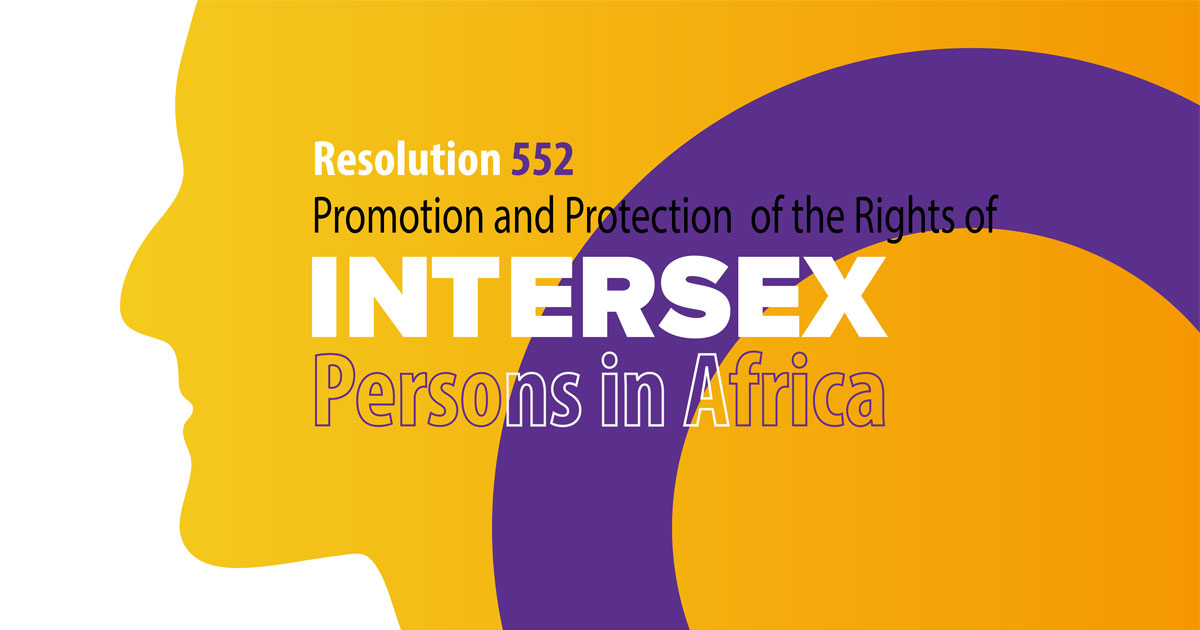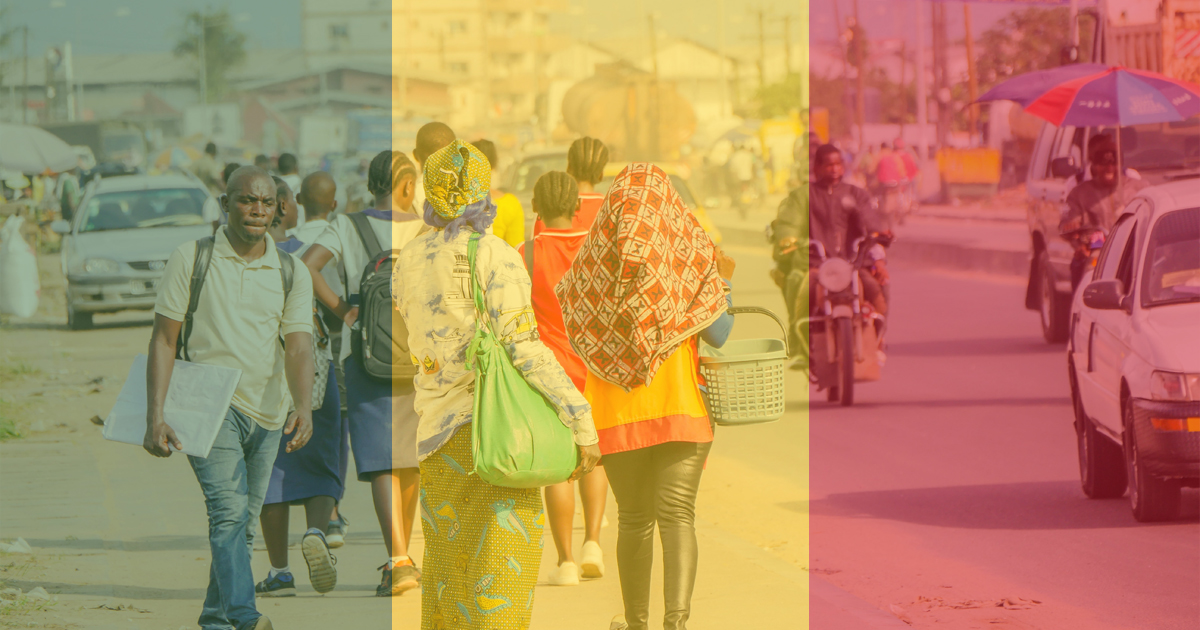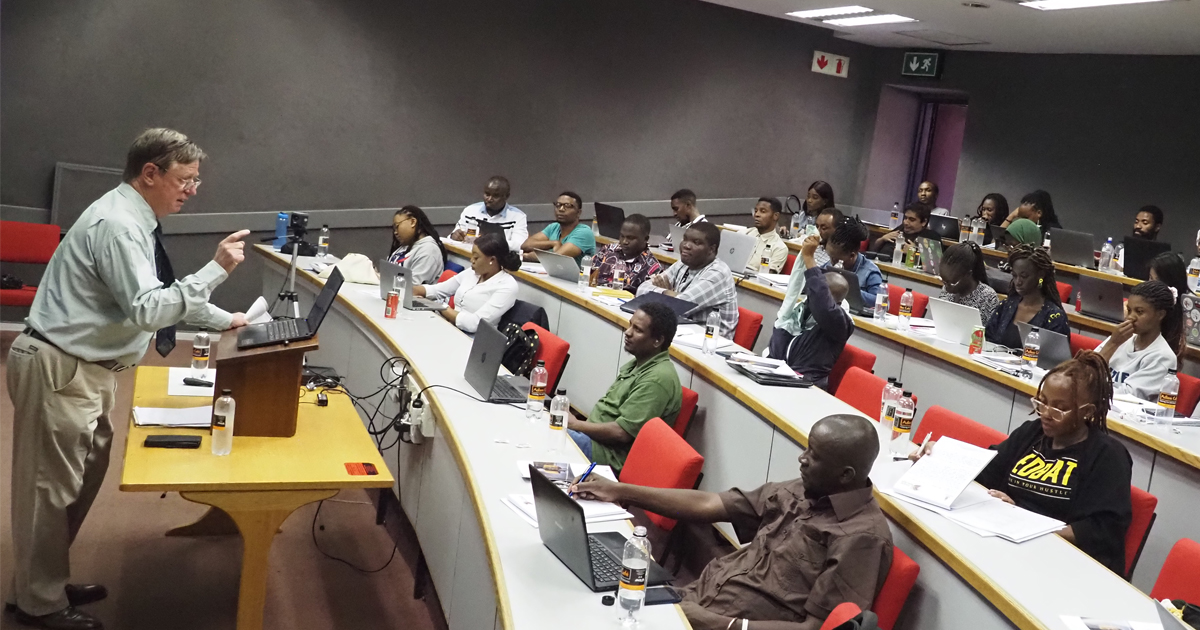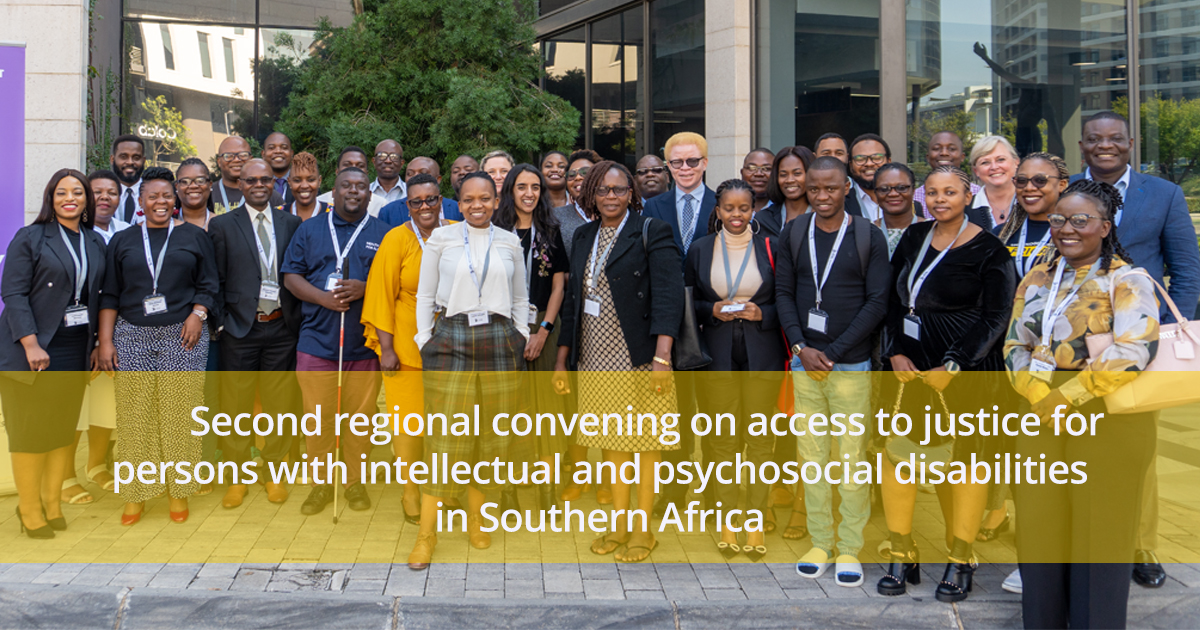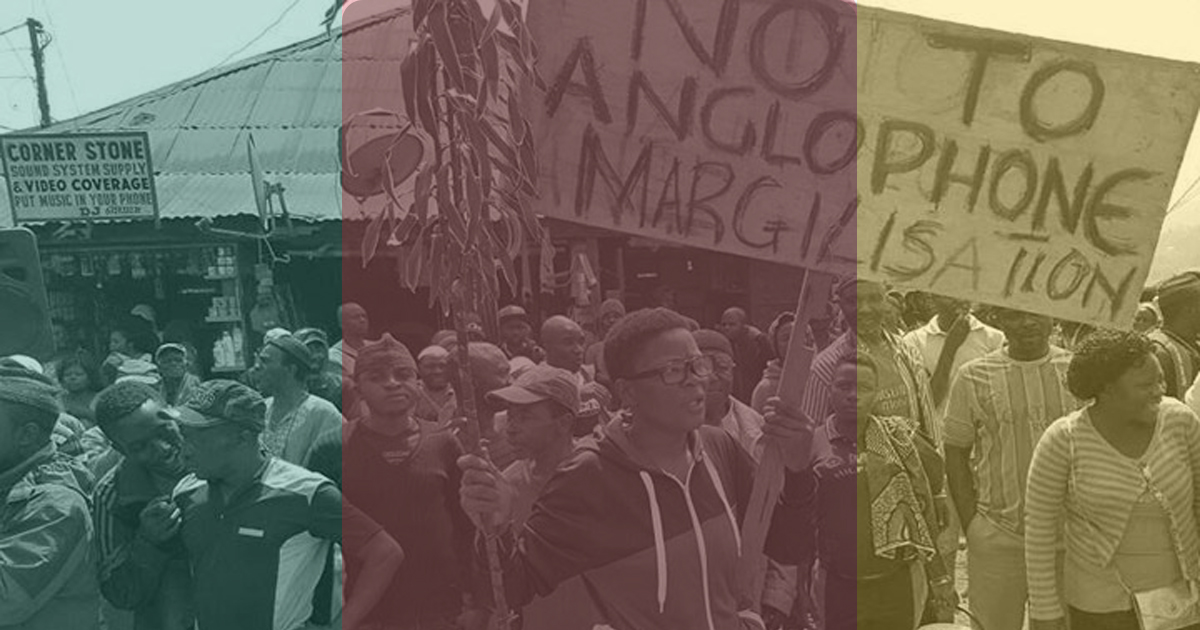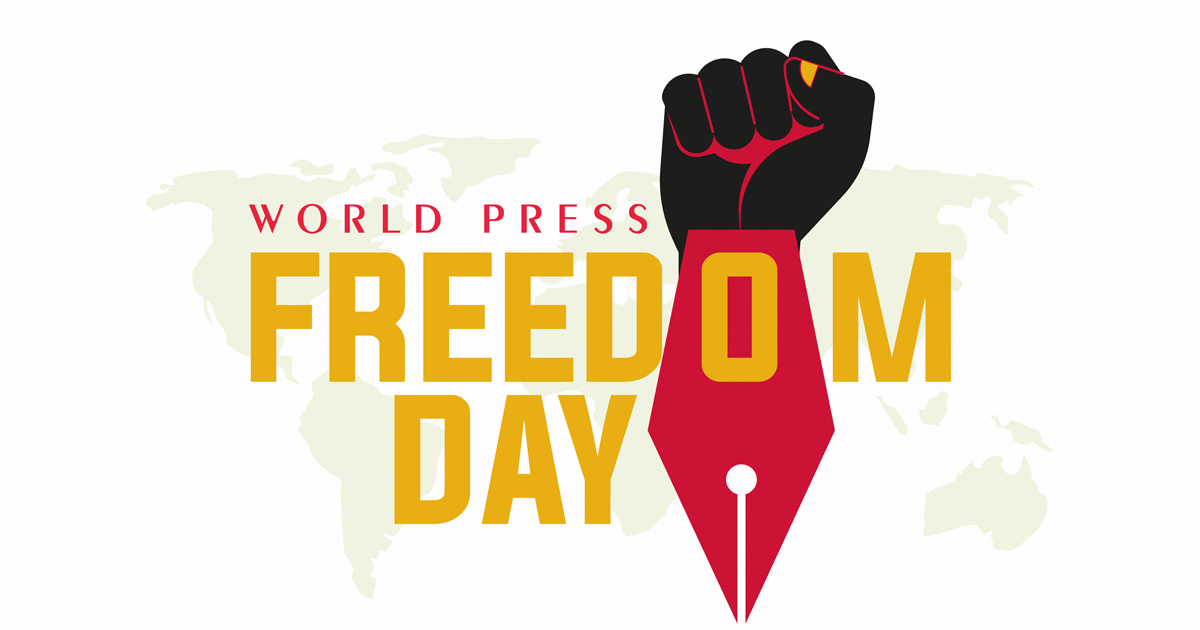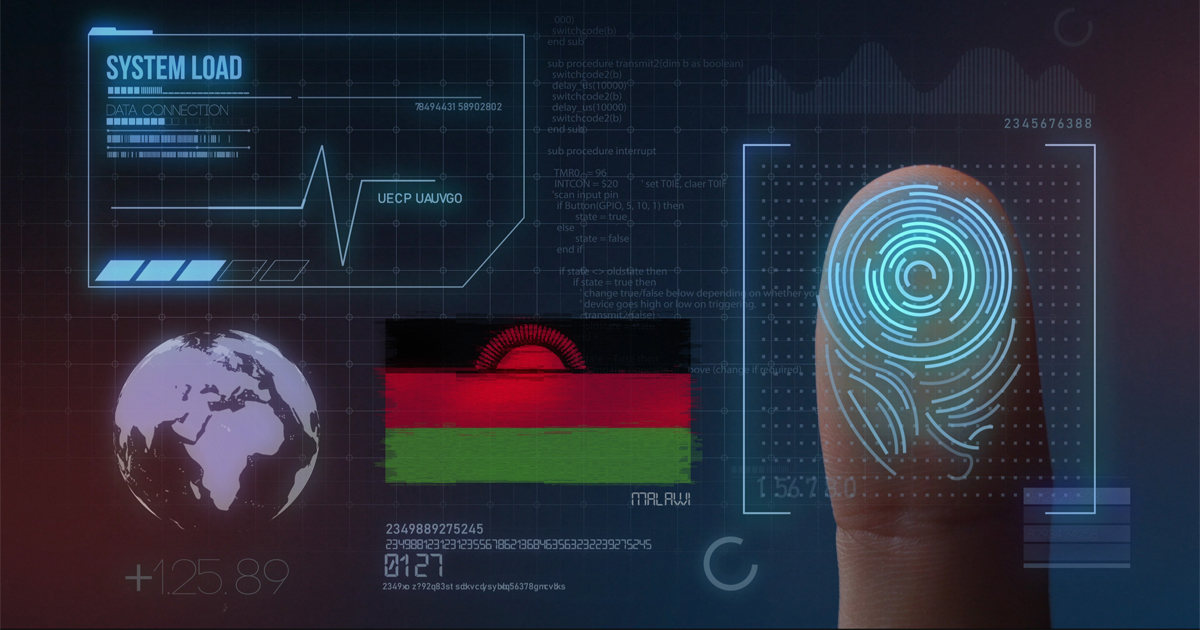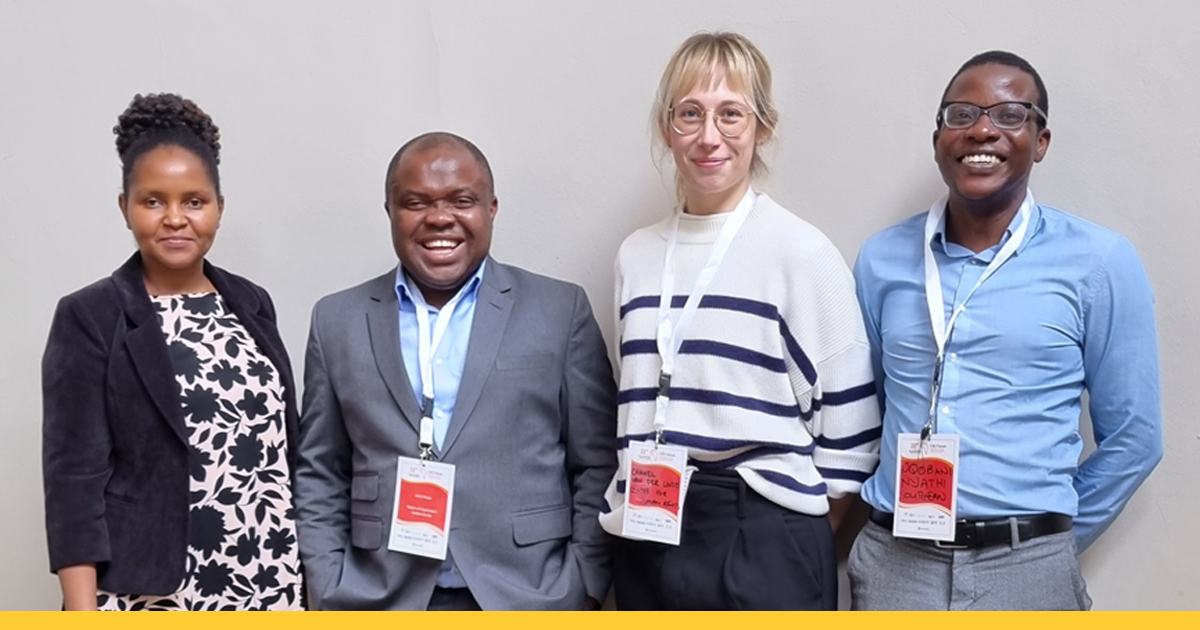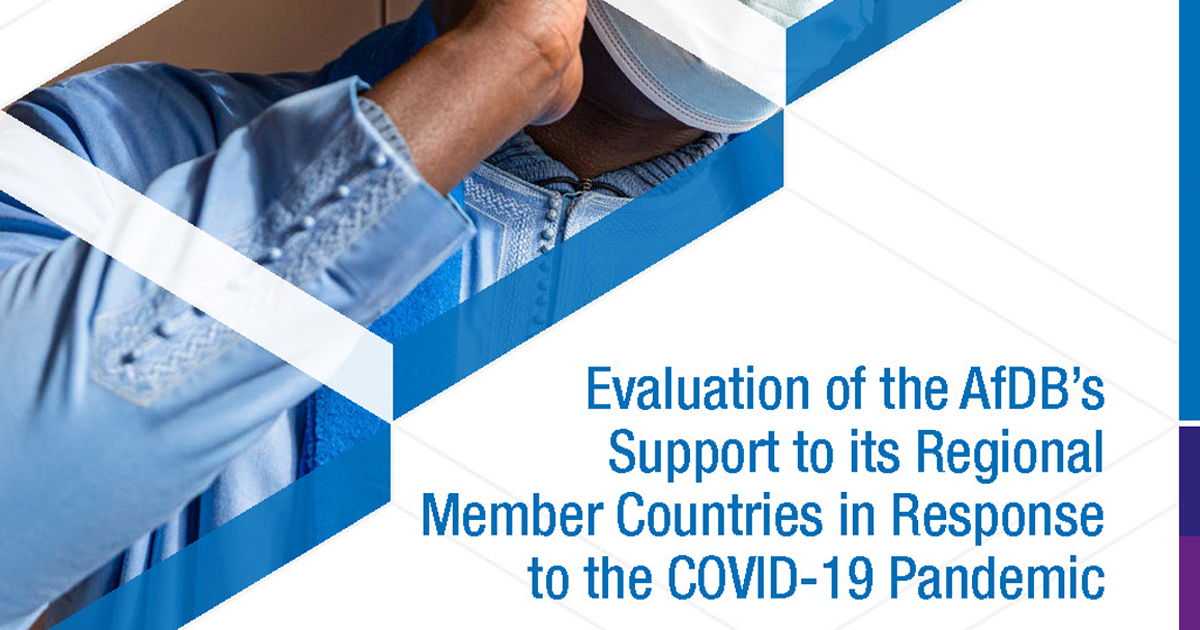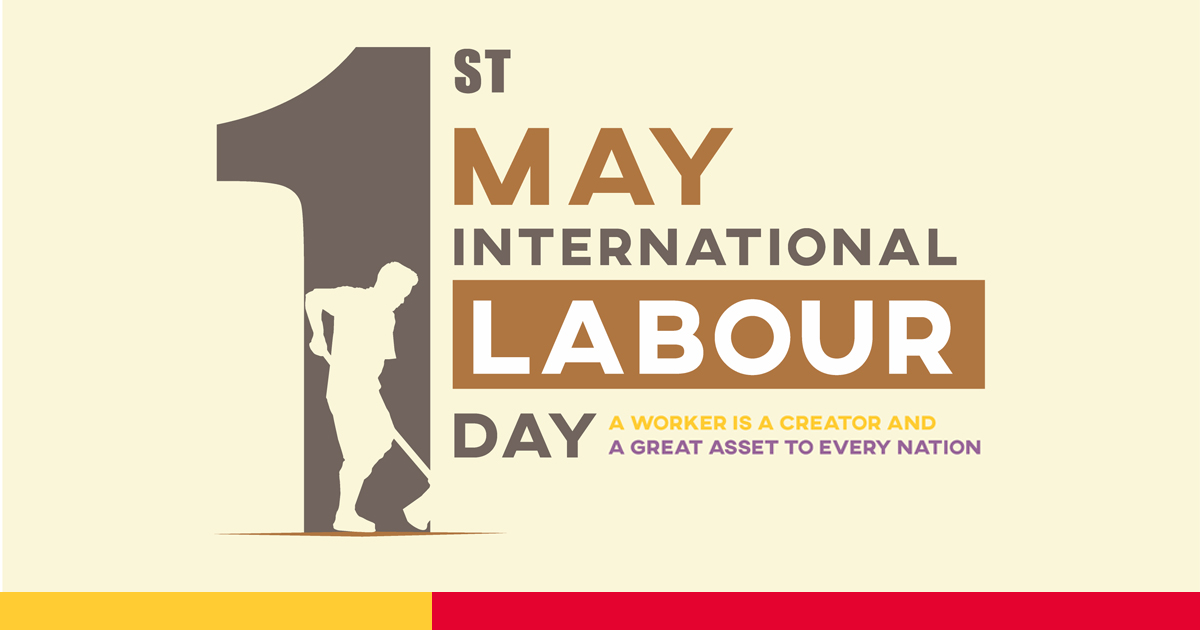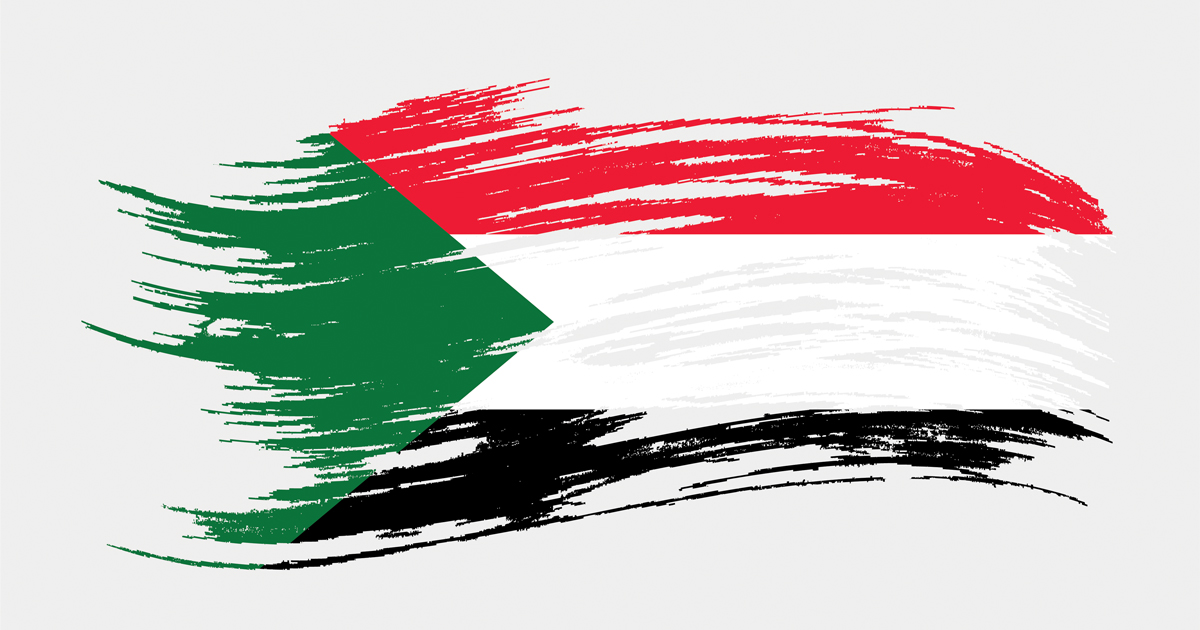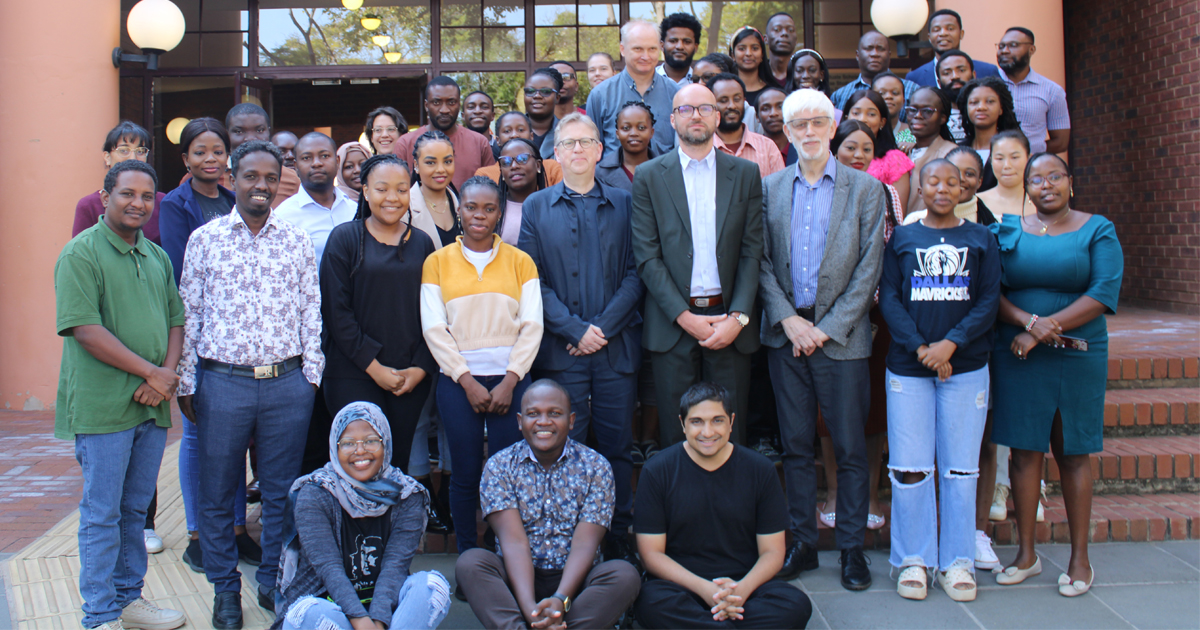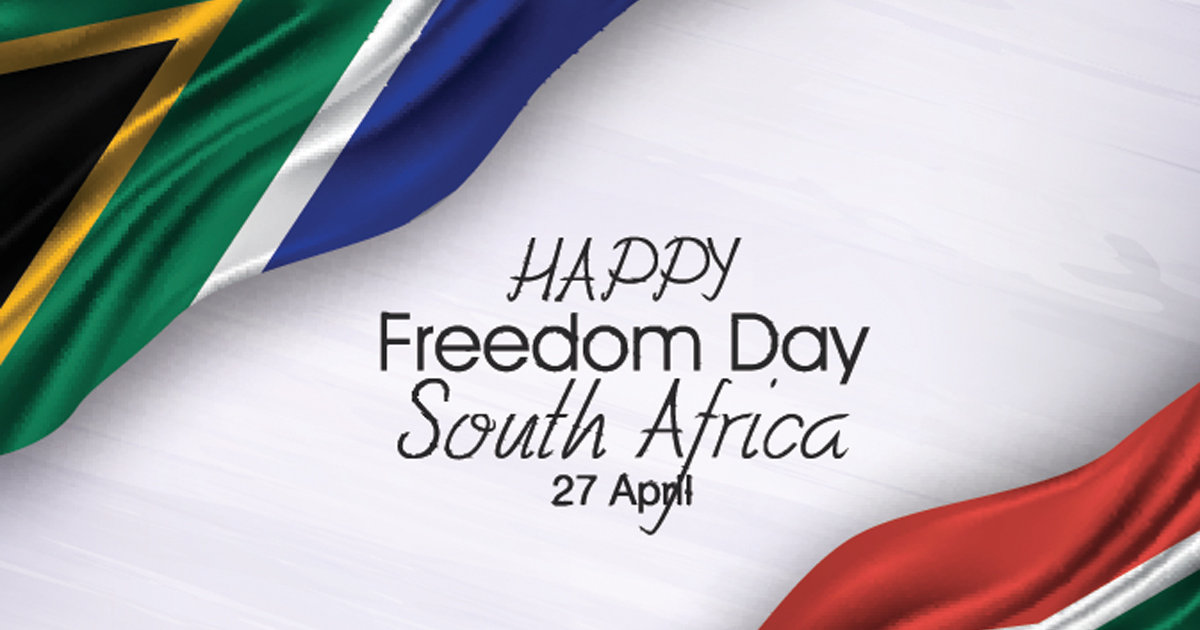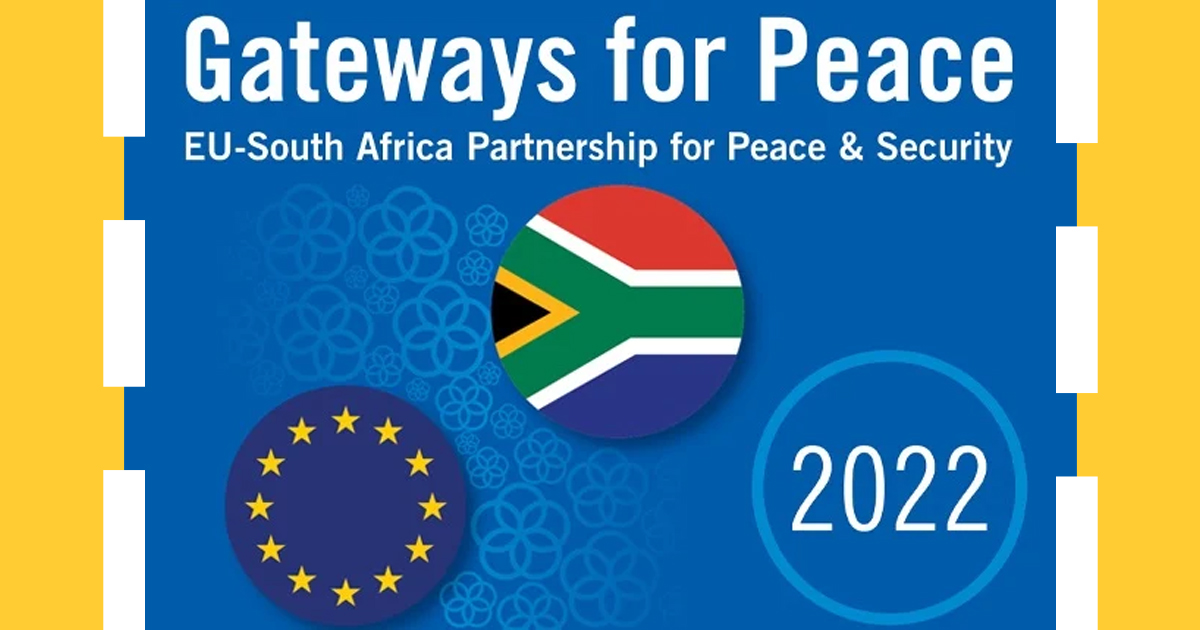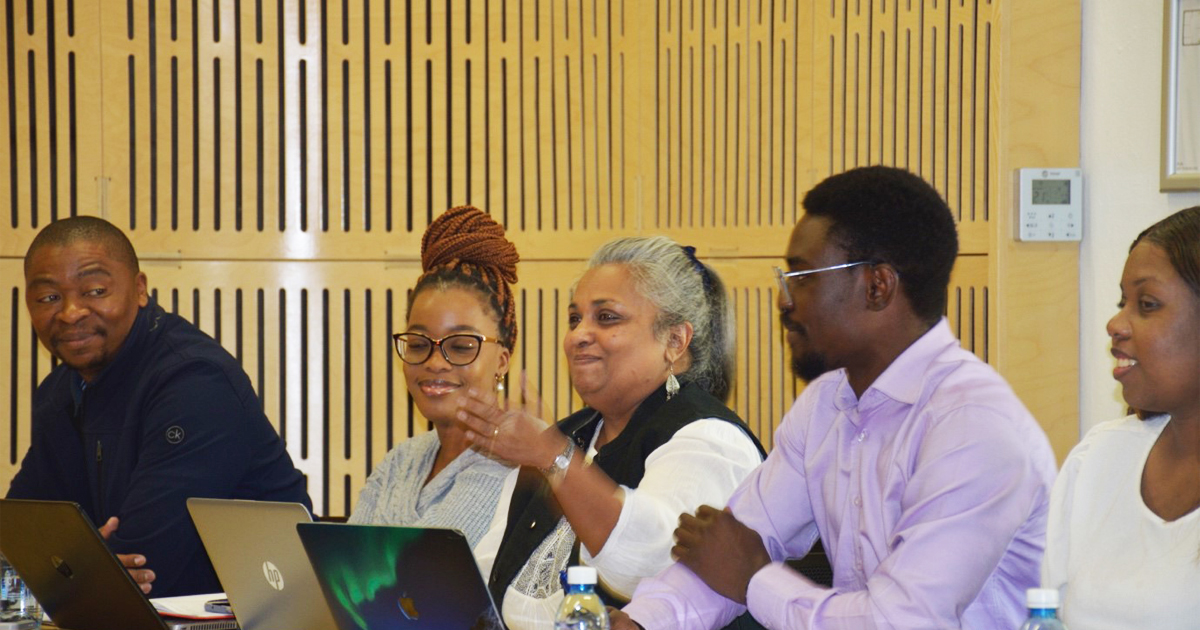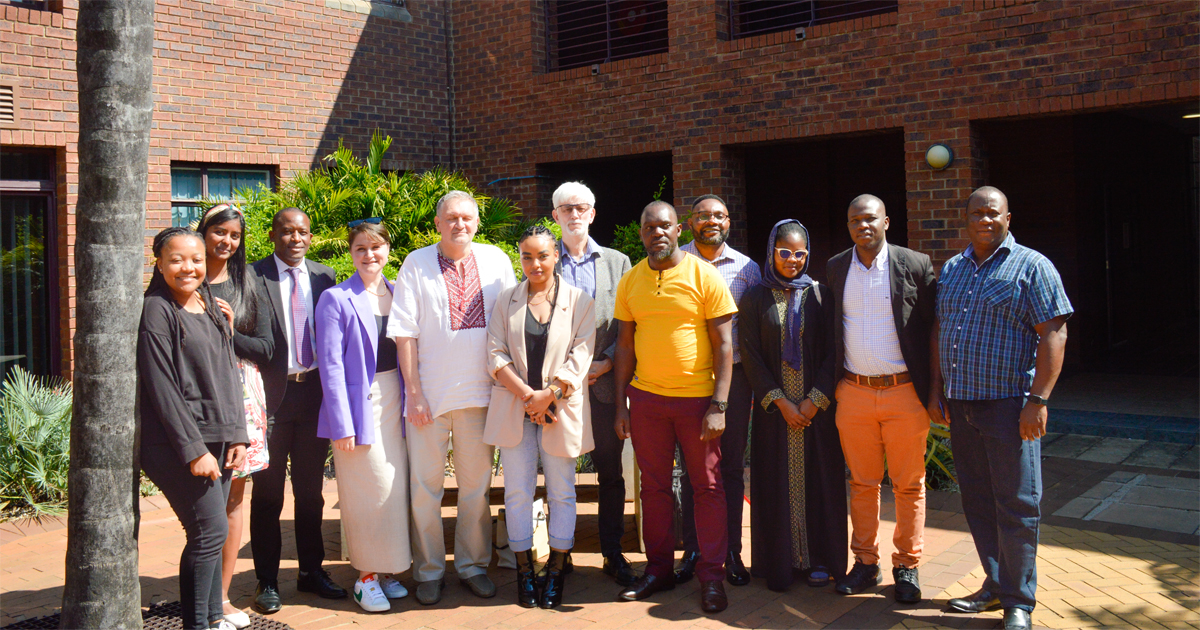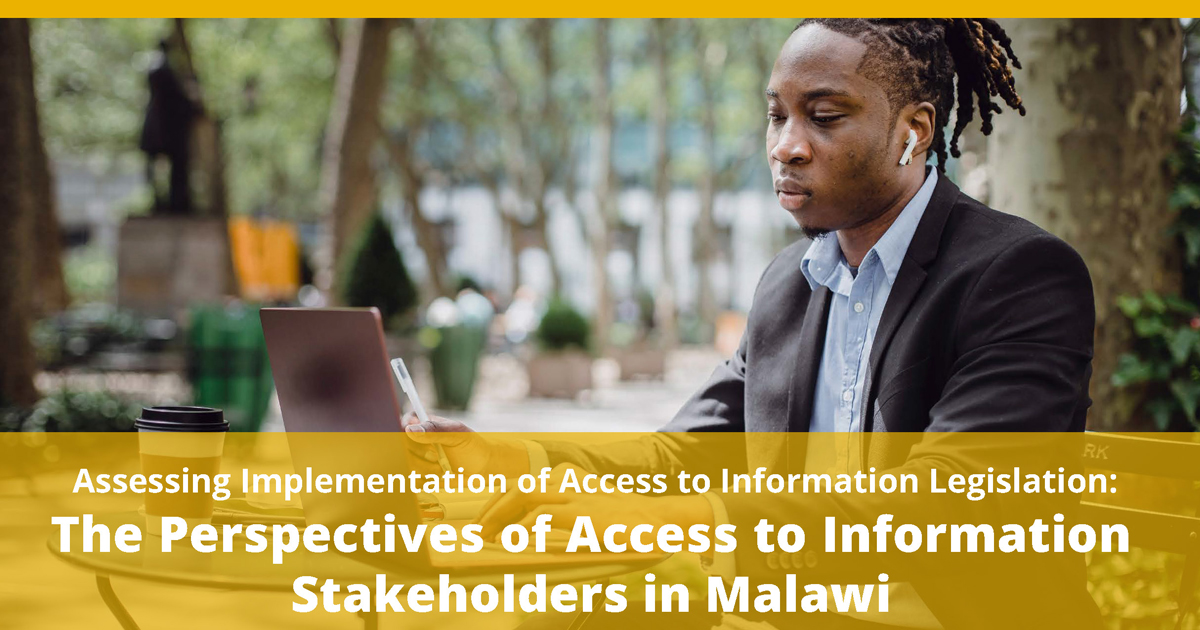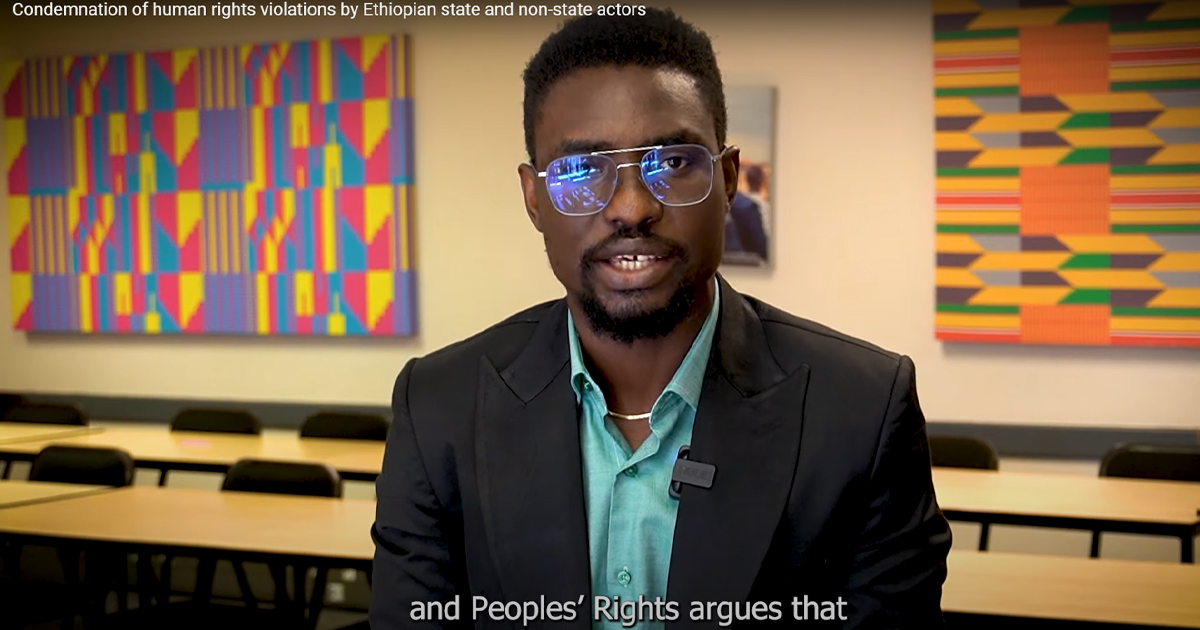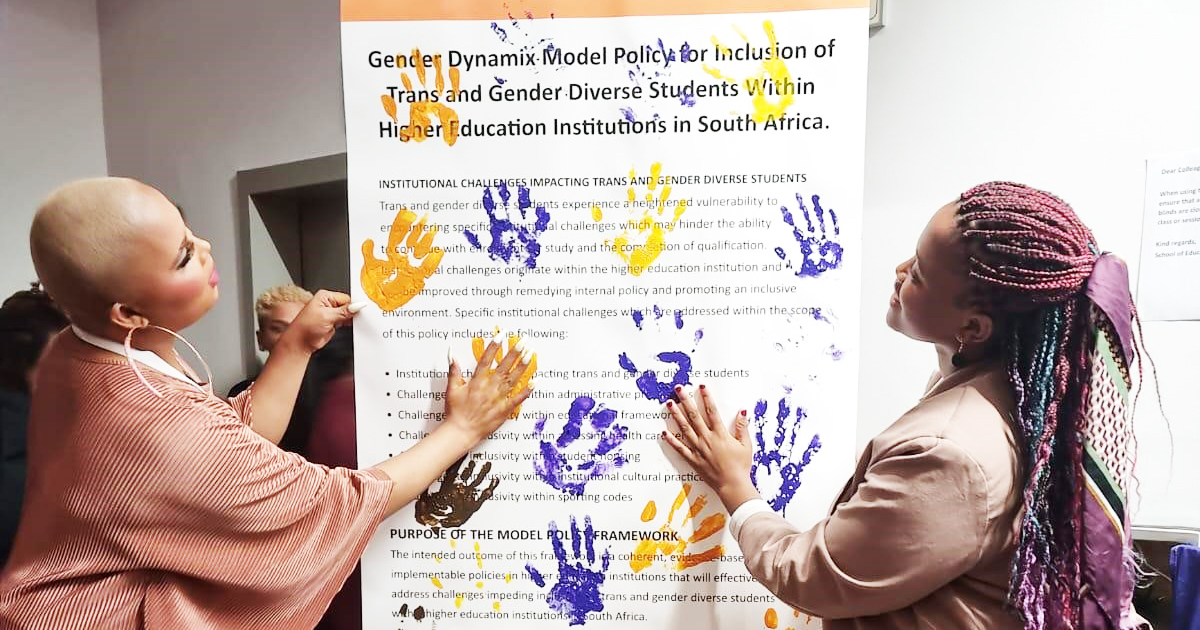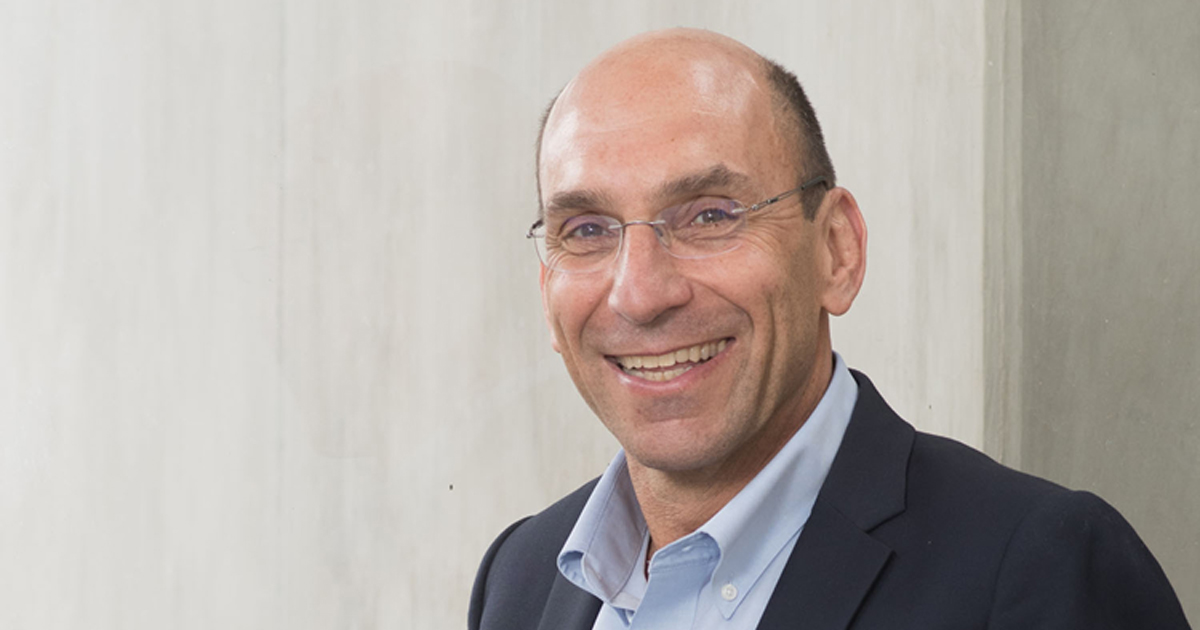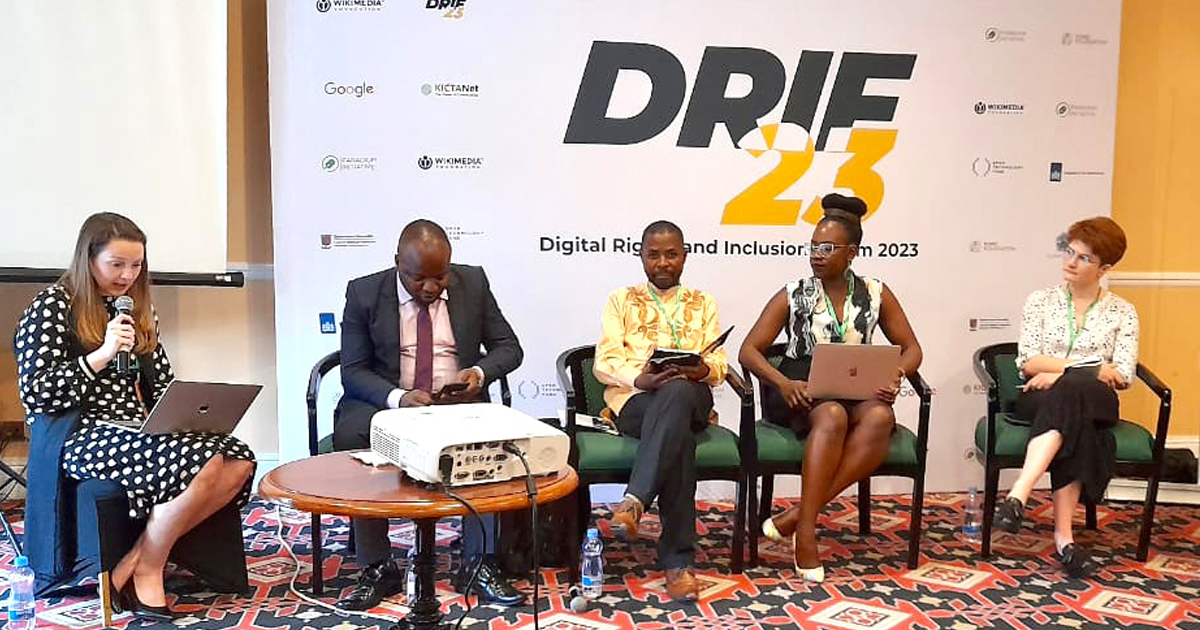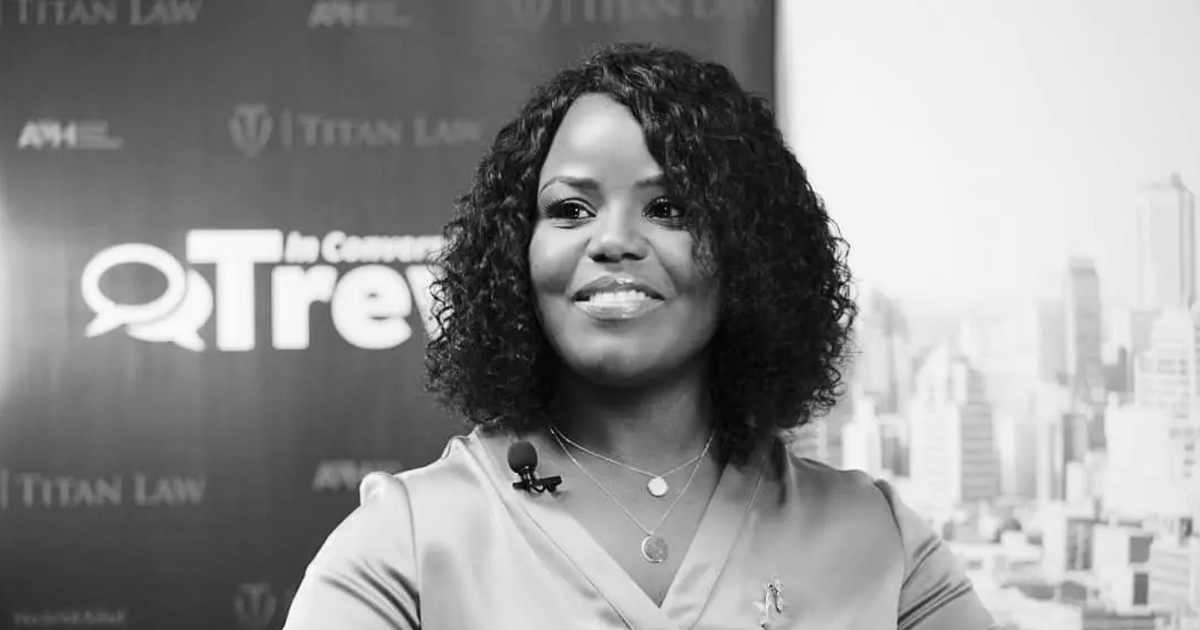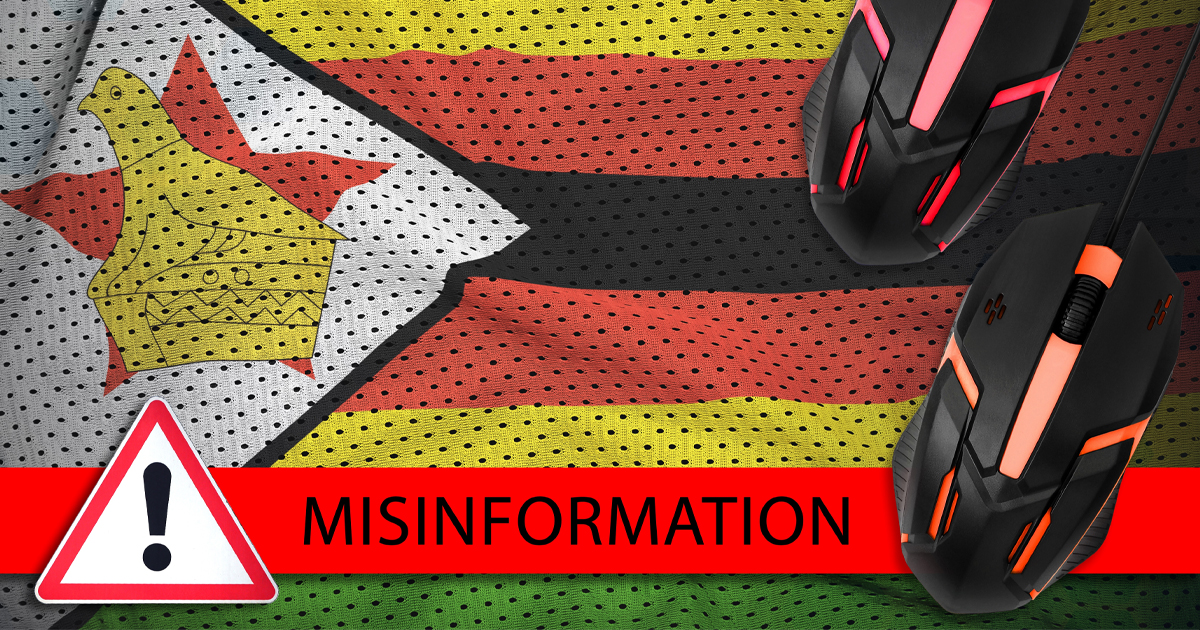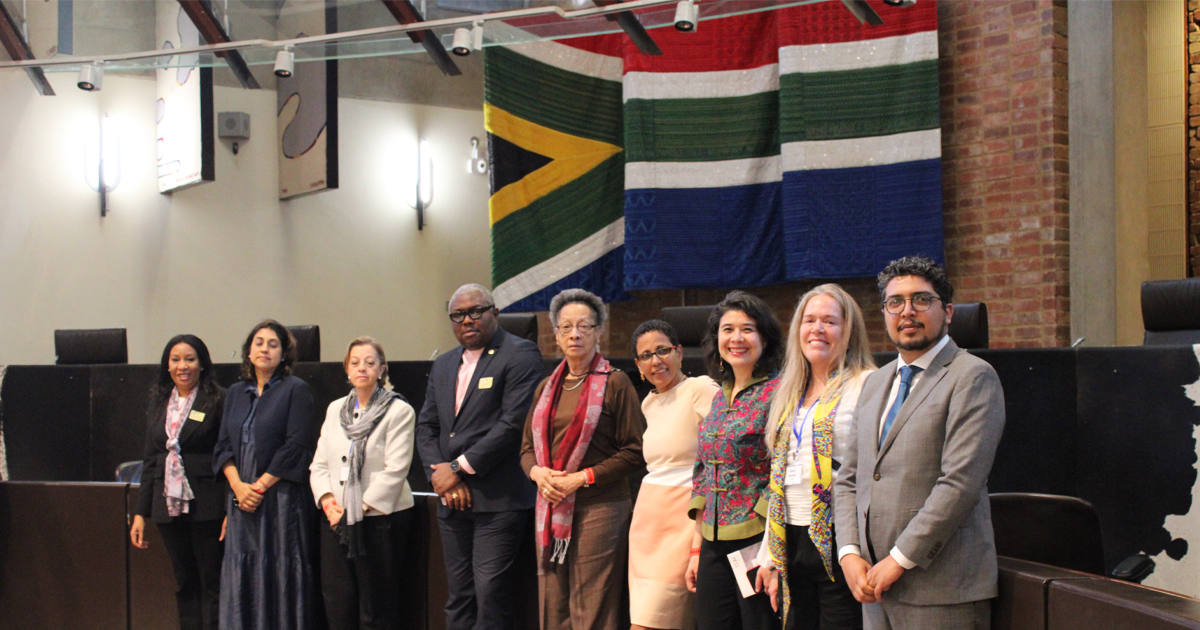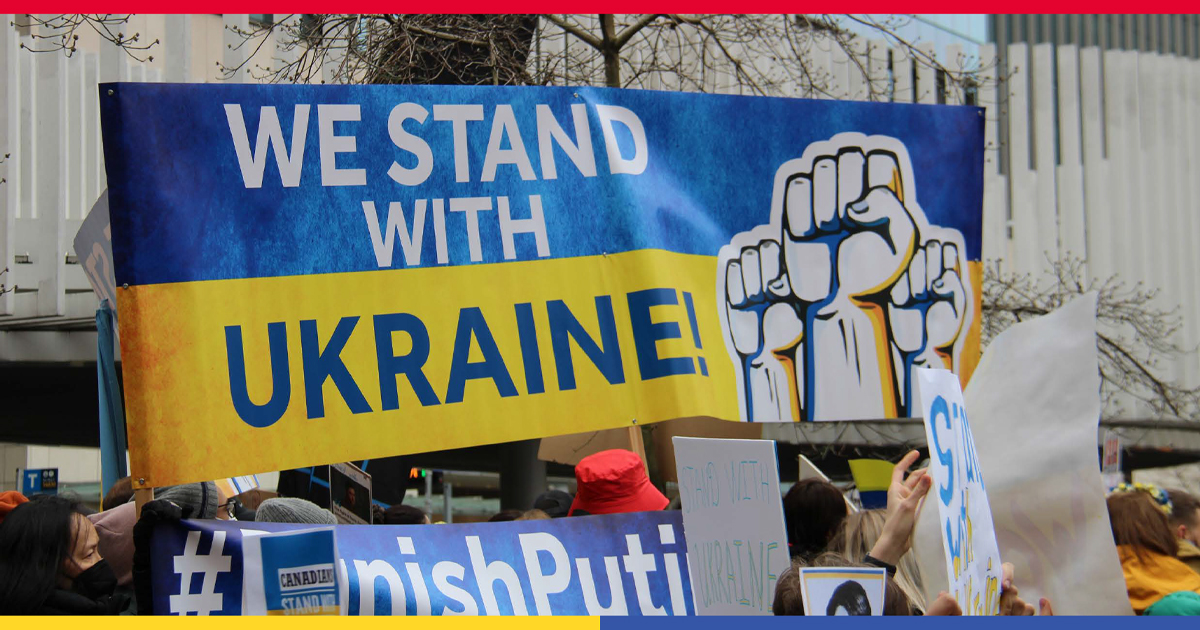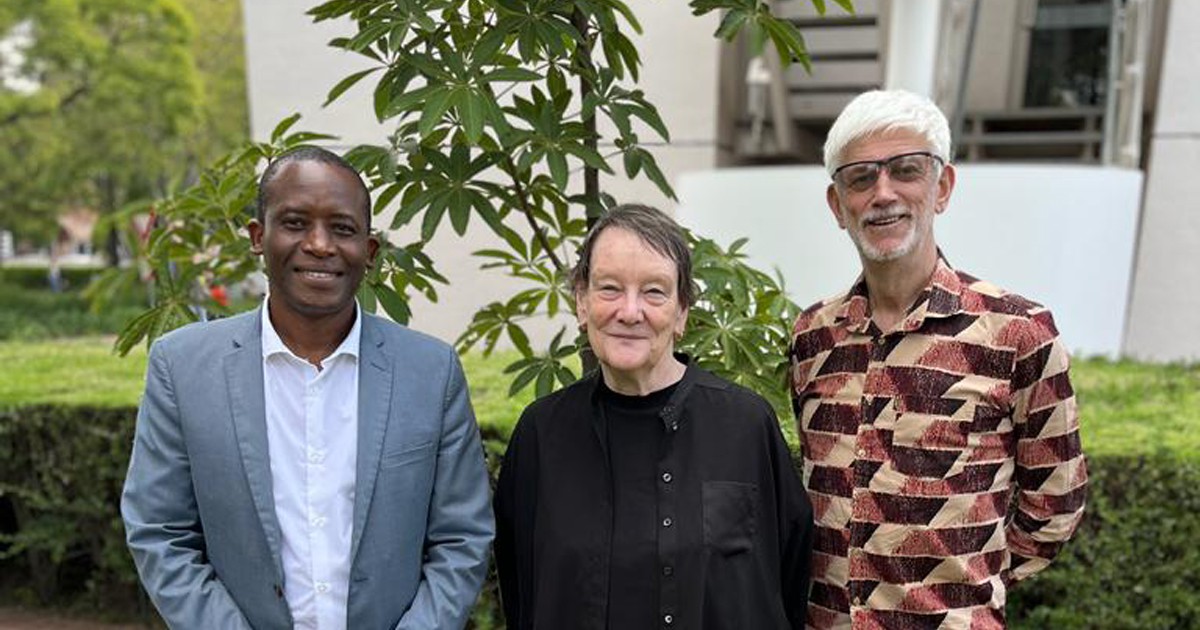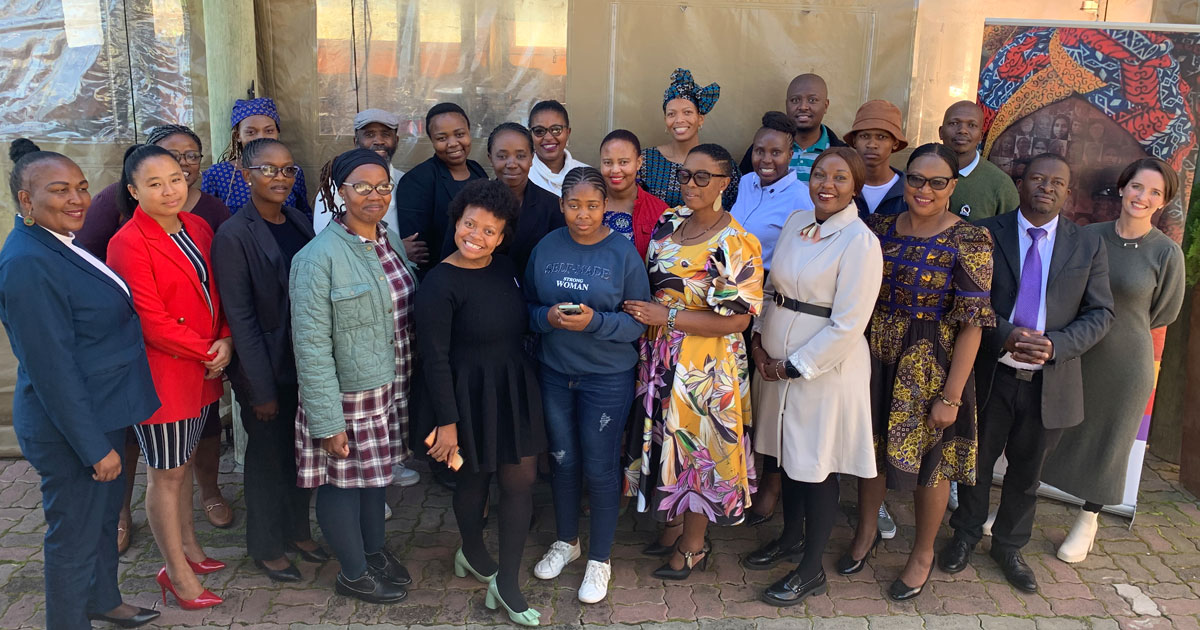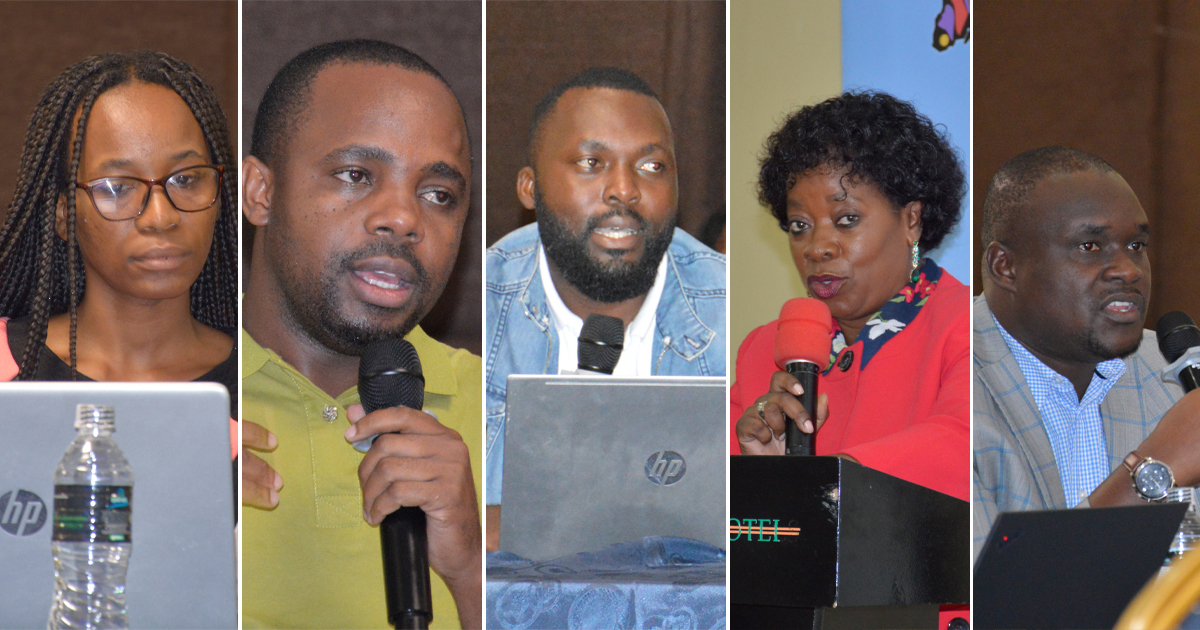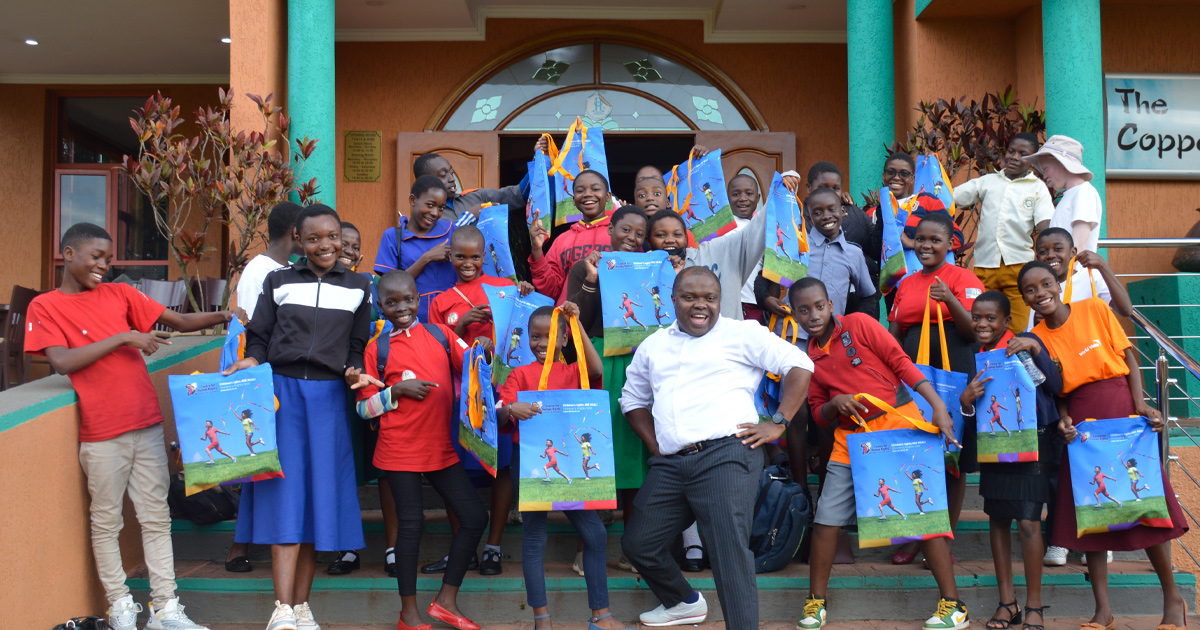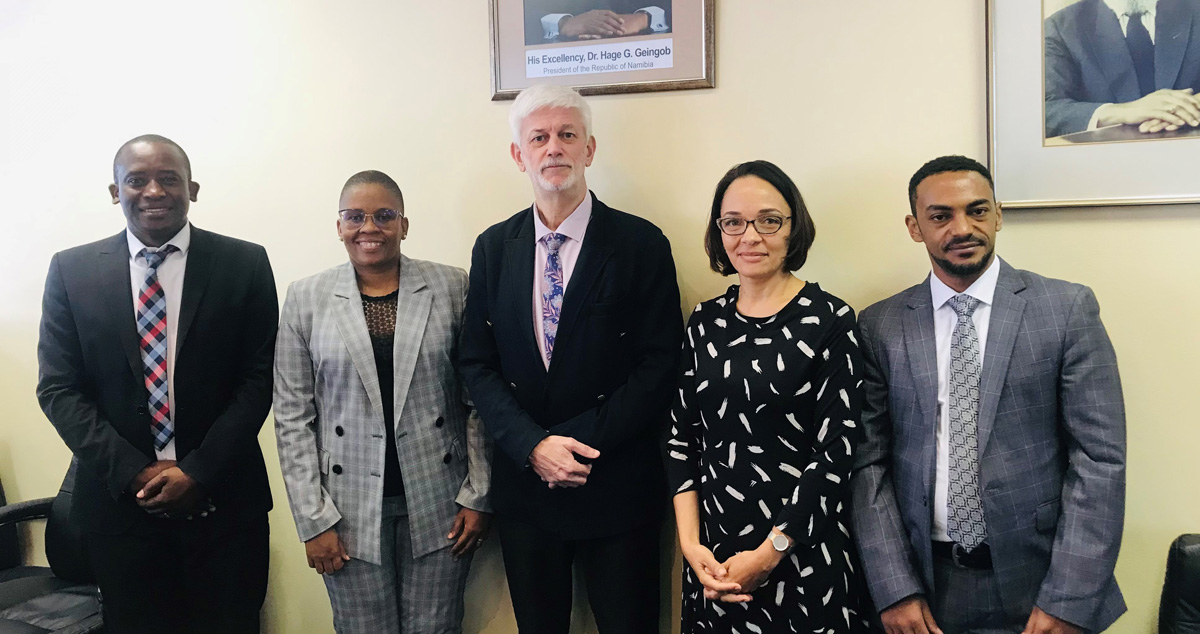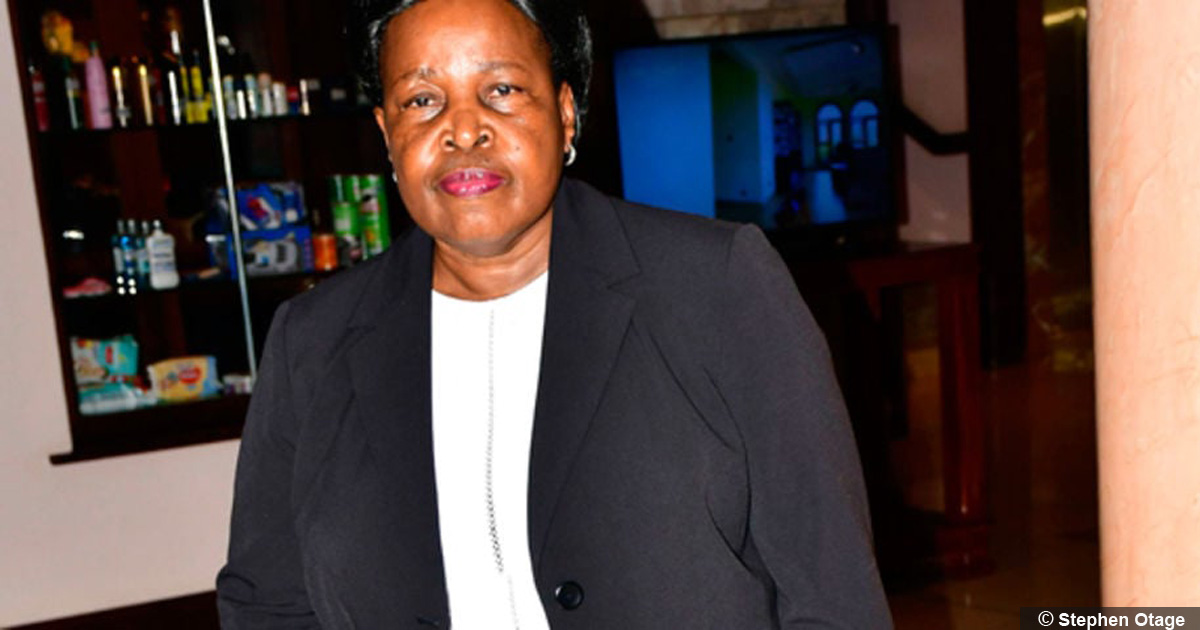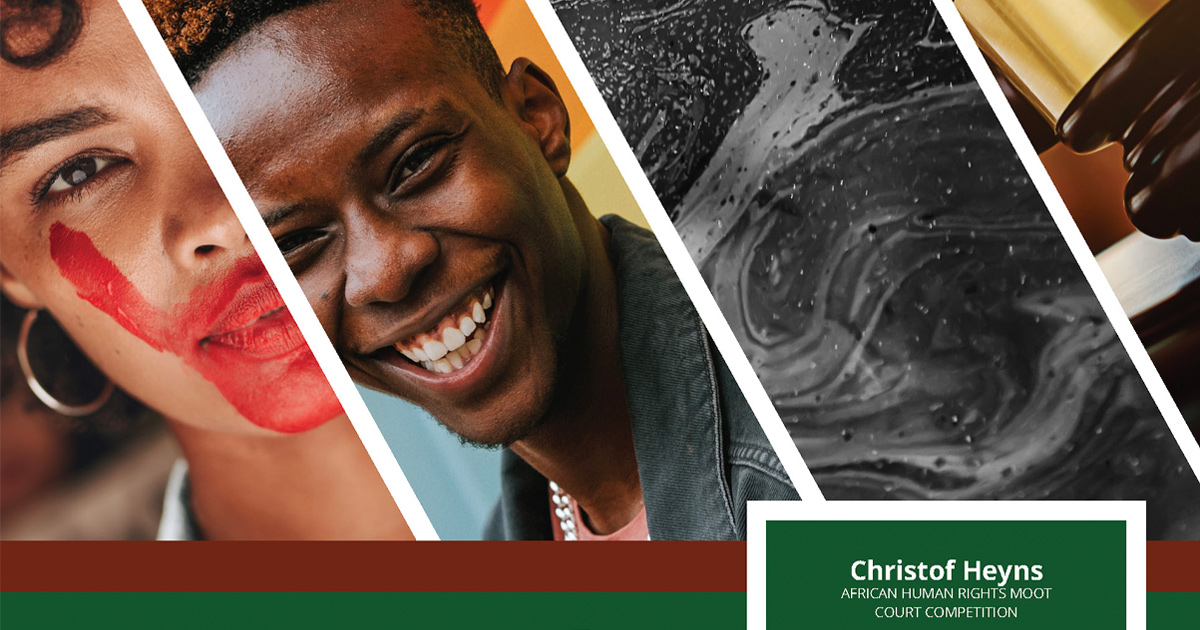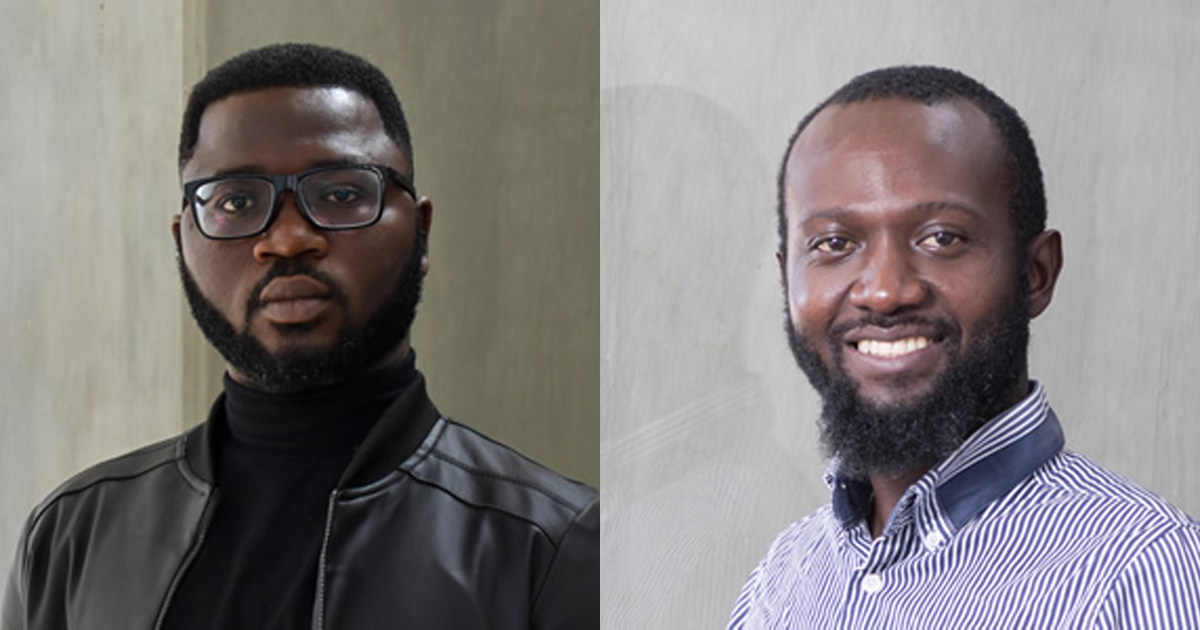- Details
On Friday 28 July 2023, the Centre for Human Rights, Faculty of Law, at the University of Pretoria (Centre), held its inaugural Christof Heyns Human Rights Memorial Lecture, at the Aula, University of Pretoria. The event was attended by about 150 participants in person, including Christof’s wife Fearika, and two daughters, Willemien and Renée, and around 50 participants online. The three panellists presenting the Lecture emphasised that the history and future of human rights remain based on struggle, and that the strategy against the current push back against human rights should be grounded in greater solidarity and more nuanced and sophisticated articulation of human rights language.
- Details
Bringing together over 18 activists and lawyers, the Centre for Human Rights (Centre) held a capacity building workshop on strategic litigation and advocacy for LGBTIQ+ Advocates in Africa from 24 to 28 July, 2023. The capacity building workshop which has been held annually for the last 4 years aims at enhancing the skills of experienced activists in Africa in strategic litigation and advocacy towards the protection of sexual and gender minorities on the continent.
- Details
EVENT INFORMATION
Date: Wednesday 2 August
Time: 17h00 – 18h30
Venue: Centre for Human Rights lecture hall, Faculty of Law
RSVP: mispa.roux@up.ac.za
- Details
On 26 July 2023, a momentous event took place at the University of Pretoria's Faculty of Law, as the Centre for Human Rights launched its groundbreaking #RacialJustice campaign. This campaign is poised to be a catalyst for transformative change, promoting equality, understanding, and social justice in a world that continues to grapple with racial disparities. With a deep commitment to fostering inclusivity, the campaign seeks to address racial discrimination head-on and pave the way for a more equitable future.
- Details
On 20-21 July 2023, the Centre for Human Rights and the Pan-African Parliament Civil Society Forum (PAP CSO Forum), in partnership with the Parliamentary Network Africa (PNAfrica) convened a meeting in Cote d’Ivoire with some of the West African key actors to establish a formal mechanism of engagement between the PAP and civil society.
- Details
The Nelson Mandela World Human Rights Moot Court Competition reached a milestone, with the 15th edition of this Competition being held at the United Nations European headquarters in Geneva, Switzerland. As in 2022, the winning team emerged from the Asian region. This team, the National University of Advanced Legal Studies, Kochi, India, was composed of Akhila Vijayan and Aishwarya Sridhar. The winning team won two Peter Coenen Scholarships for a Summer International Human Rights Implementation Programme at the University of Lucerne in Switzerland. The runner up team was St Thomas University, Canada.
- Details
The Centre for Human Rights, University of Pretoria, and the Zimbabwe chapter of the Media Institute of Southern Africa (MISA), hosted a multi-stakeholder engagement on 27 and 28 June 2023 in Harare, Zimbabwe. The engagement sought to promote a healthy information ecosystem throughout the Zimbabwean election process by enhancing access to information and promoting rights-based approaches to addressing the disinformation challenge.
- Details
On a momentous day in Geneva, Switzerland, the world witnessed the fourth annual Nelson Mandela Human Rights Lecture, an event that has become a beacon of inspiration and intellectual discourse. This year's lecture focused on a critical topic that continues to shape our global landscape: the intersection of refugees and climate change. In a world grappling with both environmental and humanitarian challenges, the lecture served as a platform to address the urgent need for collective action and empathetic response.
- Details
The Centre for Human Rights, Faculty of Law, University of Pretoria, is pleased to invite applications for the Master's degree (LLM/MPhil) in Multidisciplinary Human Rights (MDHR) for the academic year 2024. This prestigious program offers an unparalleled opportunity for students to engage in advanced studies and research in the field of human rights, equipping them with the knowledge and skills to make a lasting impact on human rights issues globally.
- Details
To mark the 20th anniversary of the adoption of the Protocol to the African Charter on Human and Peoples’ Rights on the Rights of Women in Africa (Maputo Protocol), the Centre for Human Rights, University of Pretoria and the Faculty of Law, University of Nairobi launched two books published by the Pretoria University Law Press (PULP). The book launch took place in Nairobi, Kenya on 13 July 2023. The publications were launched in celebration of the Maputo Protocol turning 20 on 11 July 2023.
- Details
With the 2024 South African National Elections around the corner, the Democracy and Civic Engagement Unit at the Centre for Human Rights in Partnership with the Australian High Commission, South Africa convened a space in which young South Africans could engage on matters related to governance, democracy and stability on 14-15 July 2023. The democracy capacity building workshop was guided by the theme “Encouraging Youth Participation in South Africa’s Democracy.”
- Details
The prestigious Nelson Mandela Moot Court Competition, named in honour of the iconic South African leader and human rights advocate, has long been recognised as a platform for aspiring legal minds to showcase their skills and passion for justice. With each passing year, the competition grows in significance, attracting talented law students from across the globe. As we delve into the advanced rounds of this year’s competition, let us explore the remarkable journey that participants undertake and the impact it has on the future of law.
- Details
The Centre for Human Rights, Faculty of Law, University of Pretoria is pleased to invite you to the launch of the 2023 #RaciaJustice Campaign. The Centre joins the global community in the fighting against racism, racial discrimination and xenophobia. The campaign aims to achieve racial justice for the many victims of racism and racial discrimination, in the region and continent alike.
- Details
The Centre for Human Rights, Faculty of Law, University of Pretoria (Centre) co-hosted a virtual meeting on colonialism and sexual orientation and gender identity with the United Nations Independent Expert on Sexual Orientation and Gender Identity on 6 July 2023. The meeting brought together experts on colonialism, coloniality and decolonisation in relation to sexual and gender diversity from across the world.
- Details
LEGAL AND HUMAN RIGHTS CENTRE AND CENTRE FOR REPRODUCTIVE RIGHTS V UNITED REPUBLIC OF TANZANIA (The reproductive rights case)
The Centre for Human Rights, Faculty of Law University of Pretoria would like to invite you to the 4th edition of its case discussion series on decisions of African human rights bodies.
- Details
By Bonolo Makgale and Nyasha M Mpani
"The revolution cannot triumph without the emancipation of women” — Thomas Sankara. Women on the African continent make up 50% of the population. Yet they continue to face discrimination, inequality and lack of access to equal opportunities.
- Details
As part of the African women’s movement, the Centre for Human Rights, Faculty of Law, University of Pretoria, and the Solidarity for African Women’s Rights (SOAWR) convened with other women’s rights organisations in Nairobi, Kenya for the Annual General Meeting on 9 July 2023. The SOAWR AGM took place ahead of a two-day celebration of the Maputo Protocol anniversary on 10 and 11 July 2023 in collaboration with the African Union and the Government of Kenya, as the host state. The Centre financially supported representatives of 5 member organisations based in the Southern Africa region to participate in the AGM and the pivotal anniversary celebrations on 10 and 11 July 2023.
- Details
In pursuit of the ideals of excellence, the University of Pretoria wishes to invite applications for the following vacancy. The University of Pretoria's commitment to quality makes us one of the top research Universities in the country and gives us a competitive advantage in international development.
- Details
On 22 June 2023, the Centre for Human Rights (CHR) and the Centre for Sexualities, AIDS, and Gender (CSA&G) University of Pretoria, in collaboration with the Center for Gender Studies and Feminist Futures (CGS) and the Center for Conflict Studies (CCS) at the Philipps-University Marburg, hosted the series finale of the Pretoria-Marburg Queer Conversations.
- Details
The Centre for Human Rights, Faculty of Law, University of Pretoria, is concerned about the unwarranted and unlawful assaults on lawyers using brutal acts of violence and the criminal justice system in two autocratic states preparing for elections within the next two months. The governments of Zimbabwe and Eswatini will hold elections in August and September 2023, respectively, in an atmosphere of fear and intimidation of dissenting voices.
- Details
The Centre for Human Rights, University of Pretoria, is convening a conference whose theme is ‘Climate Change and Disability in Africa: A Human Rights Response.’ The aim of the conference is two-fold: 1) to critically appraise laws, policies, practices, programmes, polities and ideologies that relate to the rights of persons with disabilities in Africa, in the context of climate change and 2) to suggest remedial responses (domestically, regionally and globally) to address violations of the rights of persons with disabilities in climate crises. The conference will be held in hybrid format from 20 – 21 November 2023. It is anticipated that papers presented at this conference will be reworked by authors and submitted for consideration for publication in the 2024 volume of the African Disability Rights Yearbook. www.adry.up.ac.za
- Details
From the 20th to the 22nd of June 2023, the University of Pretoria’s (UP) faculty of law, Centre for Human Rights’(CHR), Expression, Information and Digital Rights Unit, in collaboration with the Transformation Resource Centre (TRC), hosted a digital rights capacity-building workshop for parliamentarians in Maseru, Lesotho.
- Details
On 30 June 2023, in Menlyn, Pretoria, esteemed jurists and legal experts gathered to enhance their knowledge and awareness of LGBTIQ+ issues in South Africa. The event was part of an ongoing Equality Courts project, sponsored by the European Union, empowering communities, and presiding officers in the fight for equality and justice.
- Details
Janet Gbam, a Doctoral student and the programme manager of the Masters Programme in Multidisciplinary Human Rights at the Centre for Human Rights, recently participated in the Education and Democratic Citizenship Conference (ICEDC) and Human Rights Education Review. The conference took place from 12-13 June 2023, focusing on the theme of ‘Human Rights and Education: Past, Present, and Future’.
- Details
The Centre for Human Rights, Faculty of Law, University of Pretoria and the Faculty of Law, University of Nairobi cordially invite you to a launch of two publications recently published by the Pretoria University Law Press. The two publications will be launched in celebration of the 20th anniversary of the Protocol to the African Charter on Human and Peoples’ Rights on the Rights of Women in Africa (Maputo Protocol). The Maputo Protocol turns 20 on 11 July 2023.
- Details
The South African Human Rights Commission, in collaboration with the Department of Education, The Department of Justice and Constitutional Development and the Centre for Human Rights, Faculty of Law, University of Pretoria, cordially invite student volunteers at the University of Pretoria, whohave experience in mooting to apply to be a marker of essays in the central marking process for the National School Moot Court Programme.
- Details
The year 2023 marks 75 years since the Universal Declaration of Human Rights was passed, yet the passing of Human rights lawyer Thulani Maseko on 21 January 2023 has demonstrated the long fight for human rights and democracy continues. With nearly half a year passed since the death of Thulani Maseko, there is still no justice and accountability.
“We are caught between hope and fear - hope for democracy and fear of being assassinated.” – Thulani Maseko.
- Details
The Centre for Human Rights, the Centre for Child Law both at the Faculty of Law at the University of Pretoria, and the Dullah Omar Institute at the Faculty of Law at the University of the Western Cape successfully hosted the annual Advanced Human Rights Course on Children's Rights in Africa from 19 to 23 June 2023.
- Details
Henok Ashagrey, a passionate Doctoral student and Tutor for the LLM/MPhil (Human Rights and Democratisation in Africa) program at the Centre for Human Rights, Faculty of Law, University of Pretoria, had an amazing opportunity to participate in a cutting-edge workshop titled 'Humour and Human Rights: Humour, a less explored tool to advance human rights.'
- Details
The Centre for Human Rights, Faculty of Law, University of Pretoria, invites you to join the inaugural Christof Heyns Memorial Lecture in memory of the manifold contribution of the late Professor Christof Heyns to human rights.
Venue: University of Pretoria, Aula
Date: Friday 28 July 2023
Time: 16:30 for 17:00
- Details
The Centre for Human Rights, Faculty of Law, University of Pretoria invites applications from litigators and other stakeholders passionate about sexual and reproductive health and rights (SRHR), for a capacity building training on litigation of SRHR claims before national and regional mechanisms in Africa. The training is scheduled to take place from 3-4 August 2023 in Pretoria, South Africa.
- Details
The Centre for Human Rights, Faculty of Law, University of Pretoria (Centre) and KADIRAT, Tunisia hosted a three-day Workshop on State Reporting under the African Charter on Human and Peoples’ Rights (the African Charter) and the Protocol to the African Charter on Human and Peoples’ Rights on the Rights of Women in Africa (the Maputo Protocol) from 15 to 17 June 2023 in Tunis, Tunisia. The overall objective of the workshop was to strengthen Tunisia’s capacity to comply with its state reporting obligations under the African Charter and the Maputo Protocol. The Workshop was also aimed at disseminating information to non-governmental stakeholders on the African human rights system.
- Details
With the aim of harnessing the role of the media in positively influencing public attitudes through accurate, human-rights-based, and context-sensitive reporting on issues relating to migrants, the Centre for Human Rights, Faculty of Law, University of Pretoria (Centre), in partnership with the European Union Delegation in South Africa, conducted training for journalists, other media practitioners, and social media influencers.
- Details
The second session of the 2023 Pretoria-Marburg Queer Conversations took place on Africa Day, 25 May, in a joint effort by the Centre for Human Rights (CHR), Faculty of Law and the Centre for Sexualities, AIDS, and Gender (CSA&G), University of Pretoria, along with the Centre for Gender Studies and Feminist Futures (CGS) and the Centre for Conflict Studies (CCS) at the Philipps-University Marburg. These conversations have emerged from a shared interest in addressing LGBTIQ+ and queer identities among the participating centres.
- Details
The Centre for Human Rights, Faculty of Law, University of Pretoria (Centre), cordially invite you to a panel discussion on the decision of the African Committee of Experts on the Rights of the Child (African Children’s Committee), communication No: 0012/Com/001/2019, Legal and Human Rights Centre and Centre for Reproductive Rights (on behalf of Tanzanian girls) v United Republic of Tanzania (Reproductive Rights case).
- Details
The Center for African Studies at Howard University, with support from the United Nations Development Programme (UNDP) Africa Bureau, is offering a 4-week professional development course on Humanitarian Security for practitioners and graduate students in Summer 2023.
- Details
The Centre for Human Rights, Faculty of Law, University of Pretoria (Centre) is pleased to invite alumni of the Centres's master’s programme to participate in the Alumni Networking Roundtable which are scheduled to be held on Thursday 27 July 2023 at the University of Pretoria. The Roundtable will consist of five thematic sessions and an alumni networking meeting.
- Details
The Centre for Human Rights is deeply saddened by the sudden passing of one of our alumni from the Human Rights and Democratisation in Africa (HRDA) Master’s programme, Professor Aifheli Enos Tshivhase. According to the latest updates, the cause of his untimely death was attributed to a collapse at his home on Wednesday 7 June. Unfortunately, we did not receive any more detailed information.
- Details
The concept of intersectionality was first introduced by Kimberlé Crenshaw to describe how Black women experience multiple forms of oppression and discrimination that cannot be understood or addressed solely by looking at race or gender separately. However, the concept has since been expanded to include other forms of oppression and marginalization beyond race and gender, such as class, sexuality, ability, and age. Disability scholars such as Rosemarie Garland-Thomson, Kim Nielsen, Simi Linton and many others used the concept of intersectionality in demonstrating how social constructions of disability intersect with other social categories to create conditions of discrimination and marginalization. Rosemarie Garland-Thomson has argued that disability is not just a medical condition, but also a social and cultural category that intersects with other identities, to frame the experiences of persons with disabilities.
- Details
The Centre for Human Rights, Faculty of Law, University of Pretoria, is organising a capacity-building workshop on engagement with the African human rights system for African civil society organisations (CSOs). The capacity-building workshop is a two-day training workshop scheduled for Friday 12-13 October 2023.
- Details
The Centre for Human Rights, Faculty of Law, University of Pretoria in collaboration with the University of eSwatini faculty of law, Law Society of eSwatini and CANGO cordially invites you to the Inaugural Memorial lecture in honour of its alumnus, Thulani Rudolf Maseko.
- Details
The Centre for Human Rights, Faculty of Law, University of Pretoria, welcomes the appointment of Lindiwe Khumalo as the new Clerk of the Pan-African Parliament (PAP). This appointment comes at a crucial juncture for the PAP. Over the past couple of years, uncertainty and institutional challenges have persisted, including the presence of an acting Clerk for over a year.
- Details
The Anti-Homosexuality Act of 2023, became law in Uganda on 26 May 2023, after President Yoweri Museveni had assented to the Bill. This recent development is the culmination of a process that has defied reason in its bid to erase the rights and dignity of sexual and gender minorities in Uganda, and in respect of which the Centre for Human Rights, Faculty of Law, University of Pretoria (Centre), expressed deep concern for the inevitable violation of human rights that will occur.
- Details
Over two days, 25 and 26 May 2023, the Centre for Human Rights, Faculty of Law, University of Pretoria in collaboration with the National Council for Children’s Services and Ministry of Labour and Social Protection convened in Nairobi Kenya for the second workshop on promoting child participation in development frameworks in Africa and strengthening the African base of the Global Child Leading Team.
- Details
The Pretoria-Marburg Queer Conversations team hosted Dr Bev Ditsie in an online webinar titled 'Where is the joy? Portrayals and depictions of LGBTIQ+ persons'. The event took place on Freedom Day, 27 April wich falls during International Lesbian Week of Visibility, and was attended by colleagues and networks working with the affiliated Centres at the University of Pretoria and Phillips-Marburg. Bev Ditsie is a renowned lesbian activist, artist, and filmmaker.
- Details
The Centre for Human Rights, Faculty of Law, University of Pretoria is concerned with the gross and systemic human rights violations targeted at human rights defenders, political activists, and civil society actors; because of calls for greater reforms in Eswatini’s political governance system.
- Details
On 15 – 19 May 2023, the Centre for Human Rights, Faculty of Law, University of Pretoria (the Centre) hosted an Advanced Human Rights Course on Women's Rights in Africa.
- Details
Director Position - Closing date for application extended to 31 May 2023.
After some 15 years at the helm of the Centre for Human Rights, the current Director (Professor Frans Viljoen) will stand down from the position (while staying on with the Centre as professor of international human rights law). The closing date for applications is 31 May 2023; interested persons should please apply through the UP website
- Details
South Africa, like the rest of Africa – and the world – celebrates ‘Africa Day’ today. This day, 25 May, is the date on which, 60 years ago, the Organisation of African Unity (OAU) was founded. The OAU was in 2002 transformed into the African Union (AU), with its inaugural session being held in Durban, South Africa, on 9 July 2002. Because the roots of ‘formalised pan-Africanism’ are traced back to 1963, the date of the OAU’s founding still marks ‘Africa Day’.
- Details
At an historic meeting on 19 May 2023 at the Pan African Parliament (PAP), in Midrand, a group of civil society organisations, under the umbrella of the PAP Civil Society Organisations (CSO) Forum, for the first time formally met with Members of the PAP (MPAPs) in a Parliamentary Dialogue as part of the PAP’s May 2023 ongoing session. The meeting signalled the recognition by the PAP of the importance of civil society, and the ambition of the PAP to be a genuine peoples’ parliament. The PAP CSO Forum PAP presented recommendations to the MPAPs pertaining to the relationship between the PAP and civil society, human rights, peace and security, the Free Movement of Peoples Protocol and the Malabo PAP Protocol. MPAP Pemmy Majodina, Chief Whip of the ANC, chairing the Parliamentary Dialogue, undertook that the recommendations would be further discussed by the relevant PAP Committees, and that part of the PAP’s next session would be devoted to discussing them.
- Details
On 17 May 2023, the Centre for Human Rights, Faculty of Law, University of Pretoria (Centre) commemorated the International Day Against Homophobia, Biphobia and Transphobia (IDAHOBIT). The Centre commemorated the day by hosting two events centred around this year’s theme of ‘together always: united in Diversity’, in collaboration with its networking partners Alliance Française, the South African Institute for Advanced Constitutional, Public, Human Rights and International Law (SAIFAC), at the University of Johannesburg, with the support of the Embassy of the Kingdom of Netherlands.
- Details
The Centre for Human Rights is an internationally recognised university-based institution combining academic excellence and effective activism to advance human rights, particularly in Africa. It aims to contribute to advancing human rights, through education, research and advocacy.
- Details
The Centre for Human Rights, Faculty of Law, University of Pretoria (Centre) is the regional headquarters of Global Campus Africa and presents the masters in Human Rights and Democratisation in Africa (HRDA) together with 12 partner universities from across Africa. The Centre is one of seven (soon to be eight) regional hubs of the Global Campus of Human Rights, which each presents a masters programme in partnerships with universities in different regions of the world.
- Details
The Centre for Human Rights, Faculty of Law, University of Pretoria, in collaboration with the African Commission on Human and Peoples’ Rights (African Commission), will host a 3 day conference on the implementation and domestic impact of the decisions of the African Commission. The Conference will be held from 13-15 September 2023 at the Southern Sun Hotel, in Pretoria, South Africa. (‘Decisions’ refer to findings and recommendations in individual communications; recommendations in Concluding Observations on state reports; as well as thematic and country specific recommendations in various reports, resolutions and other soft law instruments adopted by the African Commission.)
- Details
One of the members of the Communications team of the Centre for Human Rights, Faculty of Law, University of Pretoria, David Ikpo, at the UP Graduation Ceremony on 15 May 2023 added a doctoral degree qualification to the honours degree in ‘motion pictures’ he had obtained earlier this year.
- Details
On 10 May 2023, the Centre for Human Rights,Faculty of Law, University of Pretoria hosted a Panel Discussion on the Anglophone Crisis, moderated by Smith Naseri Edumebong. Ntokozo Sibanyoni welcomed all the participants in physical attendance and virtually, with over 80 participants joining the discussion and others following the event Live on the Centre’s YouTube Channel accessible here.
- Details
On 8 May 2023, the Centre for Human Rights, Faculty of Law, University of Pretoria, submitted a complaint on behalf of two South African citizens, Mr Sello Tsolo and Mr Tjoko Kambule, to the United Nations Working Group on Arbitrary Detention (UNWGAD) against the United Arab Emirates (UAE).
- Details
The Centre for Hunan Rights, Faculty of Law, University of Pretoria is deeply concerned about the ongoing Anglophone crisis in Cameroon, characterised by non-state armed groups in the North-West participating in violent conflict with the government of Cameroon over perceived discrimination on the basis of language.
- Details
On 4-5 May, the Centre for Human Rights, Faculty of Law, University of Pretoria hosted a civil society engagement with the Pan-African Parliament (PAP) SADC Chapter in partnership with the Mozambique Human Rights Defenders Network and The Southern Africa Human Rights Defenders for this two day workshop.
- Details
The South African Institute for Advanced Constitutional, Public, Human Rights and International Law and the Centre for Human Rights, University of Pretoria invite you to an online seminar titled ‘The Uganda Anti-Homosexuality Bill – does it Constitute an International Crime?’
- Details
The Centre for Human Rights, Faculty of Law, University of Pretoria, delivered its statement on the human rights situation in Africa at the ongoing 75th session of the African Commission on Human and Peoples’ Rights (Commission), on 4 May 2023.
- Details
Statement by the Centre for Human Rights, Faculty of Law, University of Pretoria, observer status no 116 to African Commission on Human and Peoples’ Rights, at its 75th Ordinary Session, banjul, the gambia, may 2023, on the situation of human rights in Africa.
- Details
The Centre for Human Rights, University of Pretoria and Ghent University, Belgium, hosted their annual advanced human rights course on the African human rights system in comparative perspective, with 40 in person participants and 30 online participants. Participants were drawn from a variety of sectors including legal practitioners, human rights advocates, civil servants and academics and included students on the Centre’s master’s programme in human rights and democratisation in Africa. Participants came from 19 African and two European countries.
- Details
The Centre for Human Rights, Faculty of Law, University of Pretoria, in partnership with the European Union Delegation in South Africa, seek to implement a structured training to strengthen the role of journalists and emerging media outlets and practitioners on accurate, human-rights based, and sensitive reporting on issues relating to migrants and refugees to counter xenophobia and other forms of intolerance towards foreigners.
- Details
On 2 May 2023, the Centre for Human Rights, Faculty of Law, University of Pretoria, hosted a hybrid side event on Resolution 552 on the Protection and Promotion of the Rights of Intersex persons in Africa. The side event was hosted at the 75th Session of the African Commission on Human and Peoples’ Rights (ACHPR/the African Commission), as part of the Centre’s continued regional engagement on the rights of LGBTQI+ people in Africa. The side event was organised by the SOGIESC (Sexual Orientation, Gender Identity and Expression, and Sexual Characteristics) Unit in collaboration with the Africa Civil Society Engagement (ACSE). It was attended by numerous civil society organisations, human rights scholars, and activists from within and outside Africa.
- Details
The Centre for Human Rights,Faculty of Law, University of Pretoria, invites you to a panel discussion addressing the armed conflict and human rights violations in Anglophone Cameroon. The Anglophone conflict has intensified progressively, characterised by mass human displacement, a breakdown in law and order, social catastrophe, extreme violence against civilians and multiple serious human rights violations.
- Details
Justice Johann van der Westhuizen, retired judge of the South African Constitutional Court, delivering a public lecture at the Centre for Human Rights, Faculty of Law, University of Pretoria, underlined the importance of progressively realising the socio-economic rights guaranteed under the South African Constitution. He made a specific plea for the government to report annually to the South African Human Rights Commission (SAHRC) on the extent to which it is realising socio-economic rights.
- Details
The Disability Rights Unit at the Centre for Human Rights held a two-day regional convening on access to justice for persons with psychosocial and intellectual disabilities from 2 to 3 May 2023 at Capital Hotel Menlyn Maine in Pretoria, South Africa. Titled Court accommodations for persons with intellectual and psychosocial disabilities in southern Africa, the convening was a follow-up to the first convening held in May 2022.
- Details
The Centre for Human Rights of the University of Pretoria, invites you to a panel discussion addressing the conflict situation and human rights violations in Cameroon.
- Details
The 2023 World Press Freedom Day (WPFD) day is commemorated under the theme: ‘Shaping a Future of Rights: Freedom of Expression as a Driver for all Other Human Rights.’ On this occasion, the Centre for Human Rights, University of Pretoria (the Centre) recalls the 2019 Declaration of Principles on Freedom of Expression and Access to Information in Africa (the Declaration) which frames freedom of expression as a cross-cutting fundamental human right that is a cornerstone of democracy and a means of ensuring respect for other human rights (civil and political rights and socio-economic rights). As a basic and enabling right, freedom of expression can also potentially contribute to the much-needed socio-economic development and democratic transformation in Africa.
- Details
On 27 April 2023, the Centre for Human Rights’ Expression, Information and Digital Rights Unit (EIDR) in collaboration with Youth and Society (YAS) of Malawi, hosted a webinar on the status of implementation of the Malawi Access to Information Act. The webinar was moderated by Chrispin Bosire, Smith Naseri Edumebong and Idirashe Amanda Chikomba, from the EIDR clinic. The speakers were drawn from stakeholders in Malawi that are contributing to the implementation of the Act. These are Mandy Pondani (Media Institute of Southern Africa-MISA Malawi), Mwandida Theu (Youth and Society), Chance Kalolokeska (Malawi Human Rights Commission) and Authur Chipenda (Malawi Ministry of Information and Digitisation). The webinar is part of the Centre for Human Rights’ commemoration of 10 Years of the Model Law on Access to Information for Africa that was adopted by the African Commission on Human and Peoples’ Rights in 2013, to provide legislative guidance to member states of the African Charter on Human and Peoples’ on the implementation of article 9 of the African Charter which provides for the right of access to information.
- Details
The Centre for Human Rights (CHR) attended the 22nd meeting of the CSO Forum for the African Charter on the Rights and Welfare of the Child, held from 26 - 27 April 2023, in Maseru, Kingdom of Lesotho. The meeting was organised ahead of the 41st Session of the African Committee of Experts on the Rights and Welfare of the Child meeting from 28th April to 6 May 2023, in Maseru, Kingdom of Lesotho.
- Details
On 26th April 2023, the Centre for Human Rights organized a Webinar to present its report findings on the African Development Bank's (AfDB) response to the COVID-19 pandemic in Africa. The objective of the webinar was to present the study and evaluate the AfDB's response to the public health and socio-economic challenges posed by the pandemic. The webinar also aimed to identify measures to enhance civil society's capacity to monitor AfDB activities to ensure transparency and accountability for AfDB-funded projects.
- Details
Celebrating Worker’s Day in South Africa on 1 May 2023 has a hollow ring to it. Commemorating the achievements of the labour movement, including many important improvements to working conditions, and celebrating the crucial role of the working class in our country’s past and present, are overshadowed by the alarmingly high unemployment rate among South Africans. The precarious position of domestic workers demands more visibility about their rights and greater accountability for those who violate their rights. Acknowledging South Africa’s membership of the global community, and conscious of the undercurrent of xenophobia, consideration should be given to placing the rights of migrant workers on a firmer footing by ratifying the United Nations treaty on this theme.
- Details
The Centre for Human Rights, Faculty of Law, University of Pretoria, adds its voice to the regional and international condemnation and rejection of the ongoing conflict in Sudan. The Centre is of the view that the African Union (AU) Peace and Security Council should seriously consider applying the principle of non-indifference, set out in article 4(h) of the AU Constitutive Act. This provision allows the AU to intervene in the situation prevailing in Sudan, in order to protect civilians.
- Details
From 17 to 21 April 2023, the University of Pretoria’s (UP) Centre for Human Rights (Centre) hosted its annual advanced one-week human rights course (AHRC) on the African human rights system in comparative perspective. It did so with support from the government of Flanders, and in collaboration with Ghent University, a leading Flemish university.
- Details
On 27 April 1994, South Africa held its first non-racial, multi-party democratic elections. The apartheid regime was characterised by racial segregation, systemic inequality, political exclusion, unequal socio-economic development and discrimination. In April every year South Africa commemorates the long and hard-won struggle for freedom, equality, dignity, democracy, and universal suffrage of all its people. South Africa’s progressive 1996 Constitution was designed to transform society from apartheid’s authoritarian culture and segregation to a more equal and free society based on respect for human rights, rule of law and democracy. While South Africa has made significant progress towards building a more just and equal society, one cannot ignore the persistent challenges that many South Africans continue to face.
- Details
On Saturday 15 April 2023, the Centre for Huma Rights (CHR) University of Pretoria honoured an invite to the documentary screening of ‘The Unexceptional Parent’ hosted at Bertha House in Cape Town.
- Details
The South African public is invited to an Artist Talk to engage with artists on the exhibition at the Javett Art Centre at University of Pretoria on Freedom Day (27th April) from 14:00 to 16:00 pm. Entrance at the Centre on this day will be free of charge. The exhibition will run at the Javett Art Centre at the University of Pretoria from 27 April to 10 May 2023.
- Details
On 24 April 2023, the Centre for Human Rights, Faculty of Law, University of Pretoria (UP), and the Human Rights Implementation Centre, University of Bristol, in the United Kingdom, held a roundtable dialogue on exploring interdisciplinary approaches to the implementation and impact of human rights decisions.
- Details
On 20 April 2023, the Centre for Human Rights, Faculty of Law, University of Pretoria (CHR), and Public Interest Practice co-hosted a visiting Ukrainian delegation. During the meeting, which took place on the campus of the University of Pretoria, the conversation centred around the Russian invasion into Ukraine and its impact on the population in the country.
- Details
The Centre for Human Rights of the University of Pretoria and Youth and Society (YAS), invites you to a webinar on the state of Access to Information (ATI) in Malawi. The webinar seeks to assess Malawi’s compliance with the international human rights practices on the right of access to information and to provide a platform for stakeholders working in the ATI sector to share insights on the implementation of Malawi’s Access to Information Act.
- Details
The video is part of an advocacy project undertaken by the Centre for Human Rights in collaboration with its partner, the Amhara Association of America, addressing the plight of ethnic Amhara residents living in the Oromia Region of Ethiopia.
- Details
On Friday 14 April 2023, the SOGIESC unit attended and presented at the Gender Dynamix Model Policy Framework (MPF) Launch and Colloquium convened by the Office for Inclusivity and Change (OIC) at the University of Cape Town (UCT), in collaboration with The Gender and Violence Prevention Unit also from the University of Cape Town. The launch follows the celebration of Trans Day of Visibility on 31 March 2023.
- Details
The Centre for Human Rights, Faculty of Law, University of Pretoria (UP), recently formally bid farewell to an outstanding colleague and friend, Professor Danny Bradlow. Prof Bradlow is now based in UP’s Centre for the Advancement of Scholarship. Prof Danny Bradlow has been with us at the Centre for 15 years. He was a SARChI Professor of International Development Law and African Economic Relations and Head of the International Development Law Unit (IDLU).
- Details
The Centre for Human Rights cordially invites you to a webinar on Monitoring the African Development Bank response to the COVID-19 Pandemic in Africa.
- Details
The Expression, Information and Digital Rights (EIDR) Unit of the Centre for Human Rights, University of Pretoria attended the Digital Rights Inclusion Forum (DRIF) held in Nairobi, Kenya from 12 - 14 April 2023. DRIF is a platform where conversations on digital policy in Africa are shaped, policy directions debated, and partnerships forged for action. The 2023 theme was ‘Building a sustainable Internet for all.’ Together with its consortium partners, Global Partners Digital (GPD), Article 19 West Africa, the Collaboration on International ICT Policy for East and Southern Africa (CIPESA), and PROTEGE QV, the Centre hosted a panel discussion titled ‘At what risk to rights and internet freedom? Examining government responses to disinformation’.
- Details
The Centre for Human Rights, Faculty of Law, University of Pretoria (the Centre) denounces the conviction of Citizens Coalition for Change (CCC) party spokesperson Fadzayi Mahere. Mahere, a prominent political activist and lawyer, was found guilty by a Harare Regional Magistrate on charges of publishing falsehoods emanating from a retweet where she shared information that a police officer had beaten to death a child with a baton in Harare. The Court held that she undermined the authority of the police through her tweet and noted that her conduct was reckless and detrimental to the State as it intended to undermine the police force and also erode public confidence in the law enforcement agents. The contentious charges carried an imprisonment term of up to 20 years and a fine. The Court opted to impose a fine of USD 500 on Mahere and not a prison sentence.
- Details
On 4 April 2023, the Expression, Information and Digital Rights Unit, and the Media Institute of Southern Africa (MISA) Zimbabwe, hosted an engagement workshop with political actors in Harare, Zimbabwe. The engagement workshop, which was attended by eight Members of Parliament and thirteen representatives from various government departments, discussed the role of political actors in promoting rights respecting approaches to tackling disinformation in Zimbabwe. The Centre for Human Rights (the Centre) was represented by Marystella Simiyu and Jared Gekombe. The workshop was facilitated by a panel of experts namely: Marystella Simiyu of Centre for Human Rights, Nompilo Simanje of International Press Institute, Rehyana Masters, independent expert, and Helen Sithole of MISA-Zimbabwe.
- Details
From 12 to 14 April 2023, the Centre for Human Rights, Faculty of Law, University of Pretoria (Centre) and the Robert F Kennedy Human Rights (RFK) hosted an Inter-Mechanism Dialogue between the African Commission on Human and Peoples’ Rights (African Commission) and the Inter-American Commission on Human Rights (Inter-American Commission) at the University of Pretoria.
- Details
The Centre for Human Rights, University of Pretoria in collaboration with Public Interest Practice cordially invites you to the delegation briefing on the current situation in Ukraine, discussing the impact of the war on South Africa and exploring opportunities for partnerships between Ukrainian and South African organisations.
- Details
Ms Jane Connors United Nations' first Victims' Rights Advocate, was on a visit to South Africa to explore ways of dealing with alleged sexual abuse by South African soldiers while part of a Umiyed Nation's peacekeeping mission in the Democratic Republic of the Congo (MONUSCO)
- Details
The Centre for Human Rights (the Centre) in partnership with Women in Law in Southern Africa (WLSA), Lesotho hosted a one-day stakeholders’ meeting on compliance with the concluding observations and recommendations under the Protocol to the African Charter on Human and Peoples Rights on the Rights of Women in Africa (Maputo Protocol). The meeting took place in Maseru, Lesotho on 13 April 2023.
- Details
The Centre for Human Rights, Children’s Rights Unit, in collaboration with the Ministry of Gender, Community Development and Social Welfare, and the Global Campus for Human Rights, successfully conducted a two-day workshop in Lilongwe, Malawi. The workshop focused on promoting child participation in development frameworks in Africa and strengthening the African base of the Global Child Leading Team.
- Details
The Centre for Human Rights, Children’s Rights Unit, in collaboration with the Ministry of Gender, Community Development and Social Welfare, and the Global Campus for Human Rights, successfully conducted the first day of a two-day workshop on promoting child participation in development frameworks in Africa and strengthening the African base of the Global Child Leading Team, held in Lilongwe, Malawi.
- Details
On 3 April 2023, the Centre for Human Rights, Faculty of Law, University of Pretoria, held an advocacy meeting with the Minister of Justice of Namibia, Hon Yvonne Dausab, and other senior officials drawn from the Ministry of Justice, Home Affairs, and Disaster Management Directorate of the Office of the Prime Minister of the Government of Namibia. The meeting was aimed at stimulating a national conversation about the ratification by Namibia of three Protocols to the African Charter on Human and Peoples’ Rights (African Charter), and the African Union (AU) Convention on the Protection and Assistance of Internally Displaced Persons (‘Kampala’ Convention).
- Details
The Centre for Human Rights, Faculty of Law, University of Pretoria (the Centre) expresses concern over claims of retaliatory disciplinary proceedings against a senior judicial officer in Uganda, Justice Esther Kisaakye of the Supreme Court. The Centre understands that the country’s Judicial Service Commission commenced inquiry proceedings into the conduct of Justice Kisaakye after her dissenting decision in the 2021 Presidential election petition filed by opposition leader, Robert Kyagulanyi Sentamu (Bobiwine), against President Yoweri Museveni. In that Petition, the Supreme Court of Uganda denied a later application by Sentamu to be allowed more time to change the main application, stating it was late. Justice Kisaakye, however, dissented on the basis that the applicant's illegal house arrest hindered timely submission.
- Details
Dans le cadre du Concours africain de procès simulé des droits de l'homme Christof Heyns, qui se déroulera du 3 au 9 septembre 2023, à la Faculté de droit de l'Université des sciences et technologies Kwame Nkrumah, Kumasi, Ghana, une conférence internationale d'une journée sur les droits de l'homme se tiendra également le 4 septembre 2023 sous le thème « L'Afrique que nous voulons : Combattre la discrimination, le changement climatique et la corruption ».
- Details
The Centre for Human Rights at the end of March 2023, bid farewell to two outstanding alumni of the Master’s programme in Human Rights and Democratisation in Africa (HRDA), who also served the Centre as invaluable staff members. The Centre has been fortunate to be a teacher and a witness of the personal developments of Dr Ayodele Sogunro, who we all know as Ayo, and Johannes Buabeng-Baidoo. The following comes to mind:
‘If you are brave enough to say goodbye, life will reward you with a new hello’ – Paulo Coelho
- The Centre for Human Rights welcomes Lawyers Hub Kenya
- Call for Submissions: Joint Convening of the Social Practice of Human Rights 2023 & 6th International Conference on the Right to Development
- The Africa We Want: Sexual and Gender Minority rights in Africa, Climate Change and Corruption
- Centre for Human Rights welcomes the appointment of Dr Michelle Maziwisa as Manager of the HRDA Programme

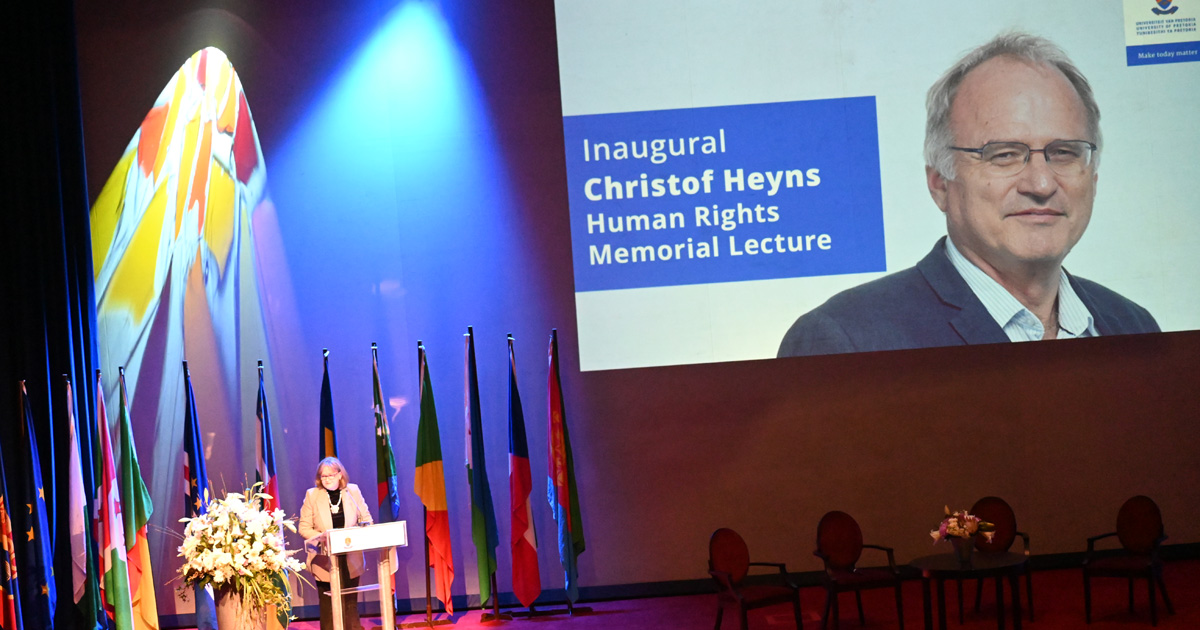
![In caption [Participants of the capacity building workshop on strategic litigation and advocacy for LGBTIQ+ activists in Africa]](/images/researchunits/sogie/news/images/lgbtq-capacity-building.jpg)
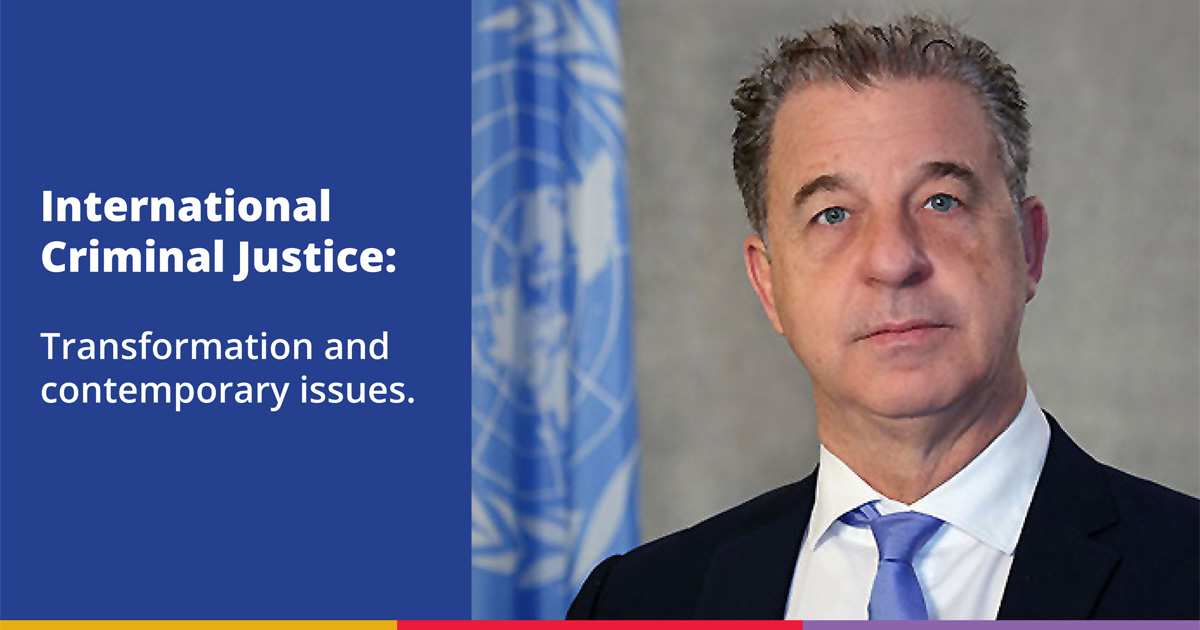
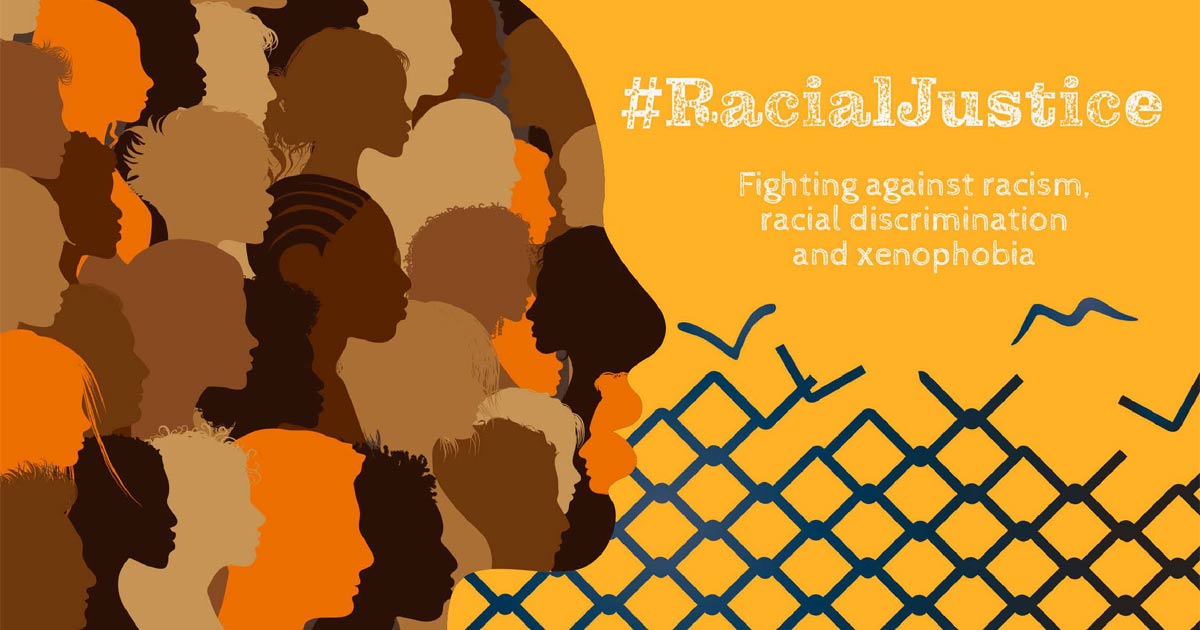
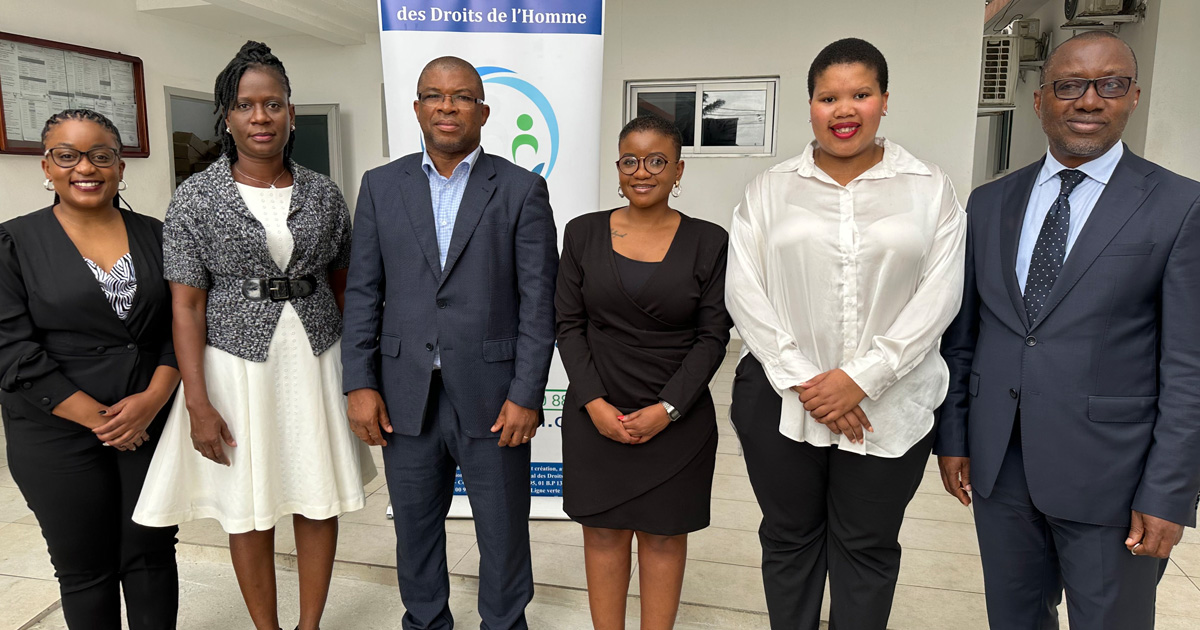
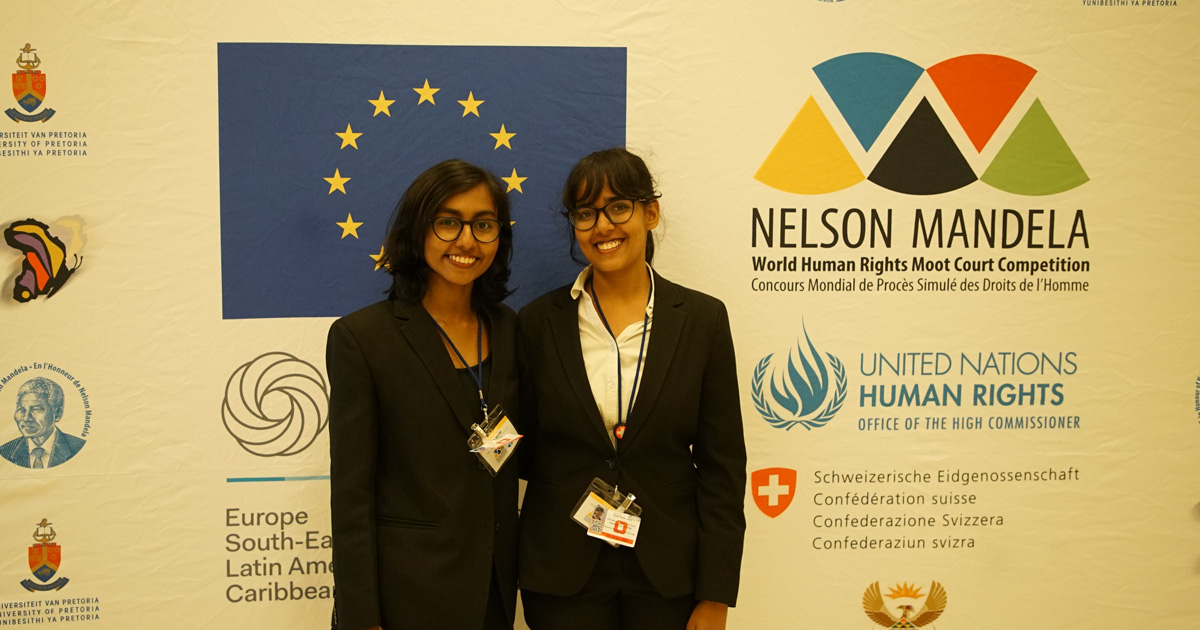
![[in picture: Participants of the Multi-stakeholder engagement]](/images/centrenews/2023/healthy-information-landscape.jpg)
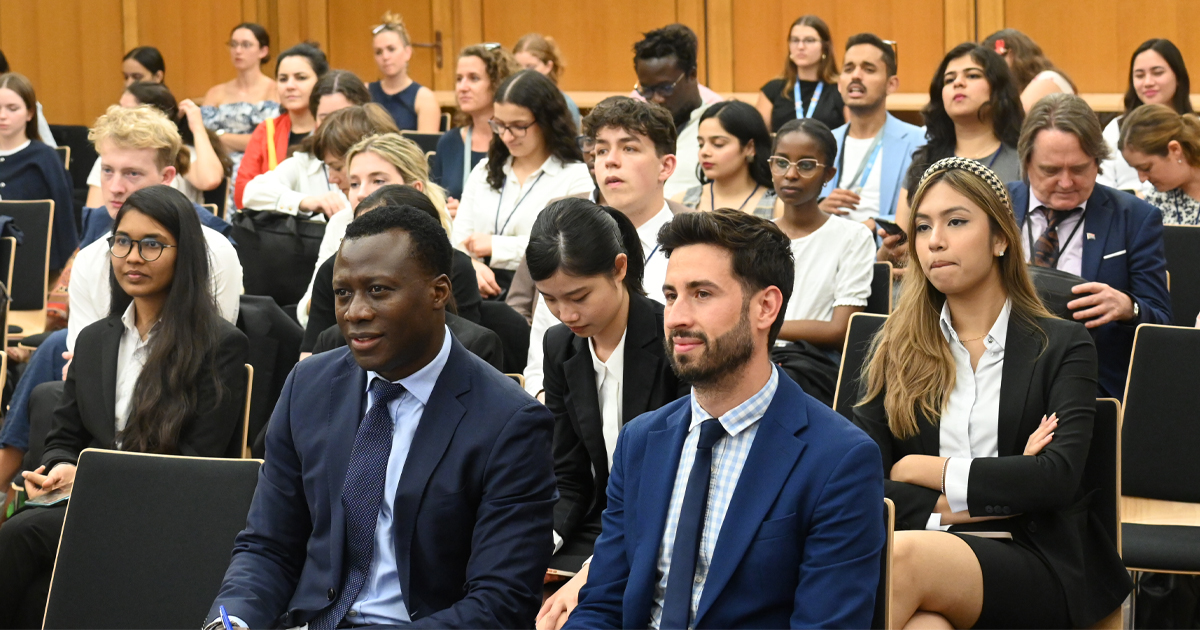
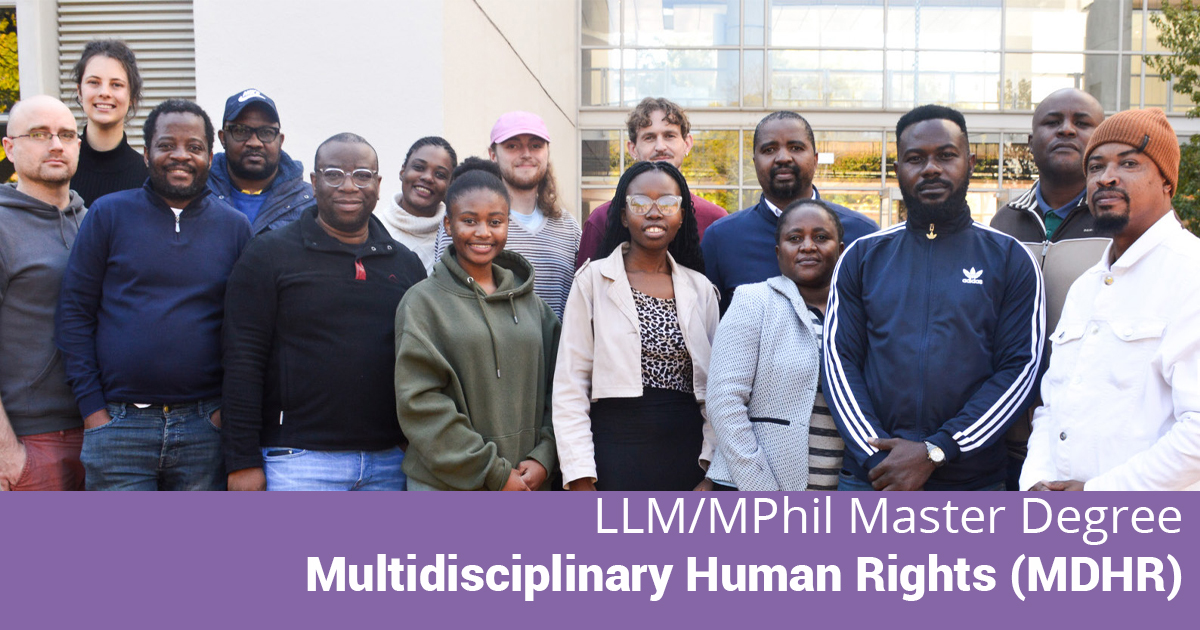
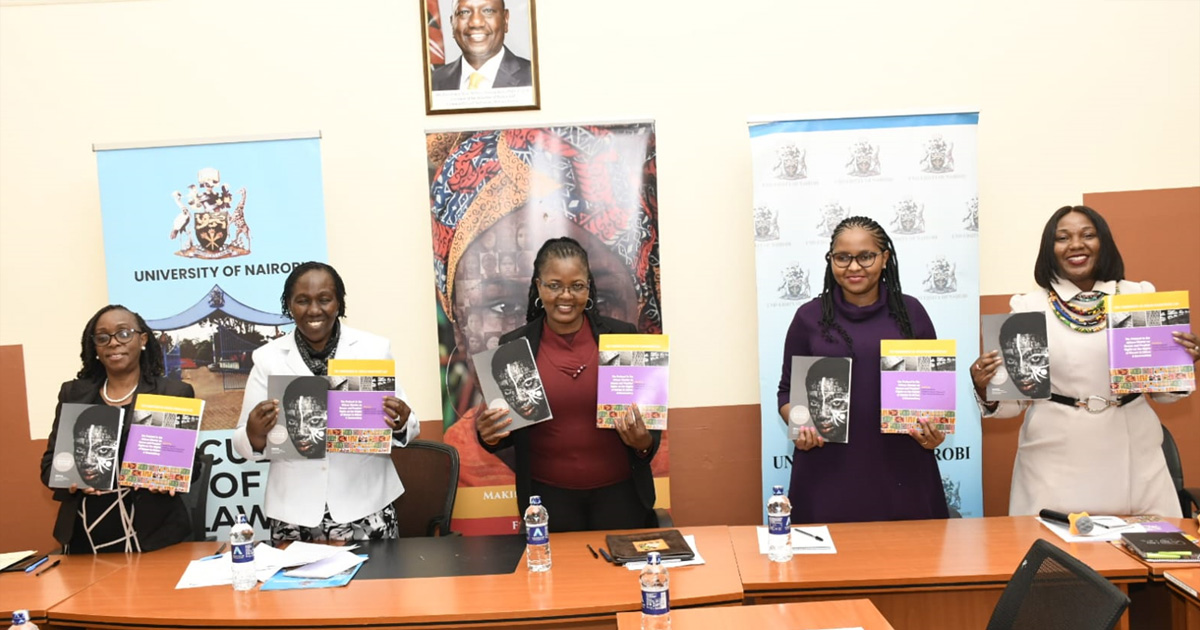
![[In picture:Participants of the Democracy Capacity Building Workshop ]](/images/researchunits/dce/news/images/democracy-capacity-18-july.jpg)
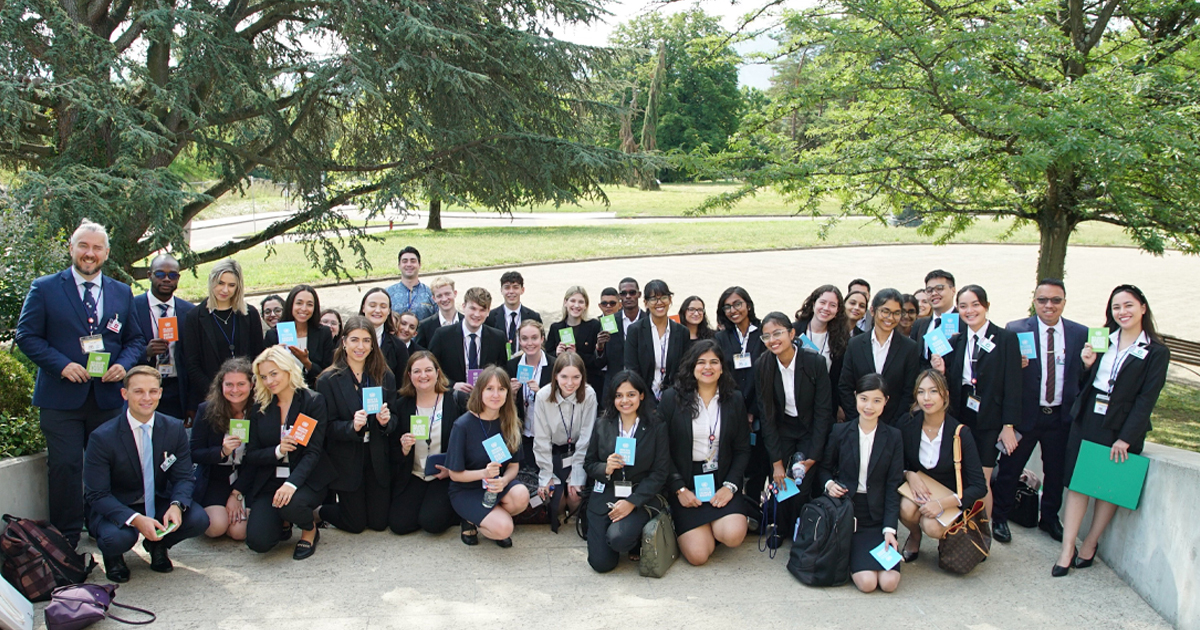
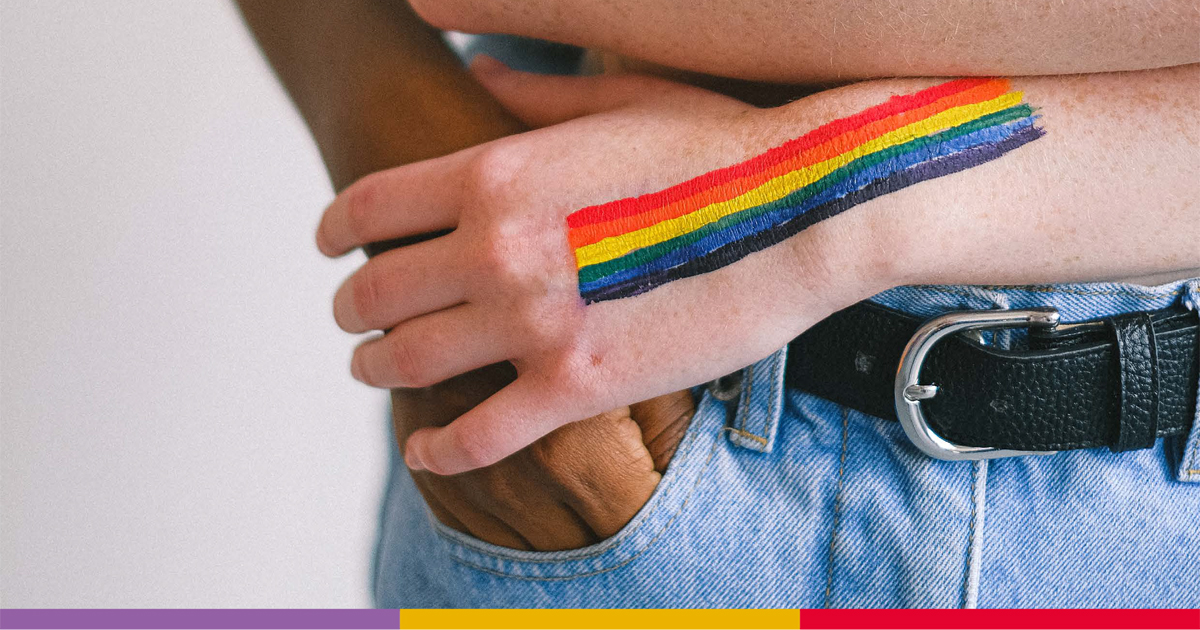
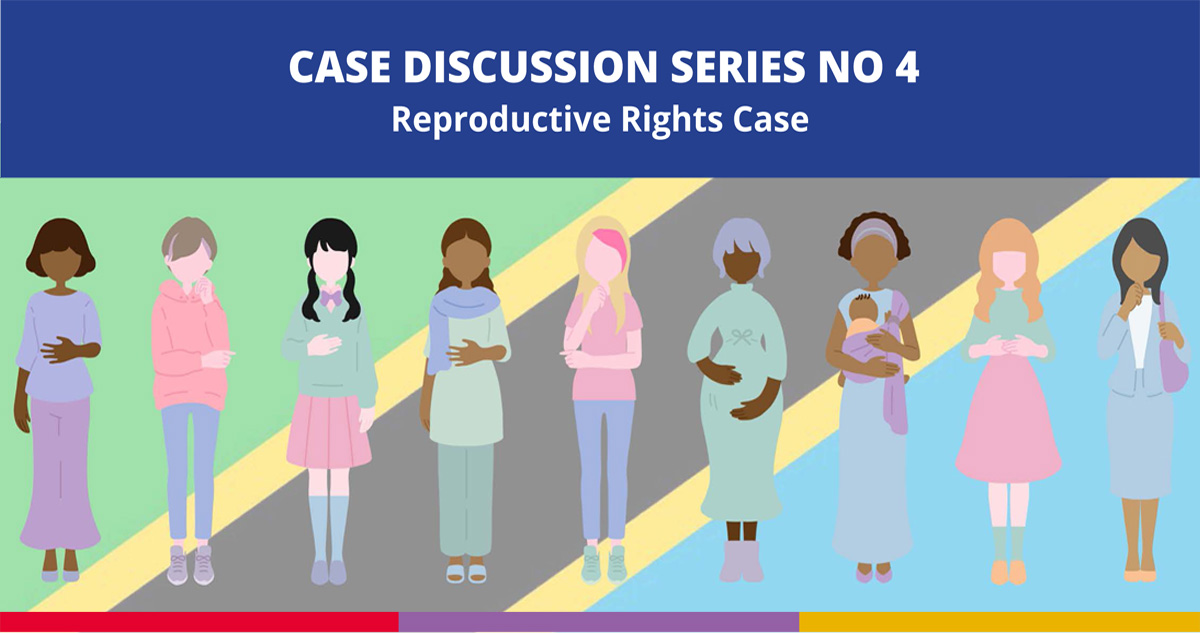
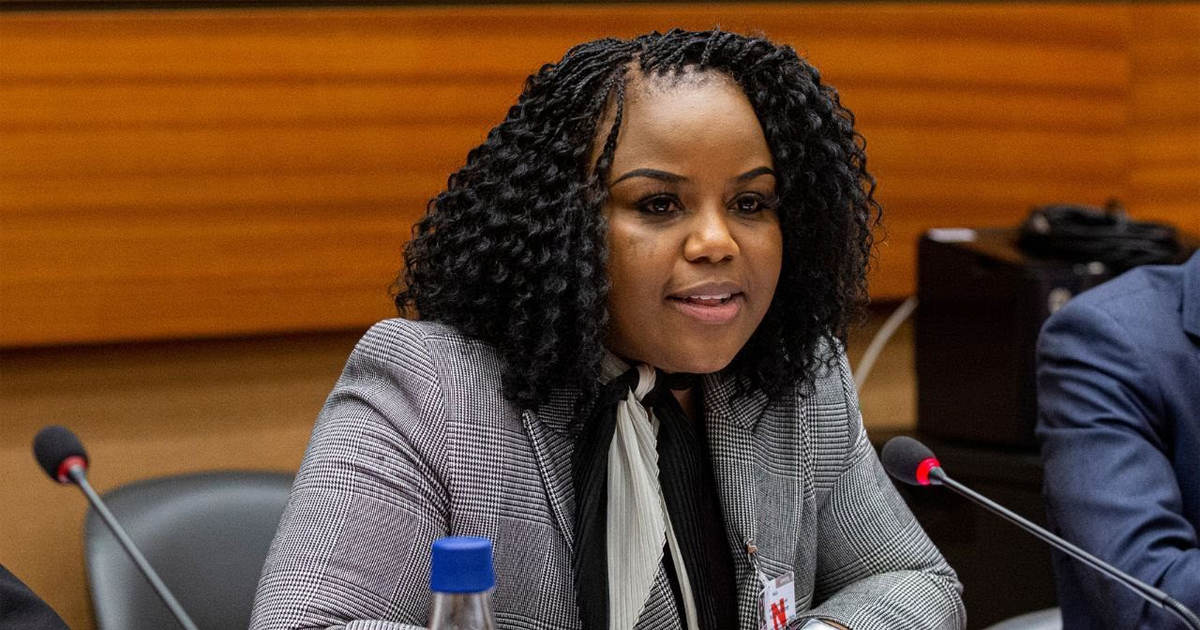
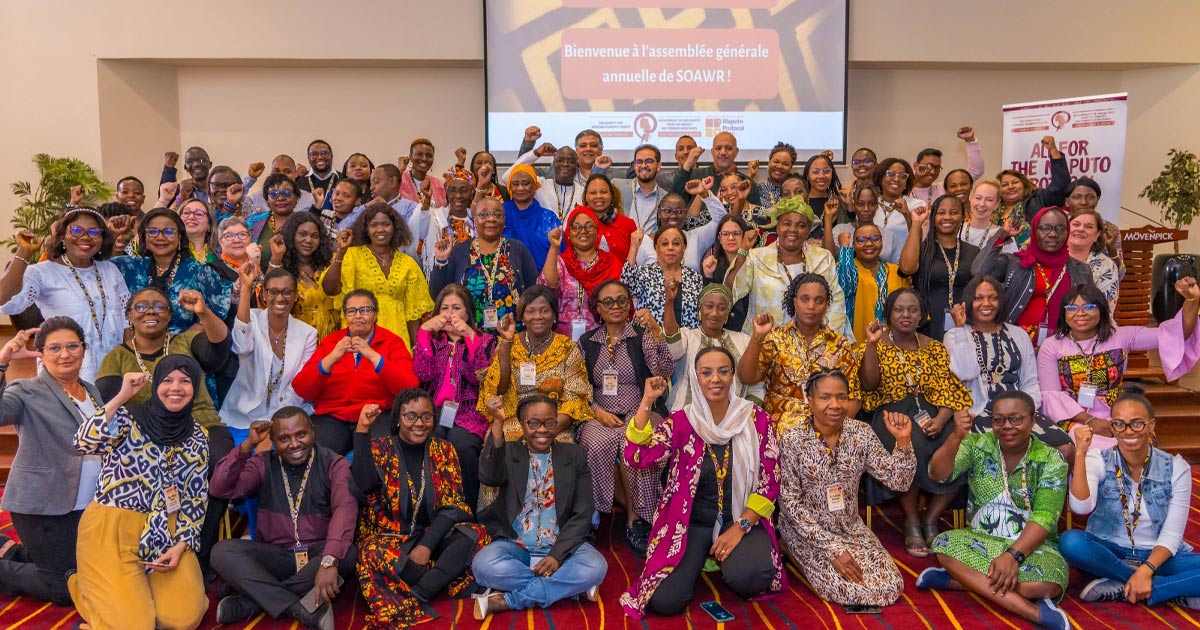
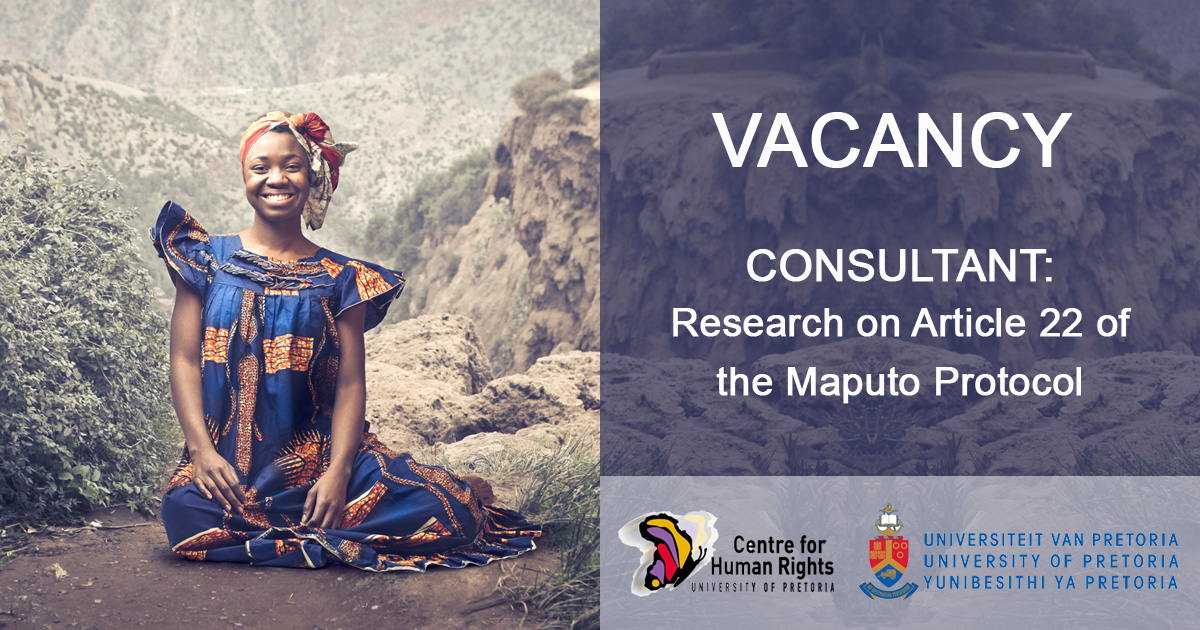
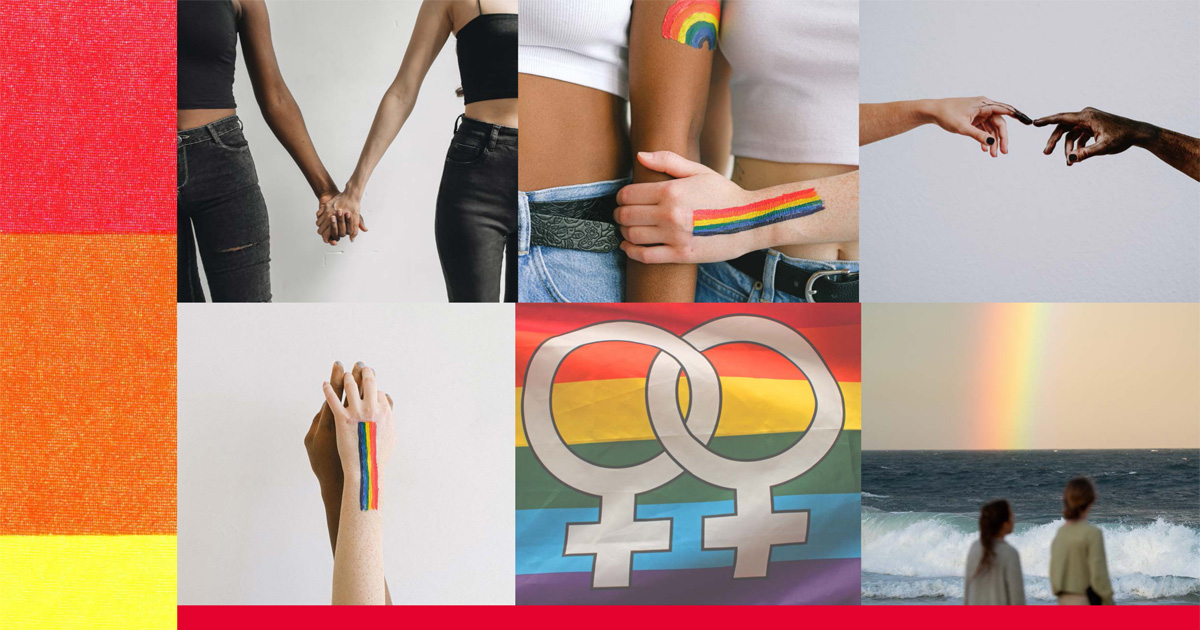
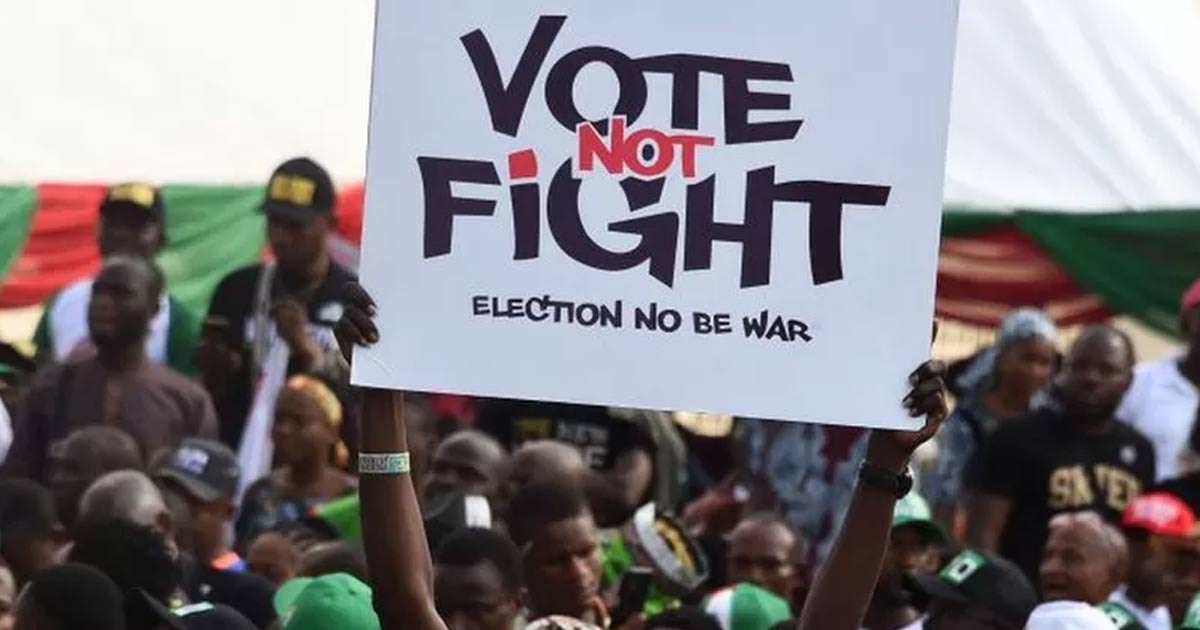
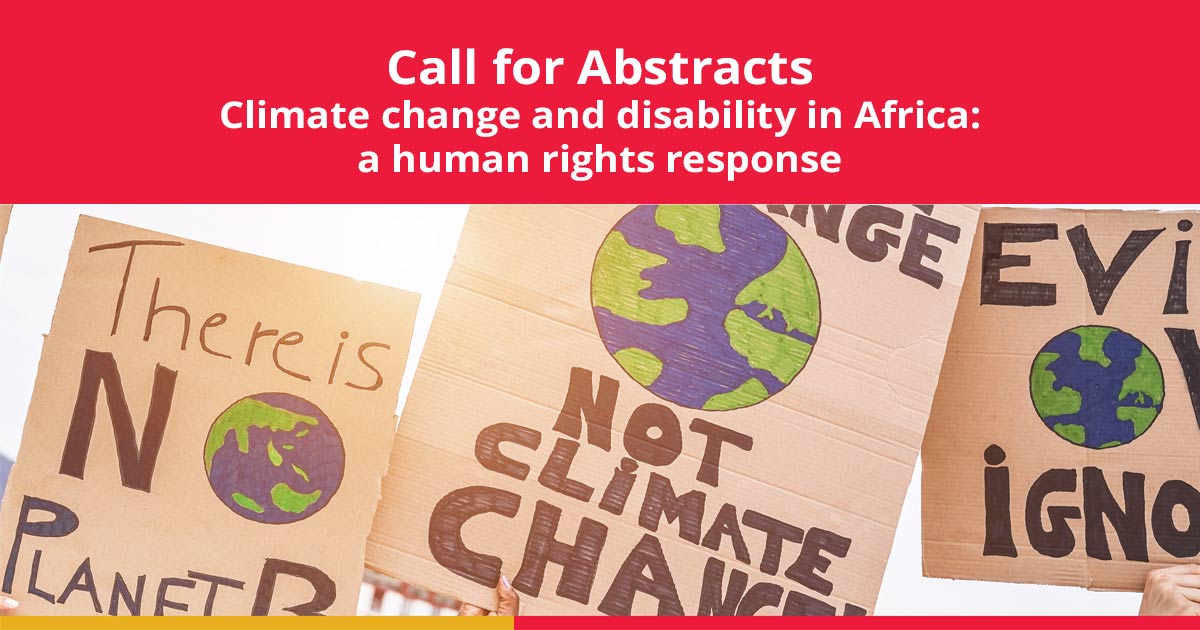
![[In picture, the manager of the Expression Information and Digital Rights Unit of the Centre for Human Rights, Hlengiwe Dube, the Executive Director of the Transformation Resource Centre, Tsikoane Peshoane, and several legislative committee representatives from Lesotho, attending the digital rights capacity building workshop]](/images/centrenews/2023/Training-for-Parliamentarians.jpg)
